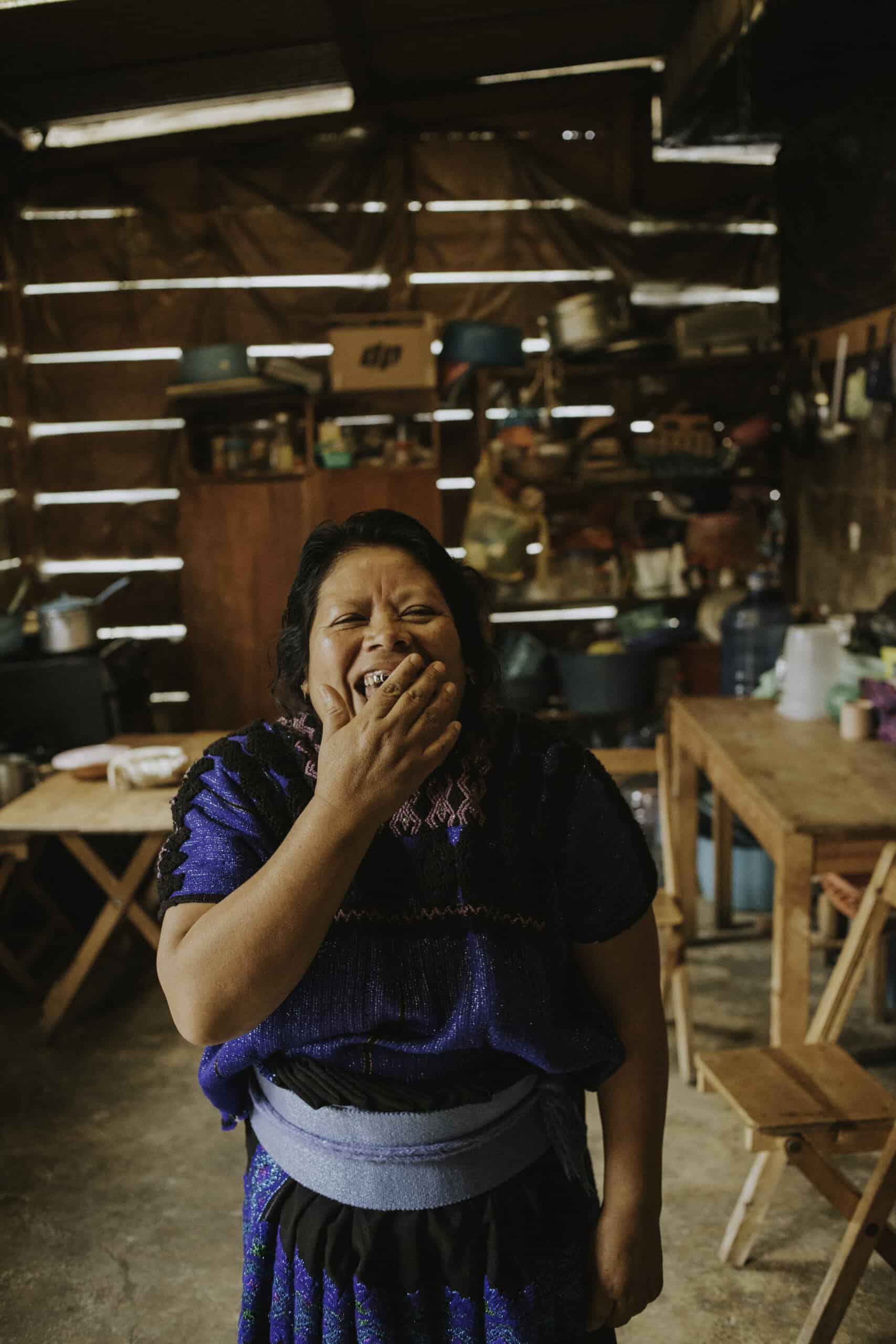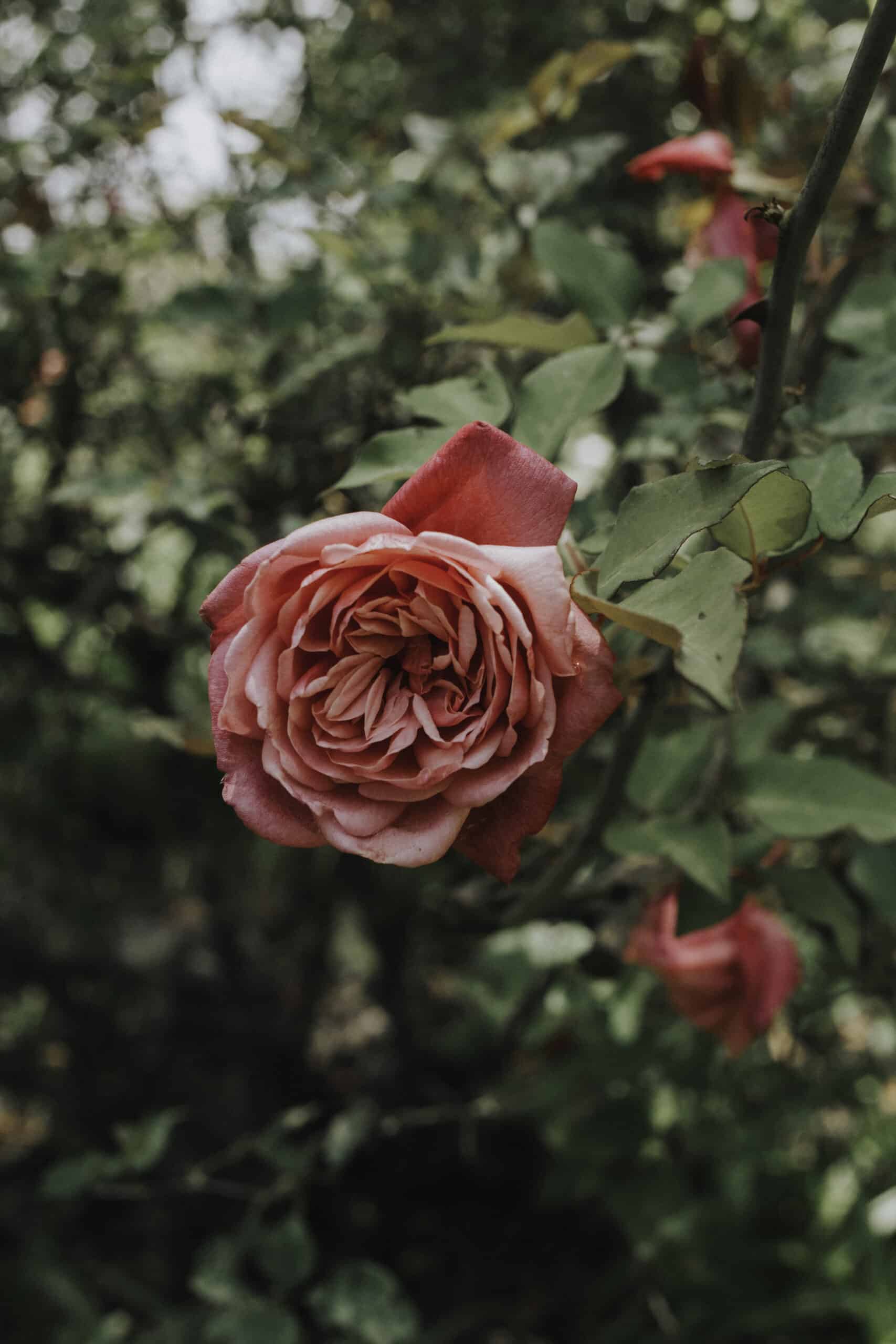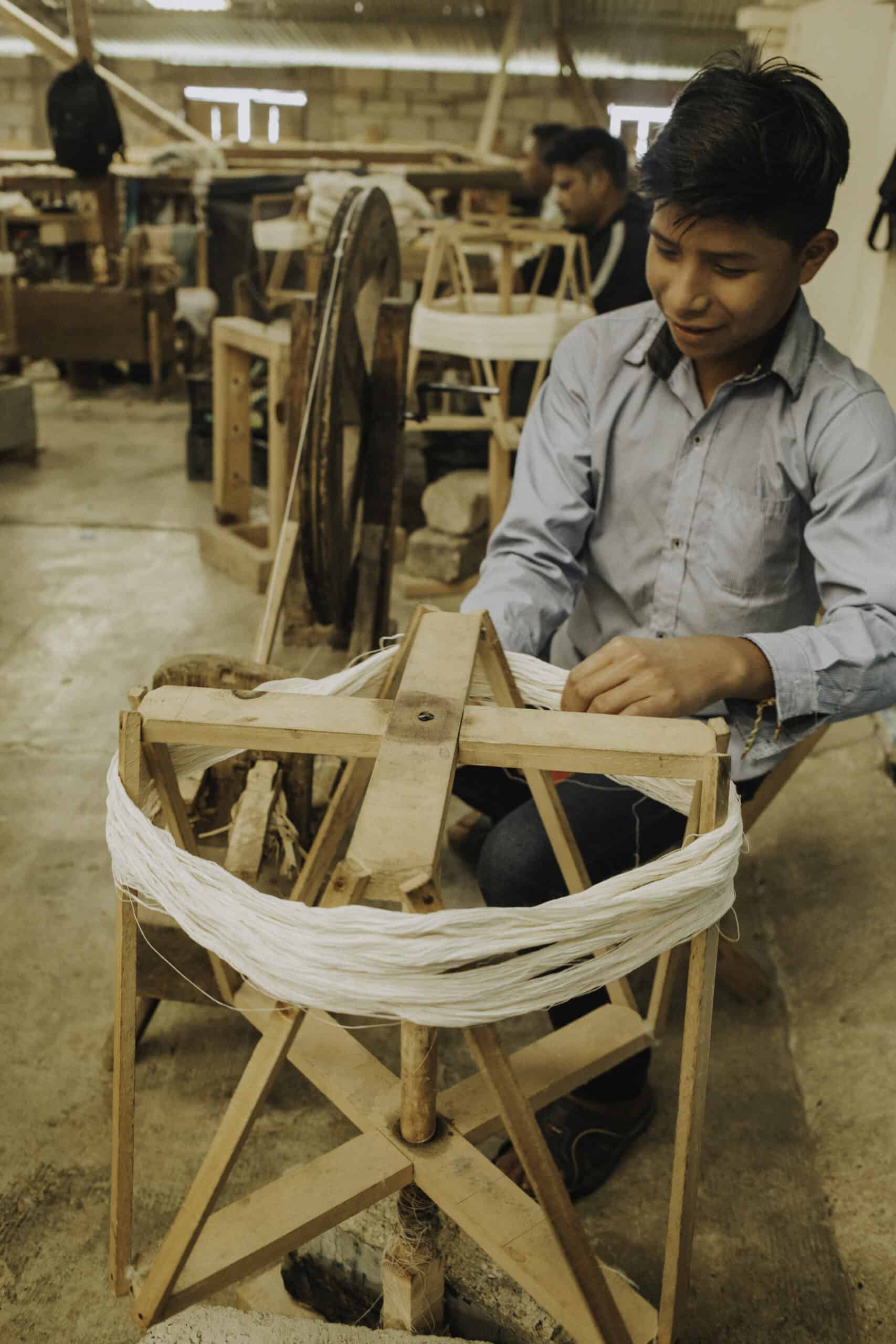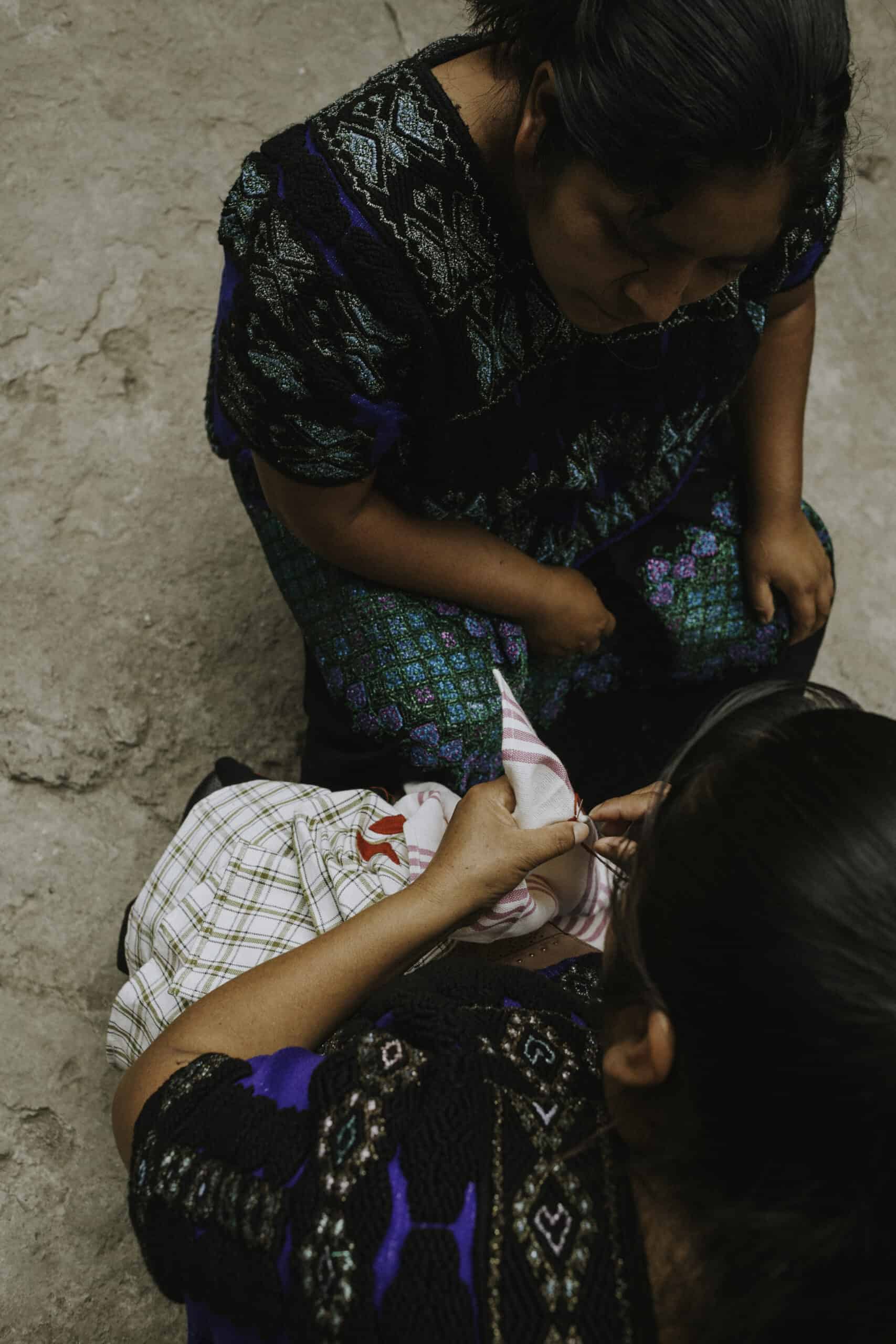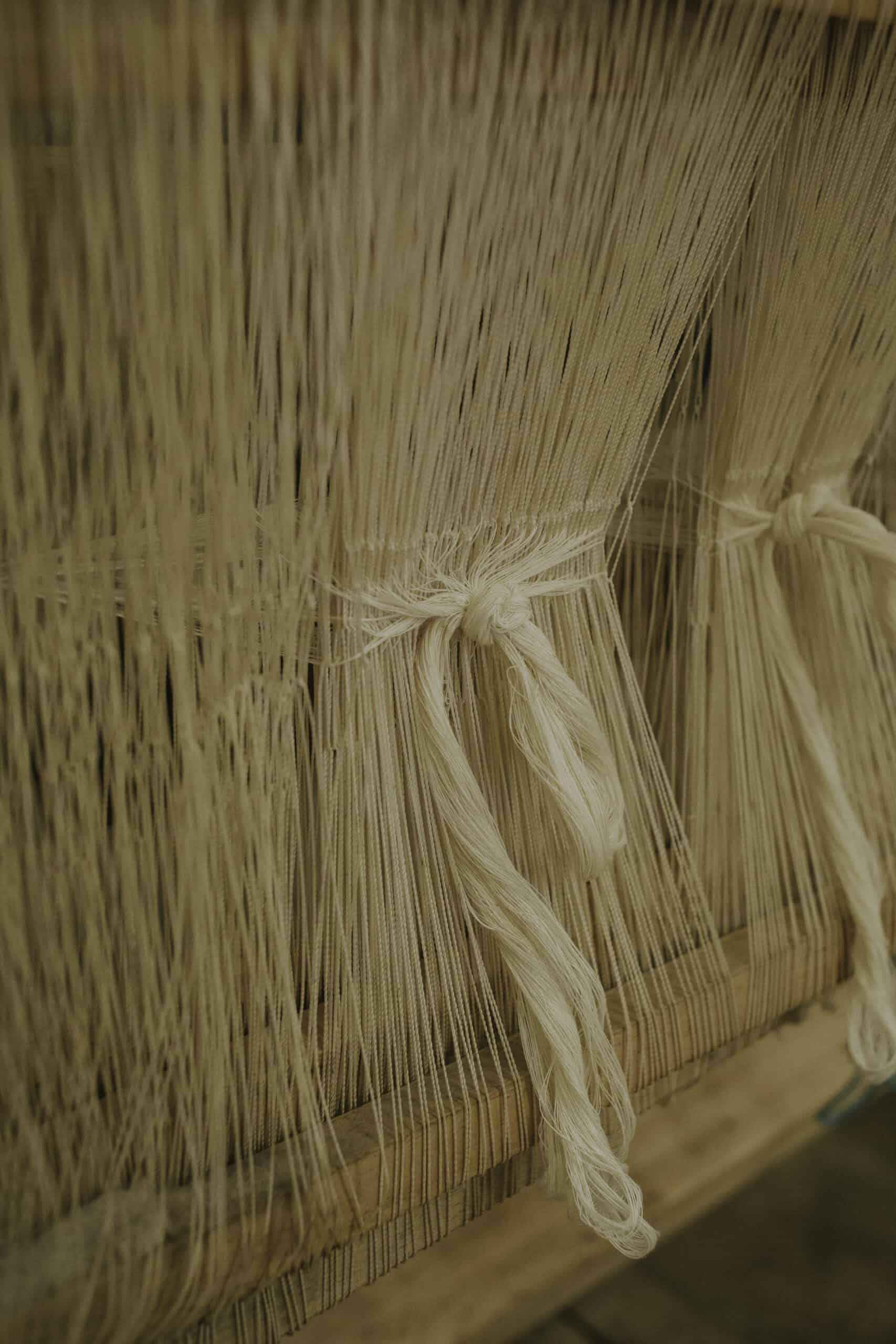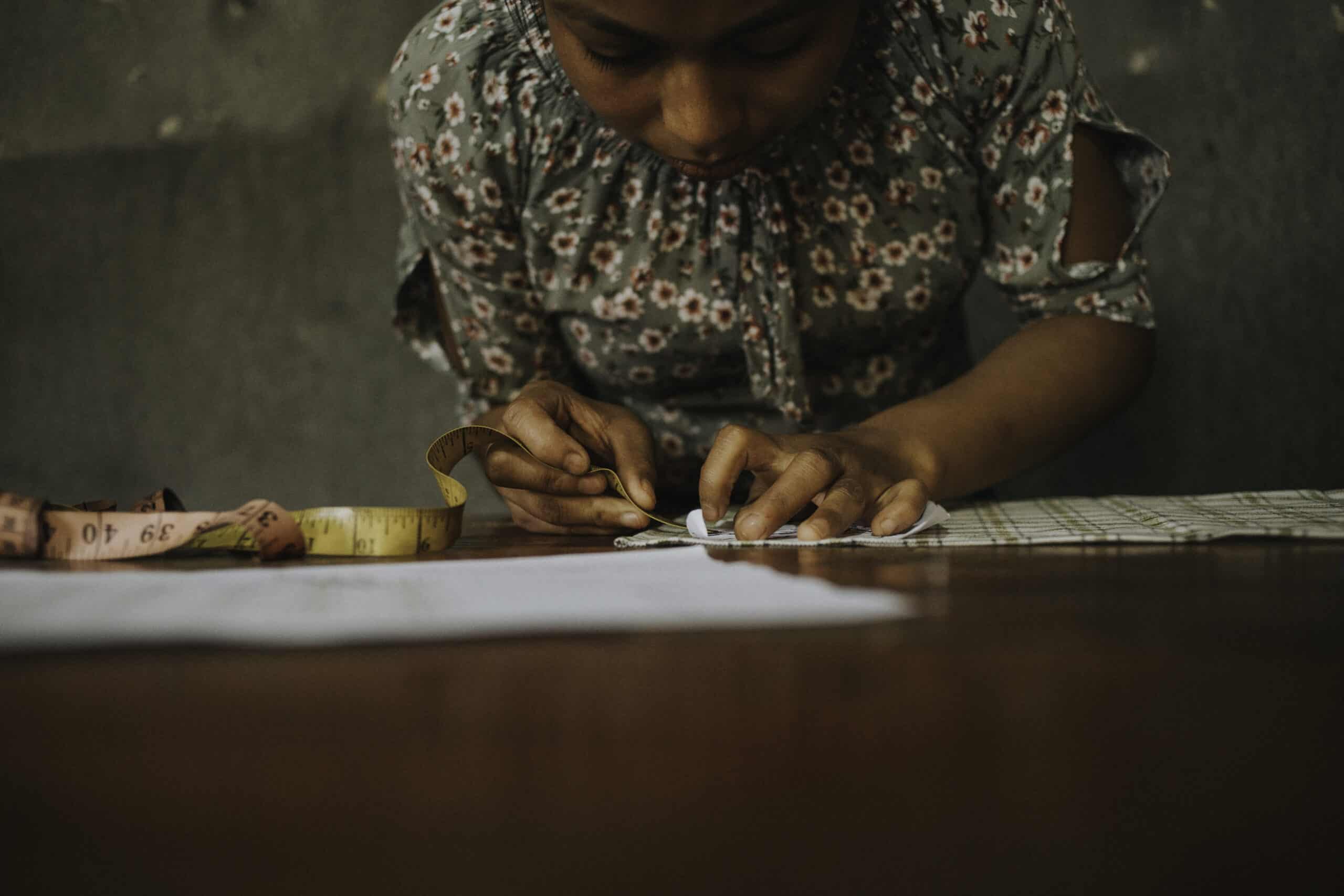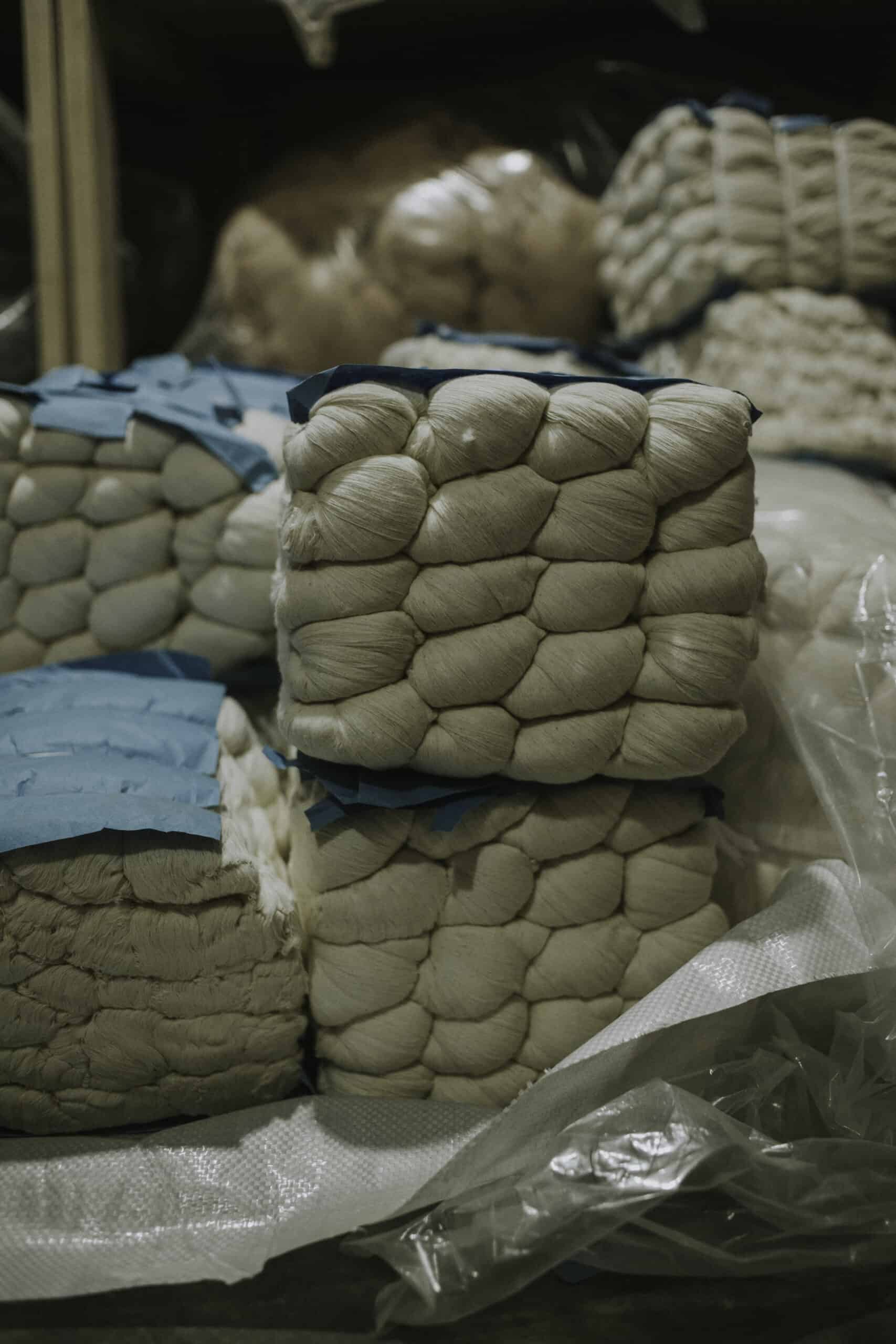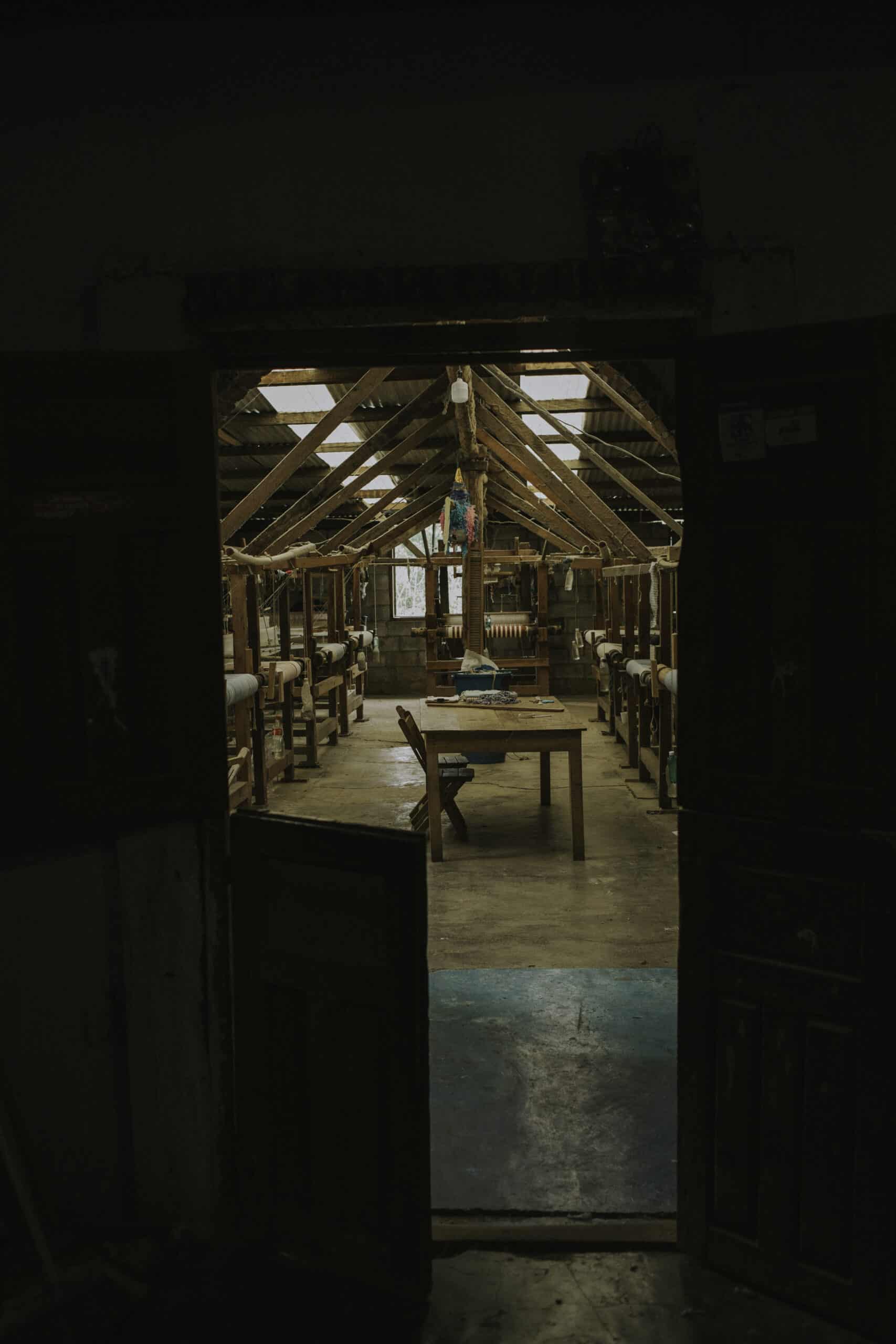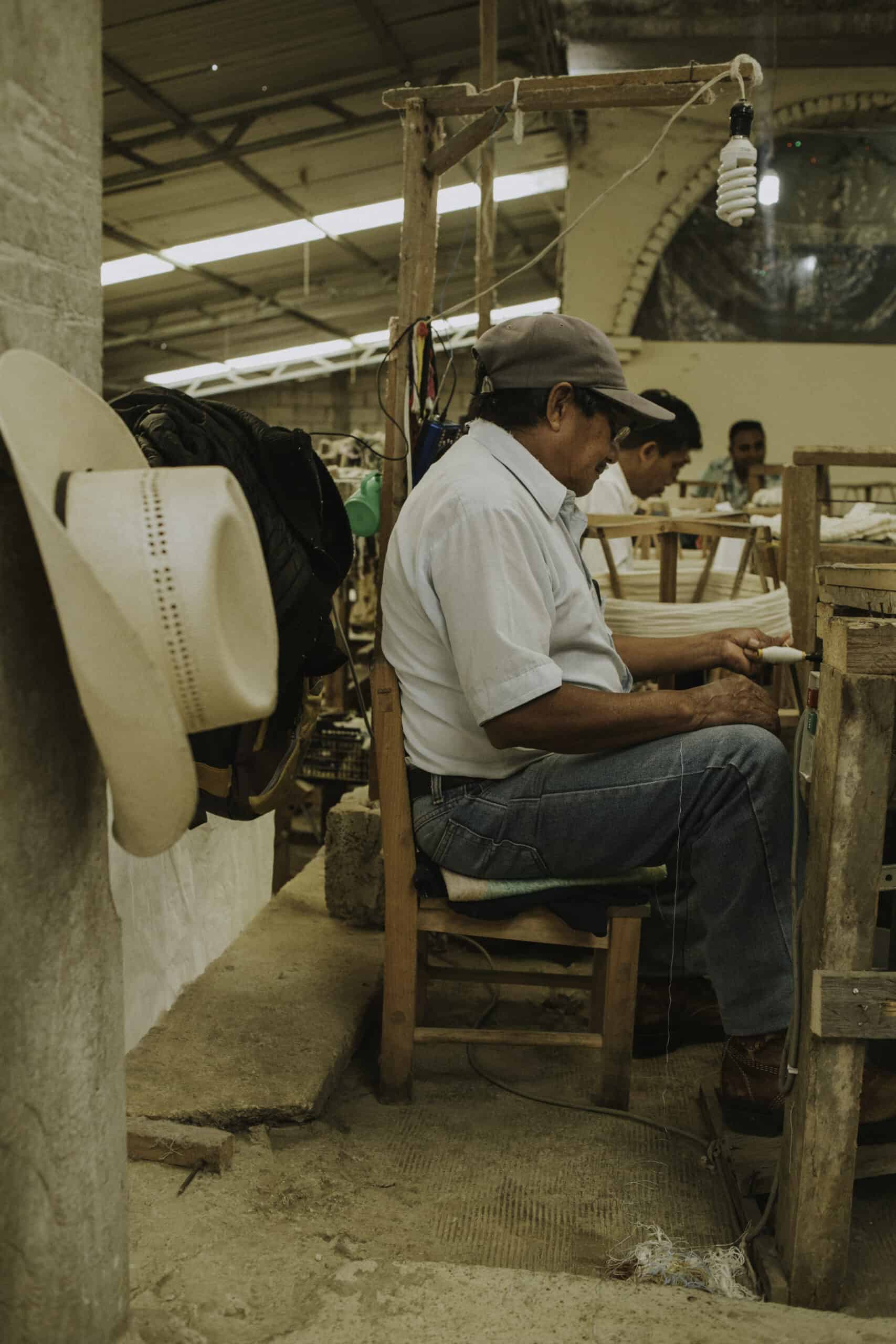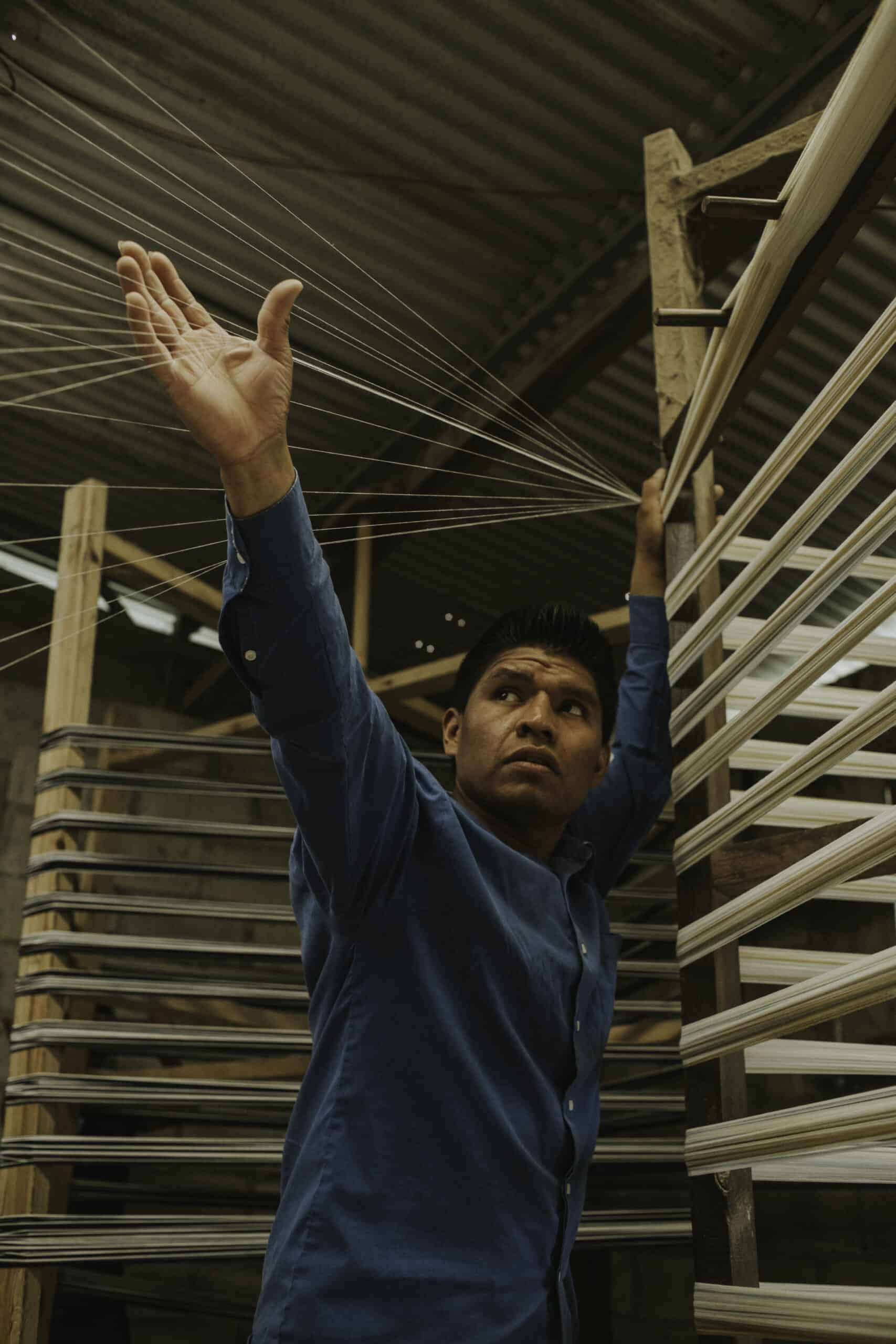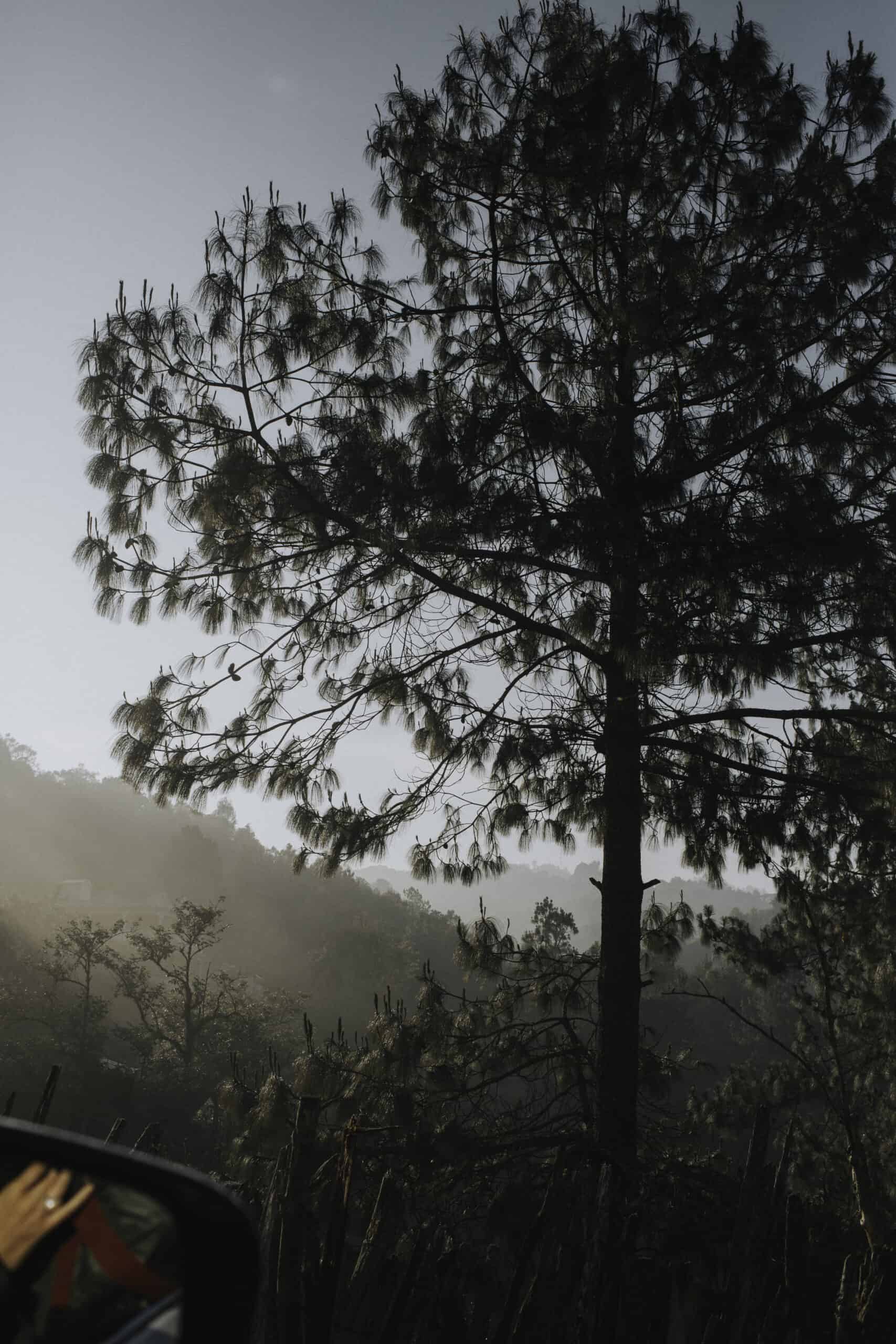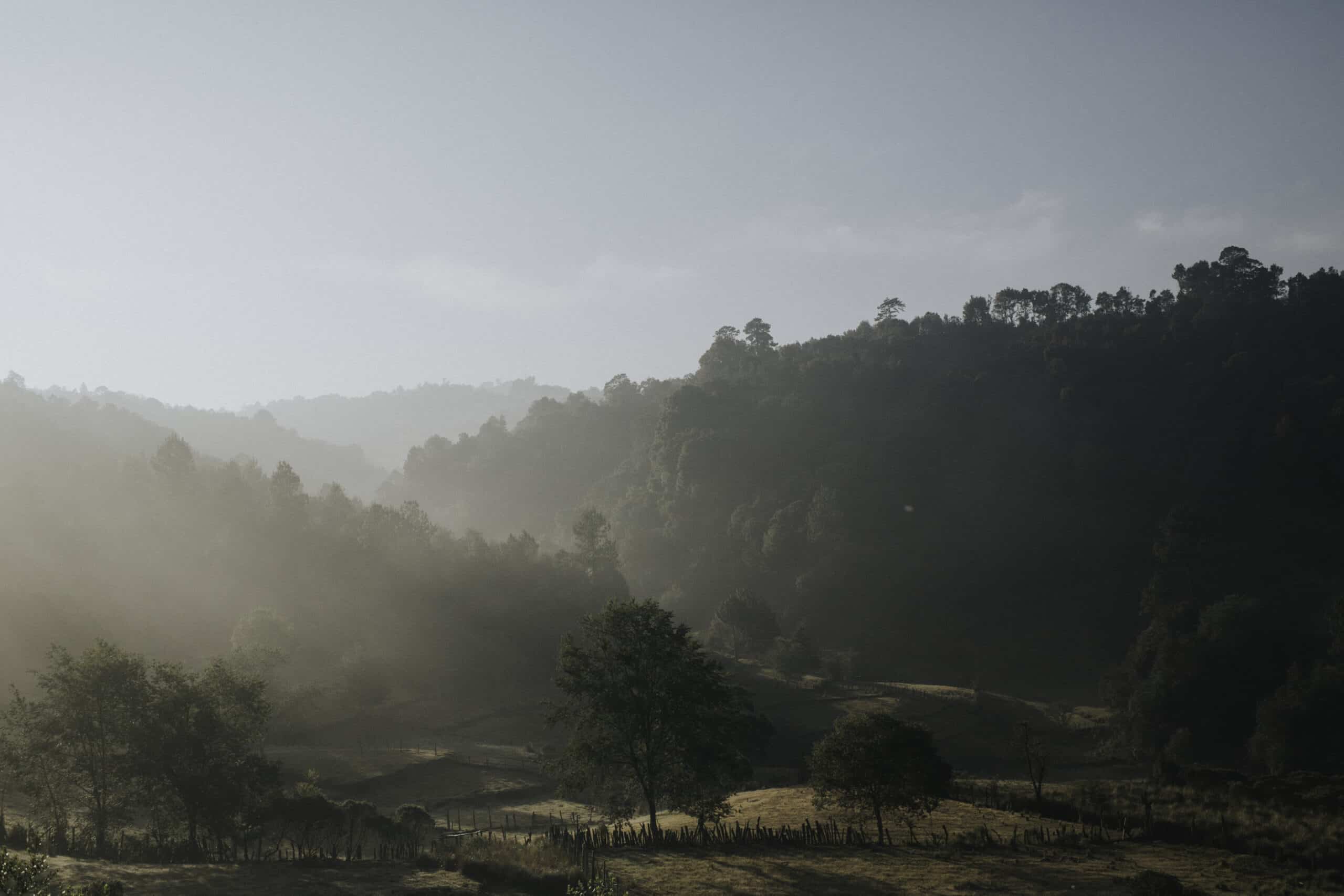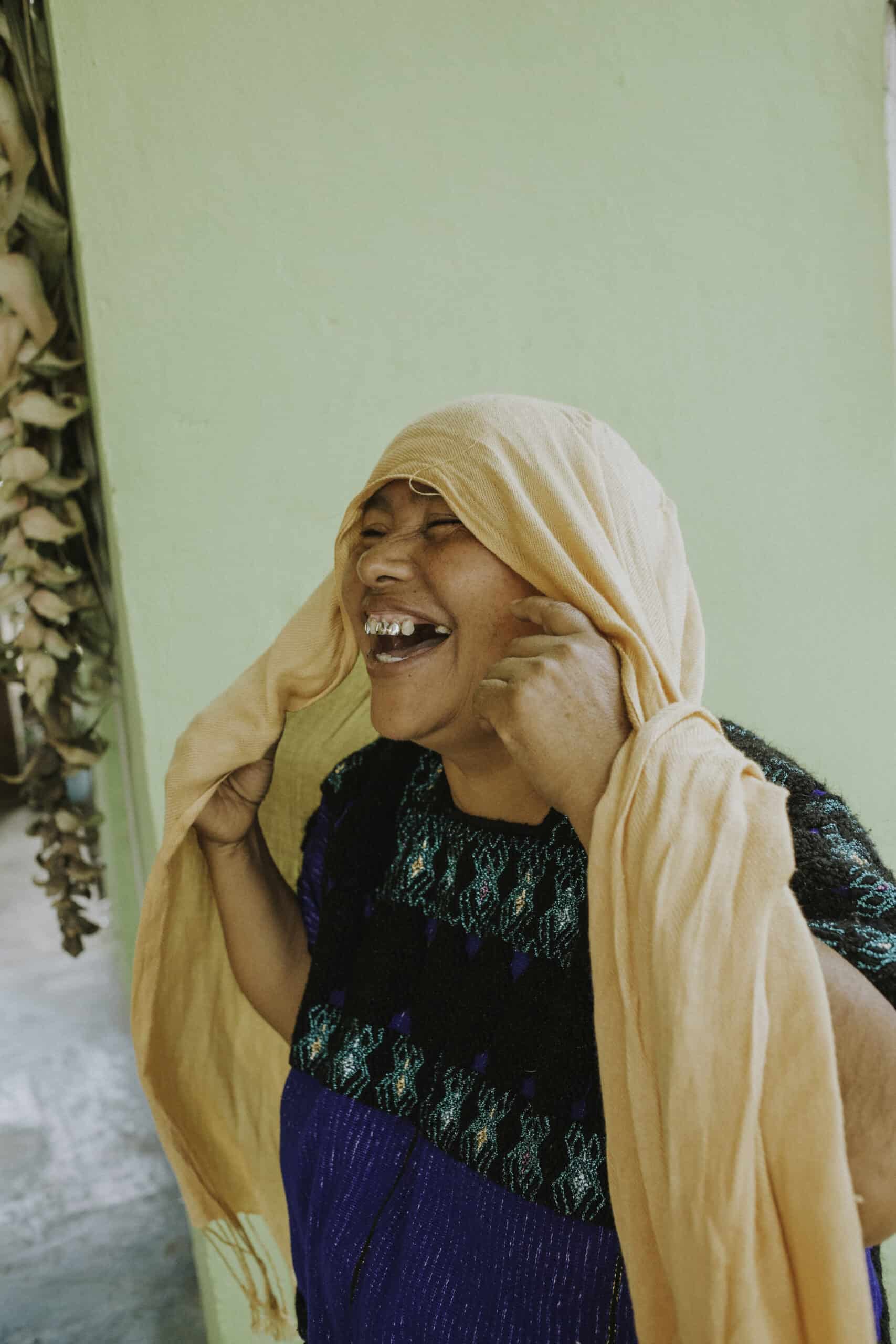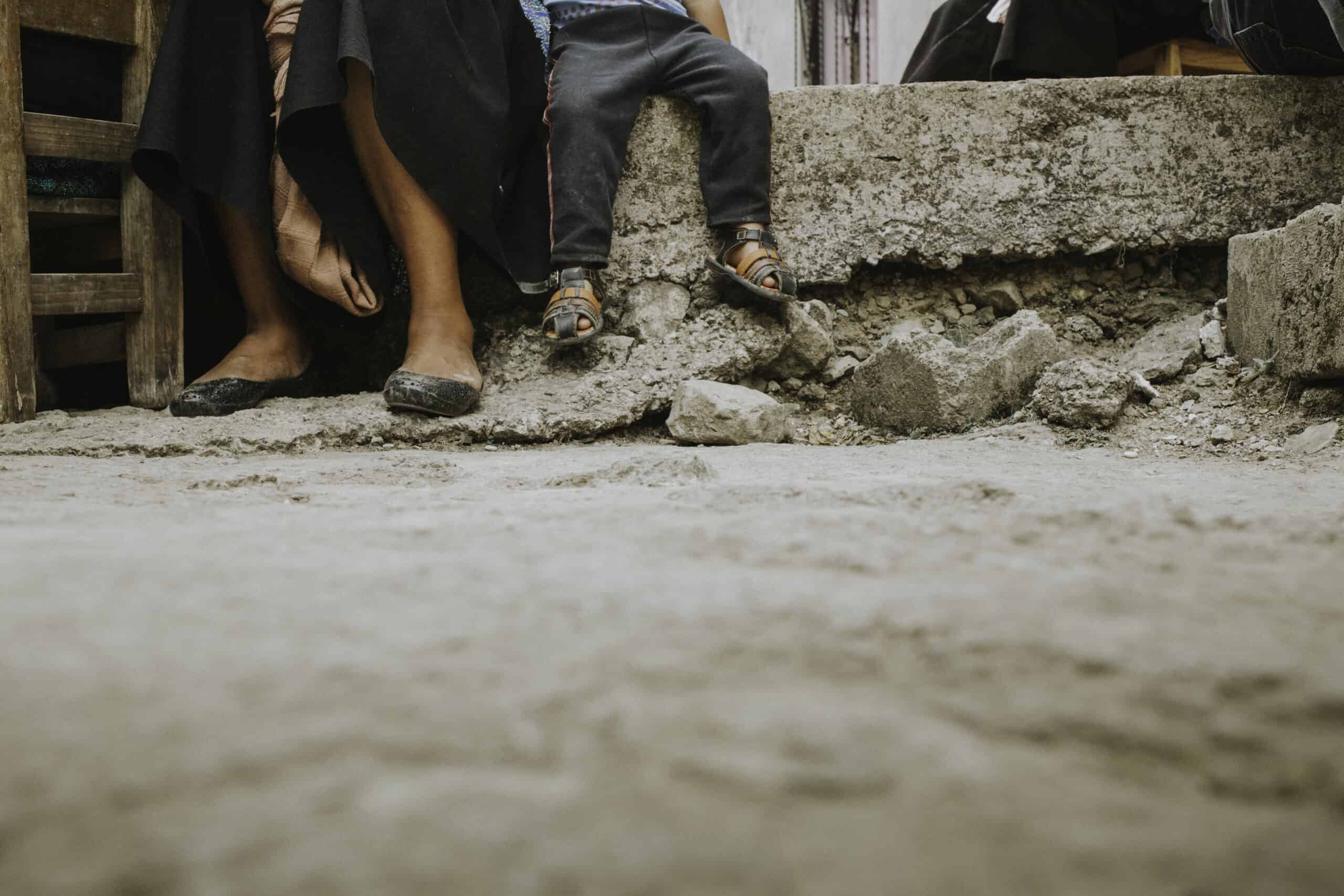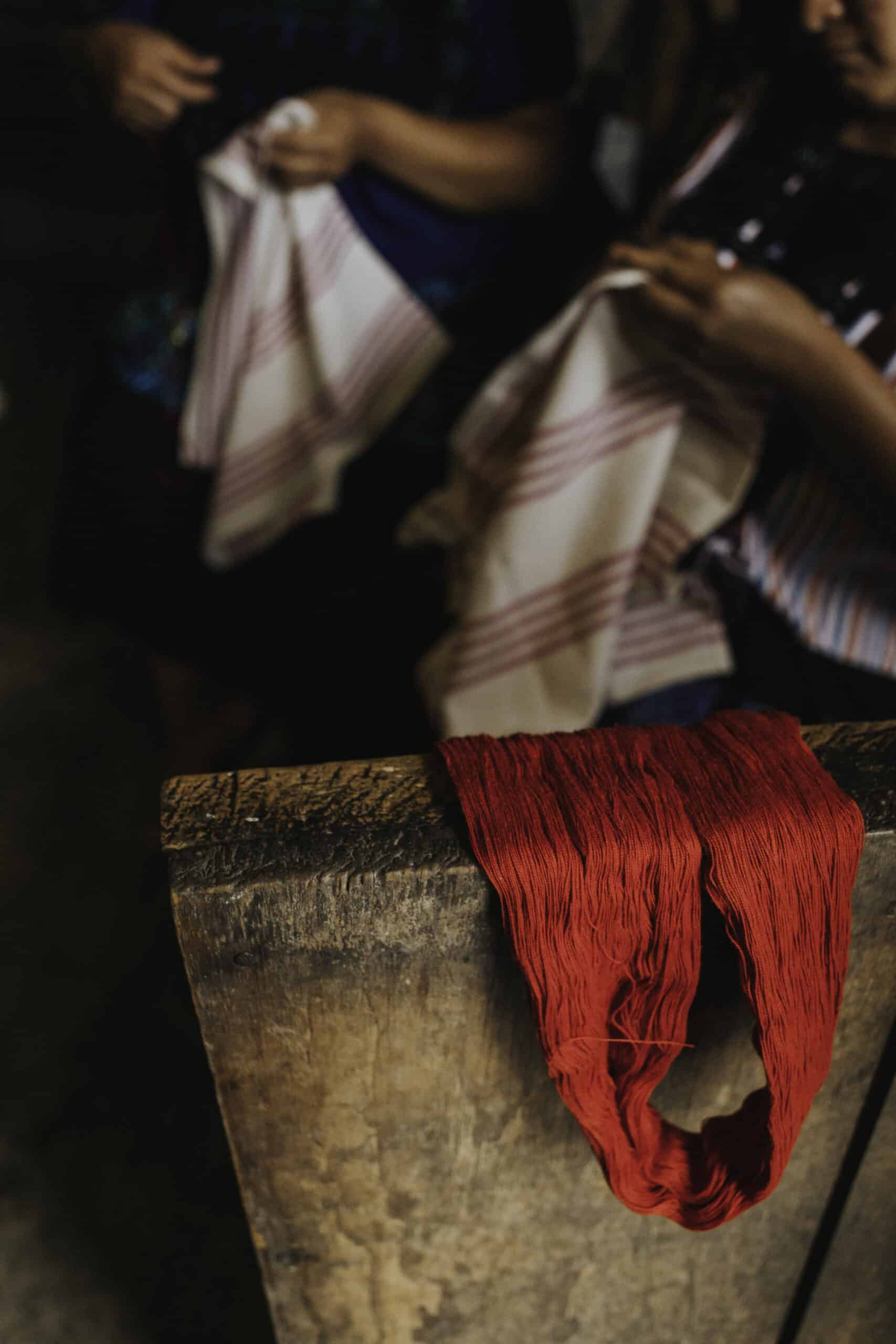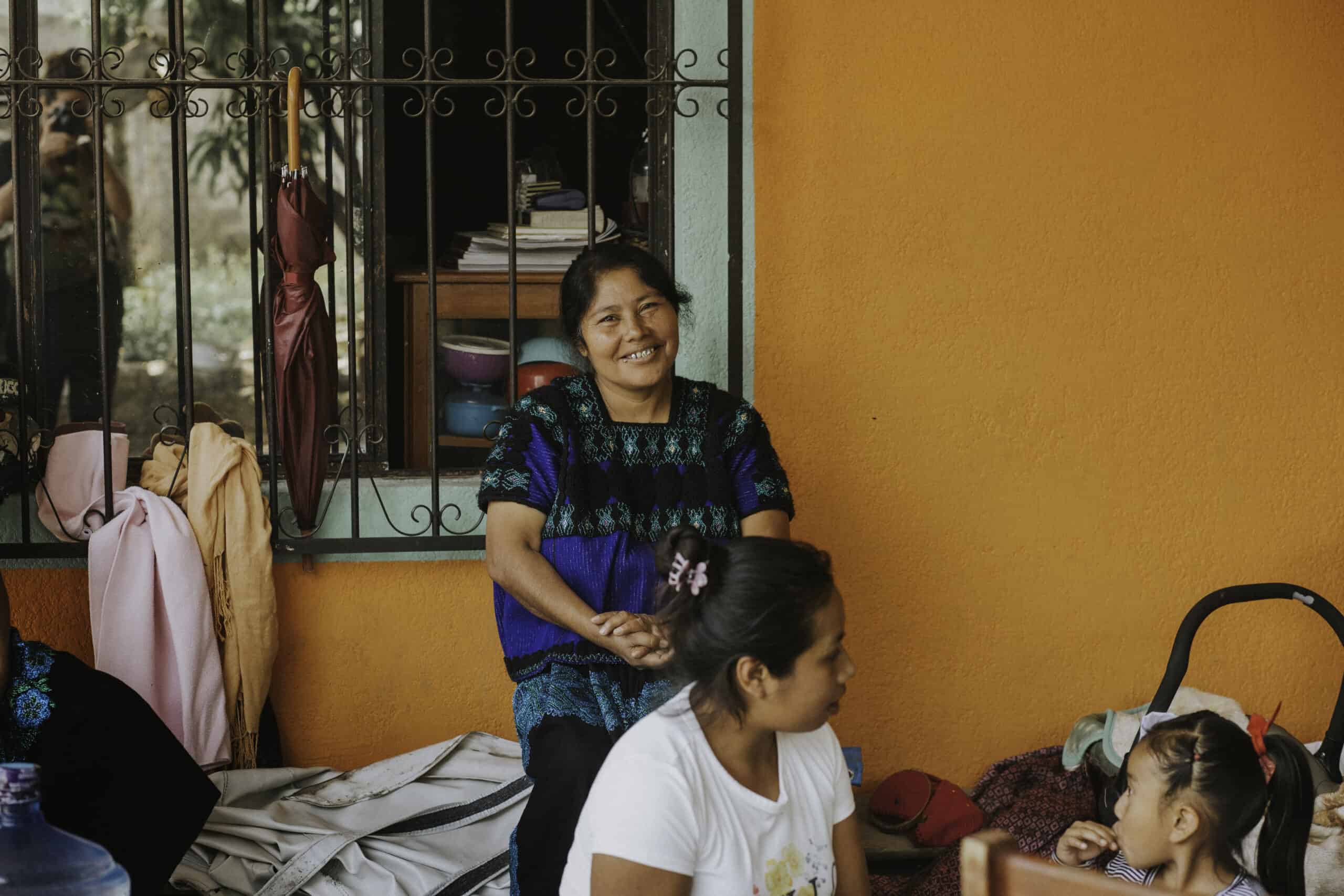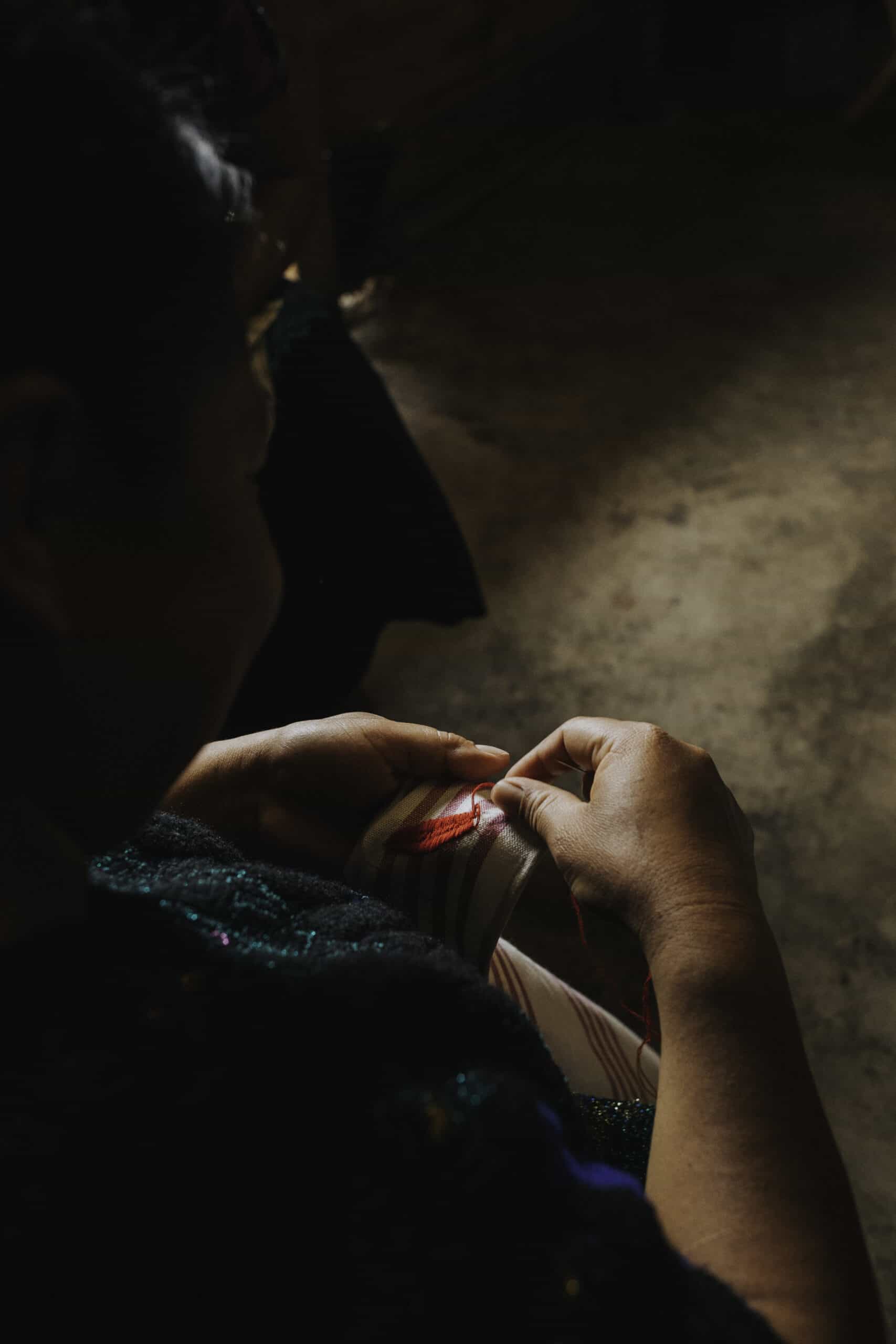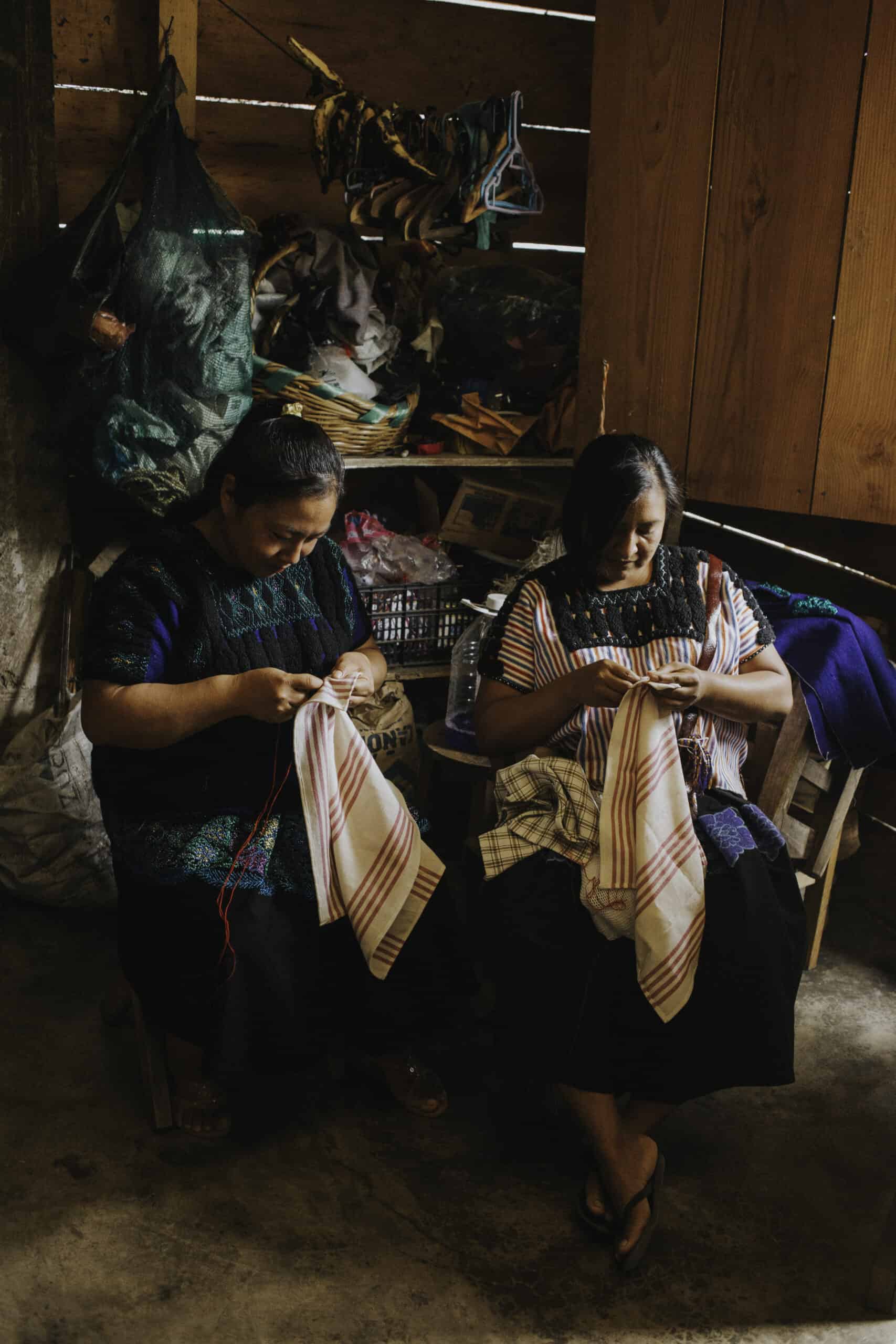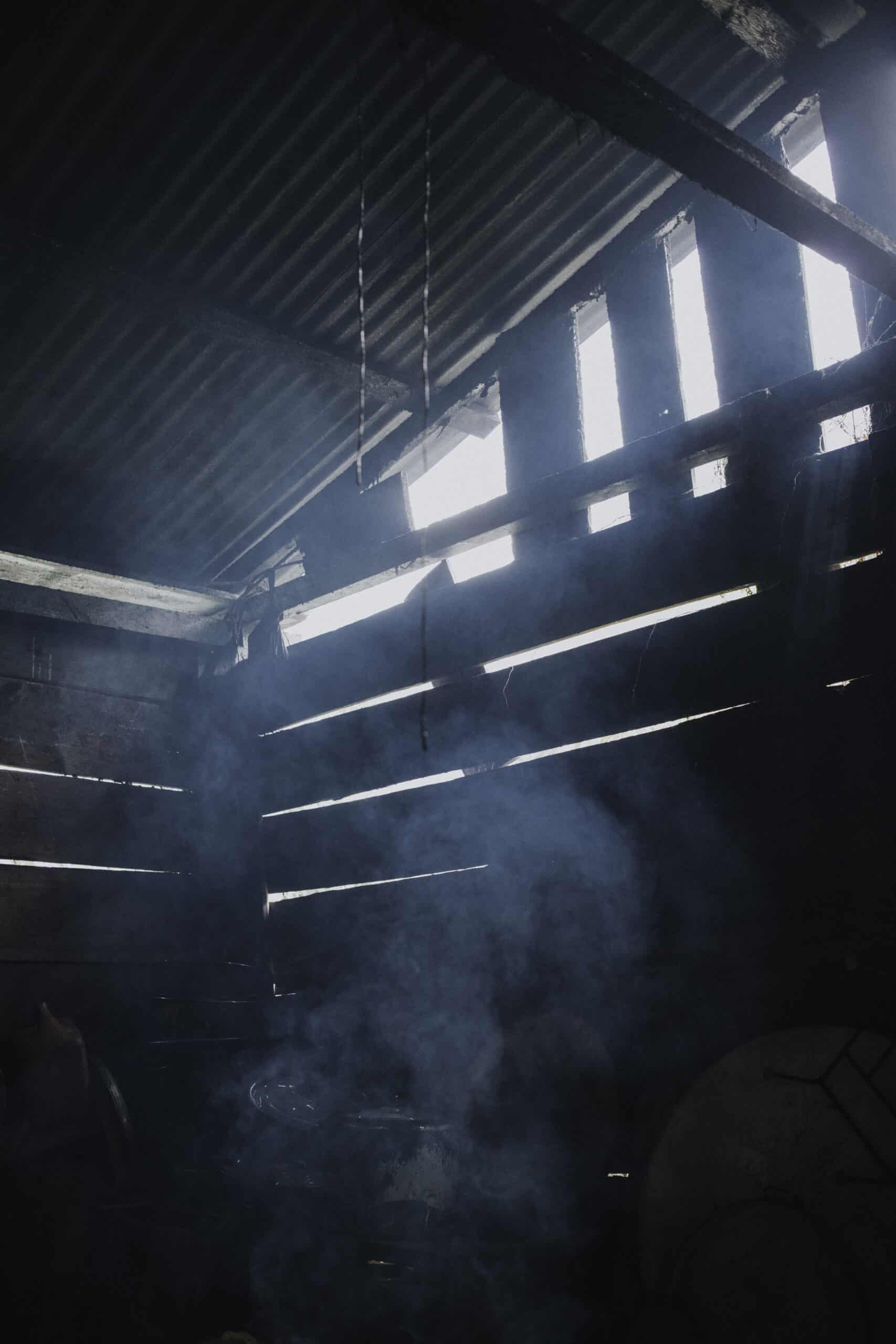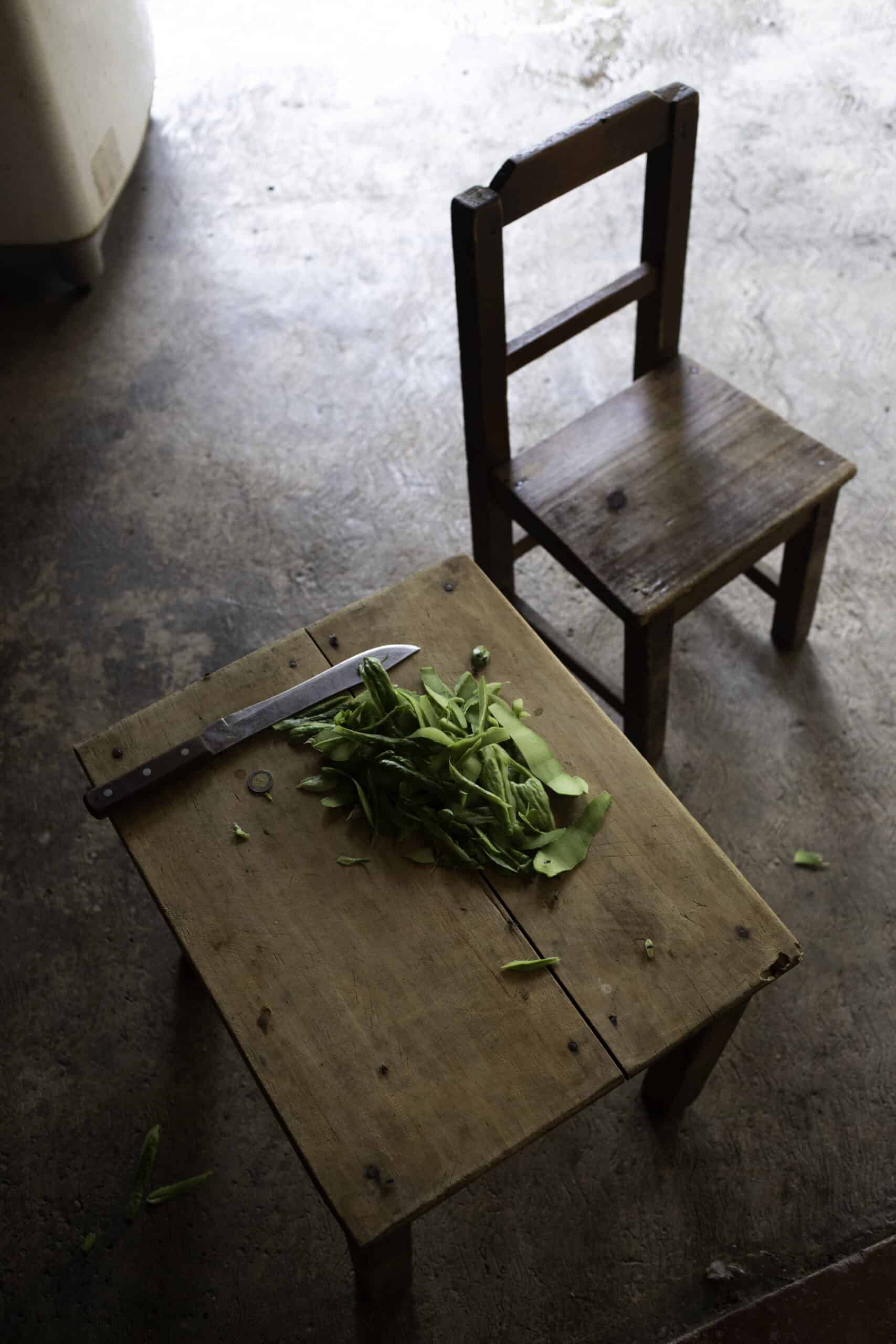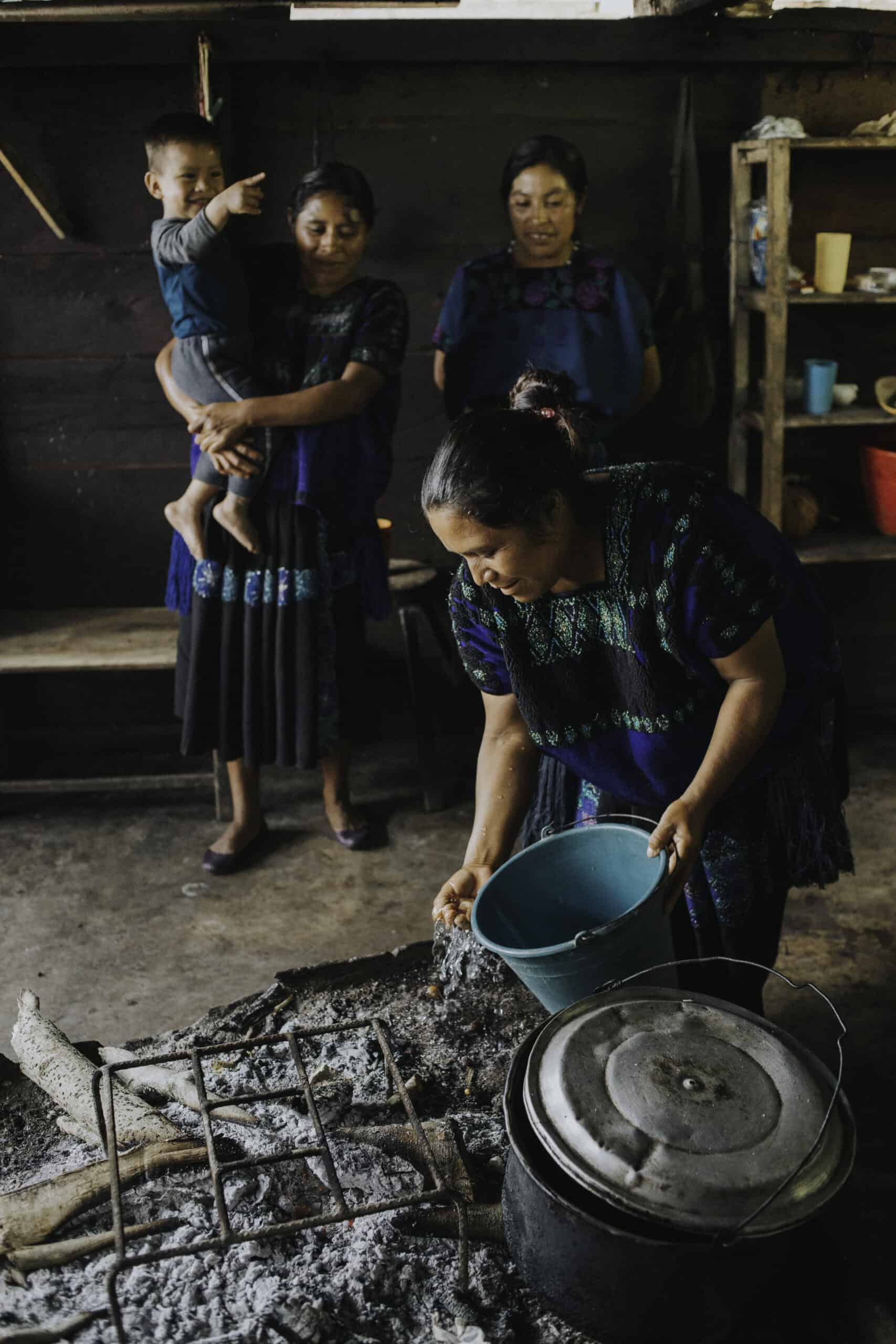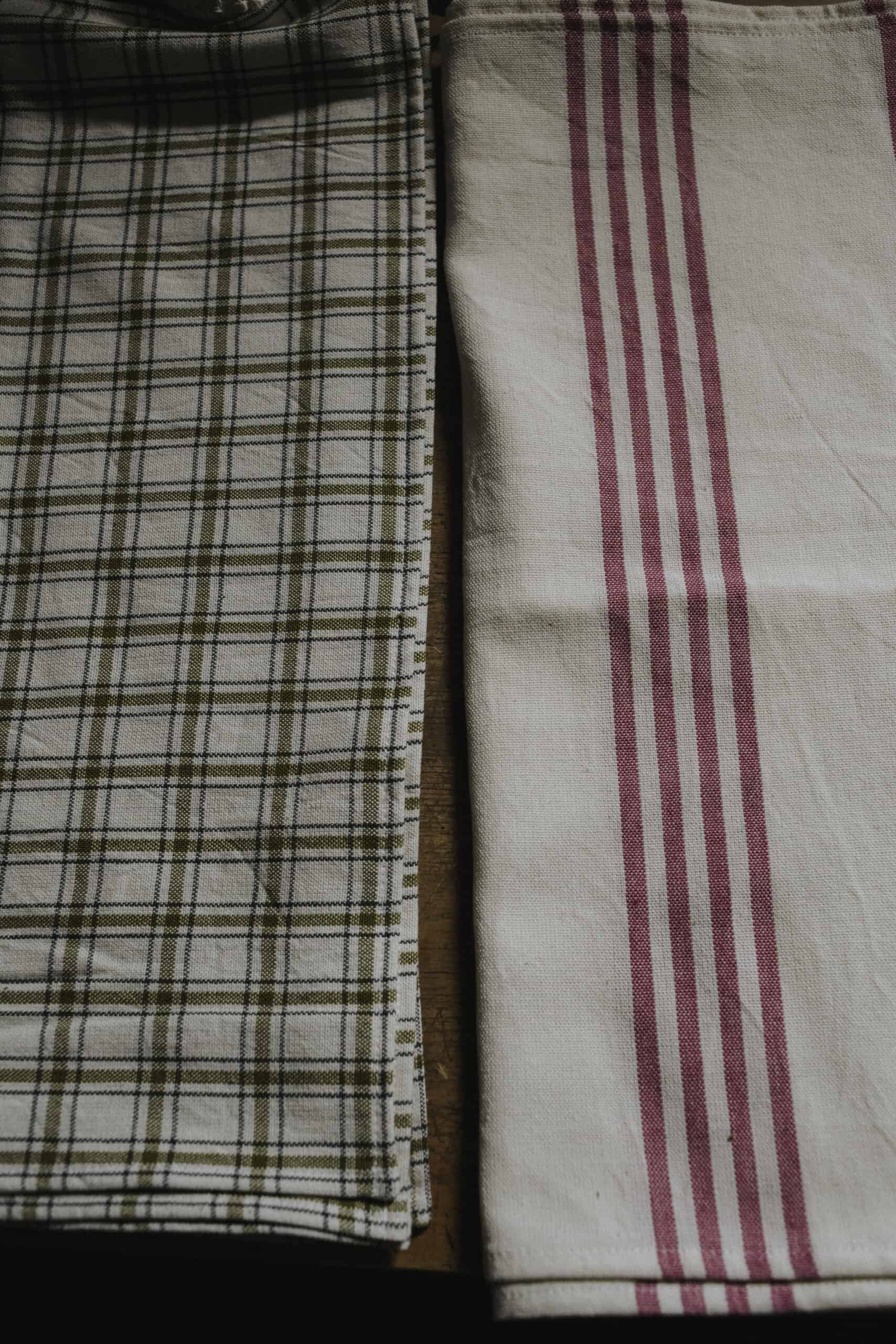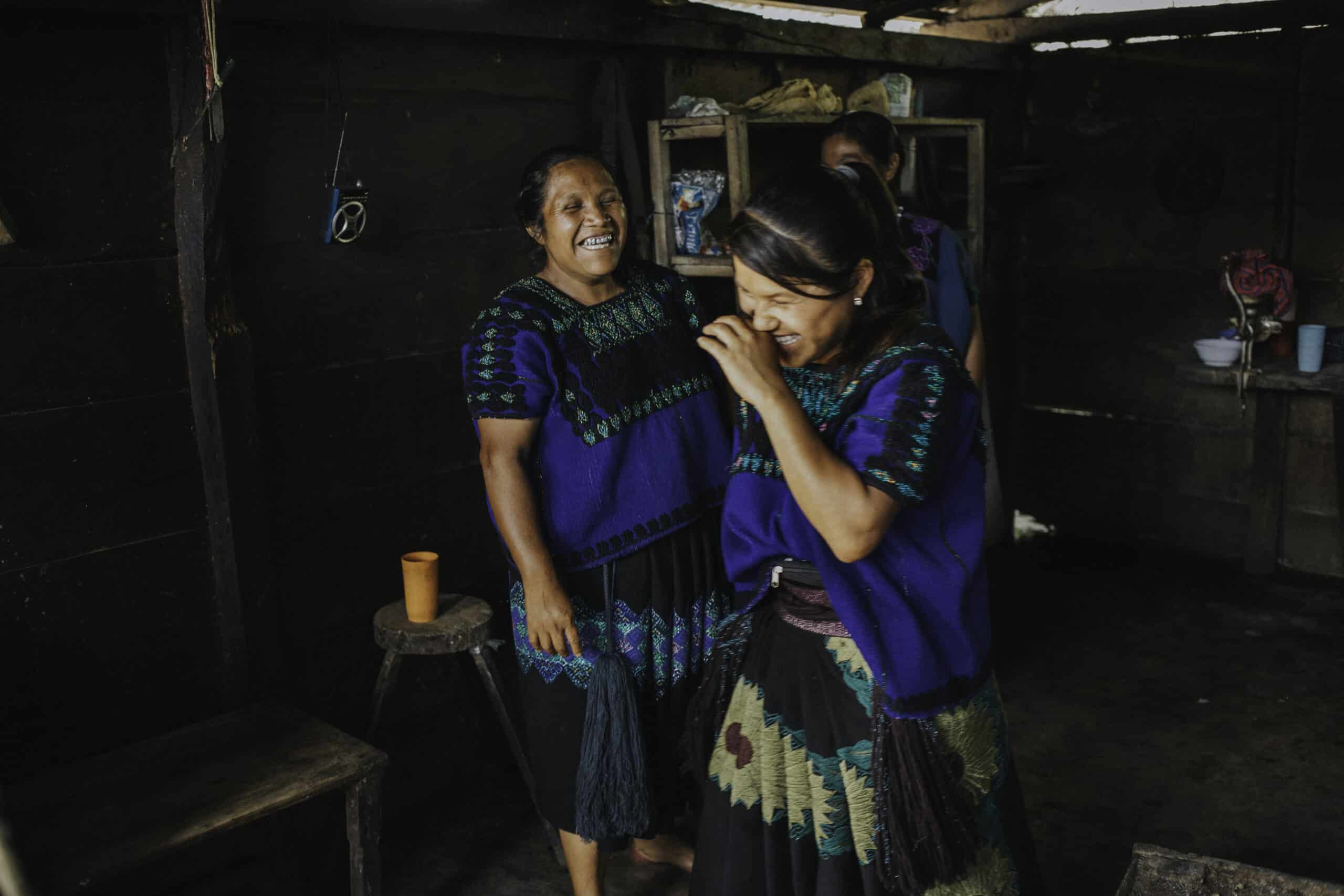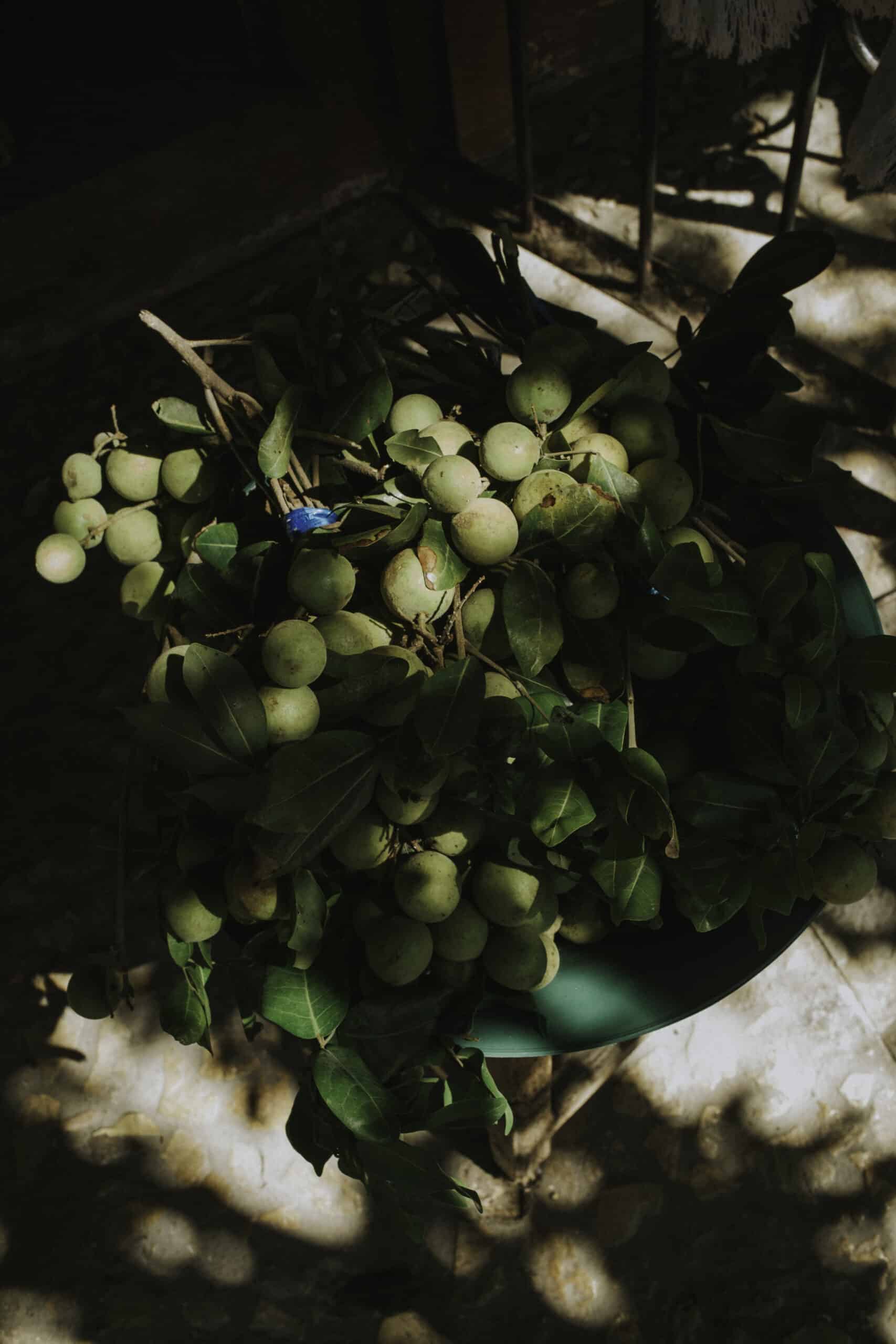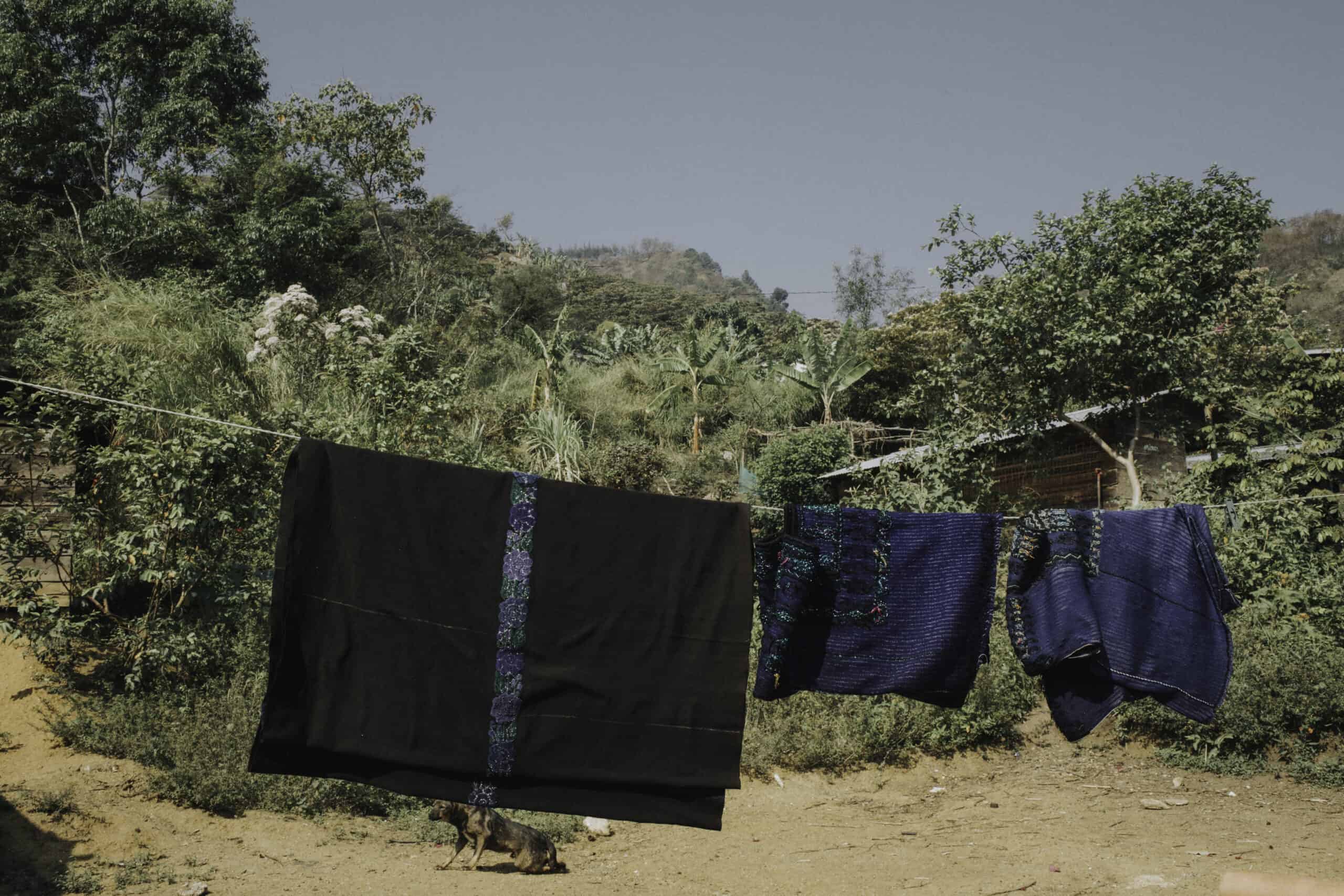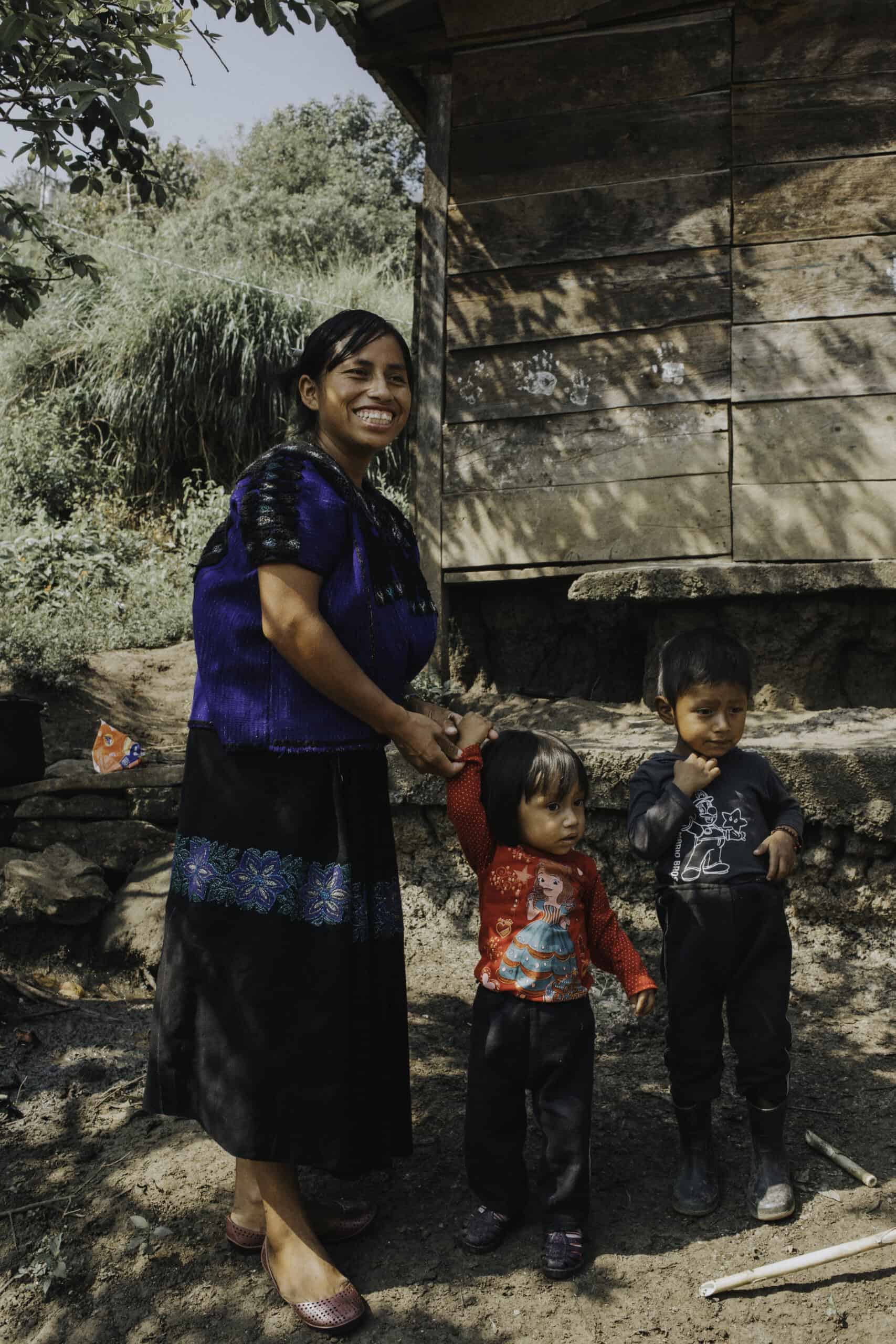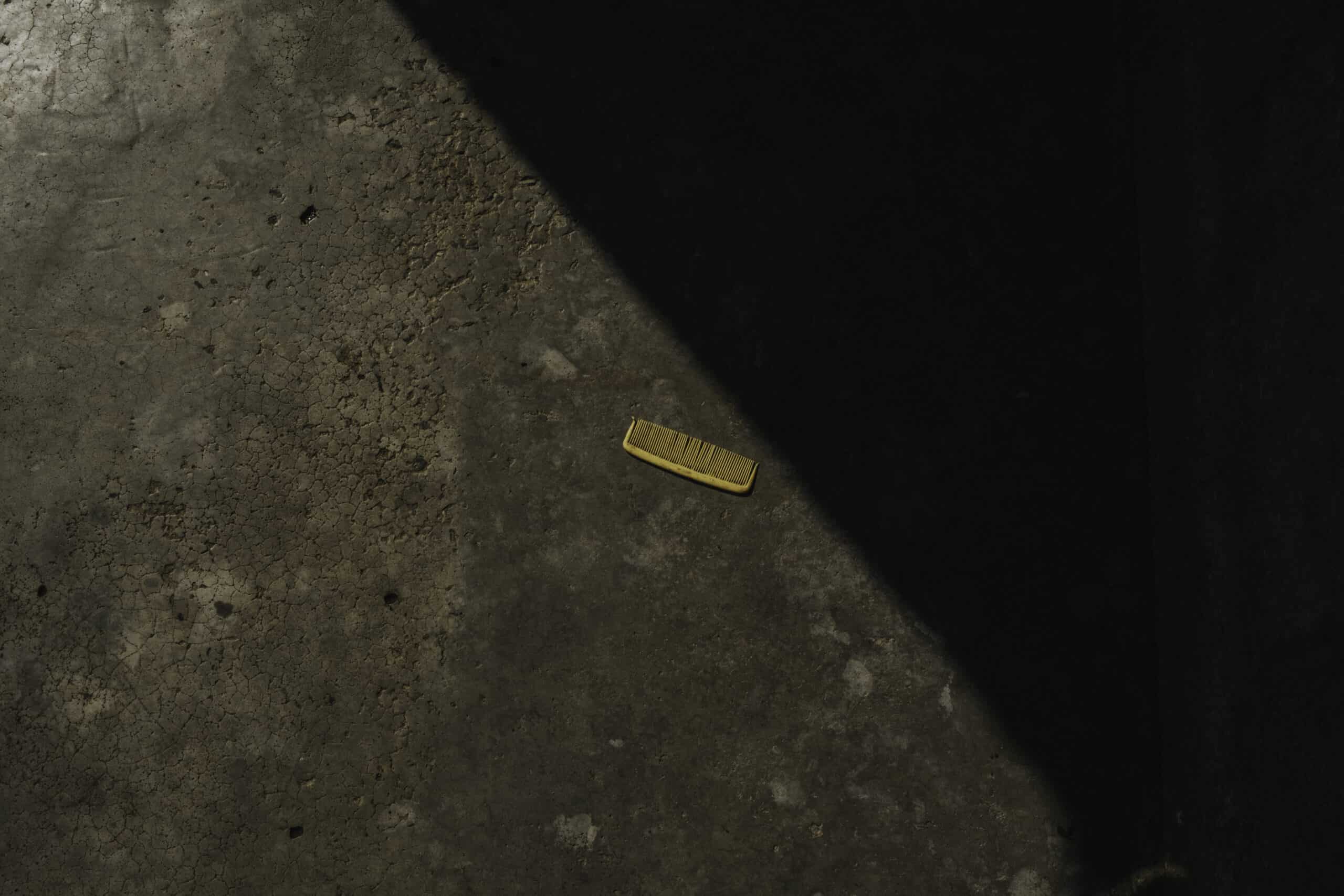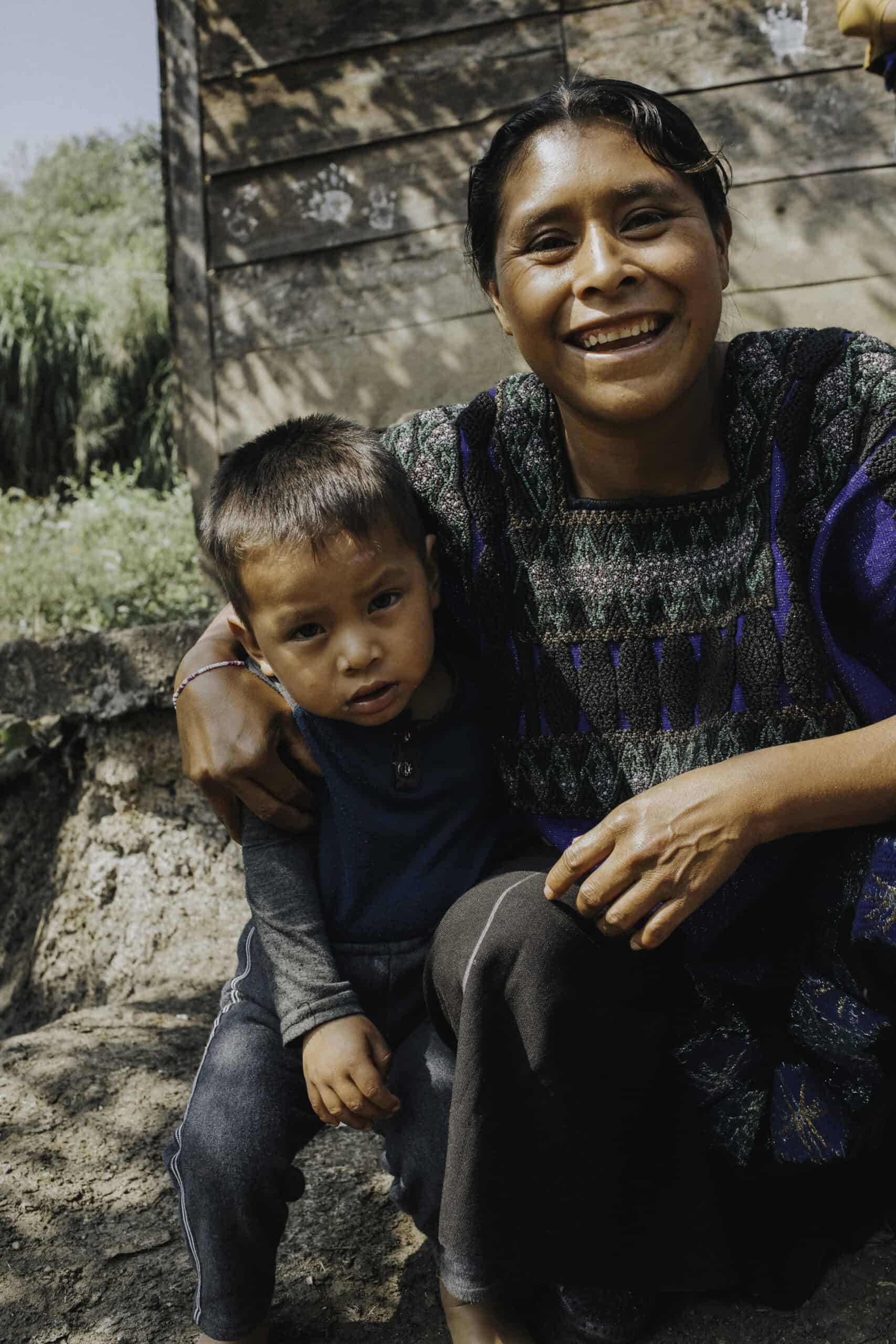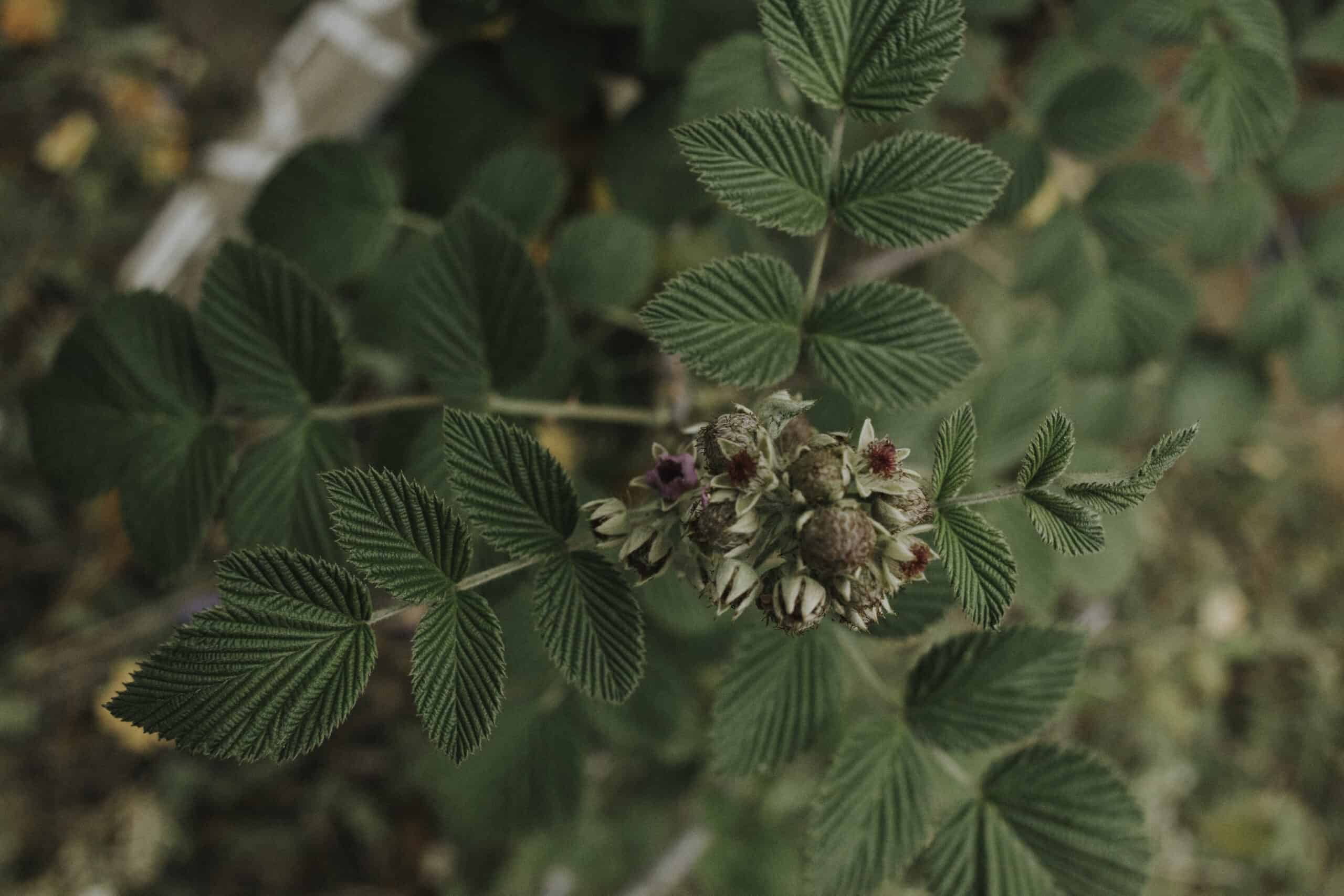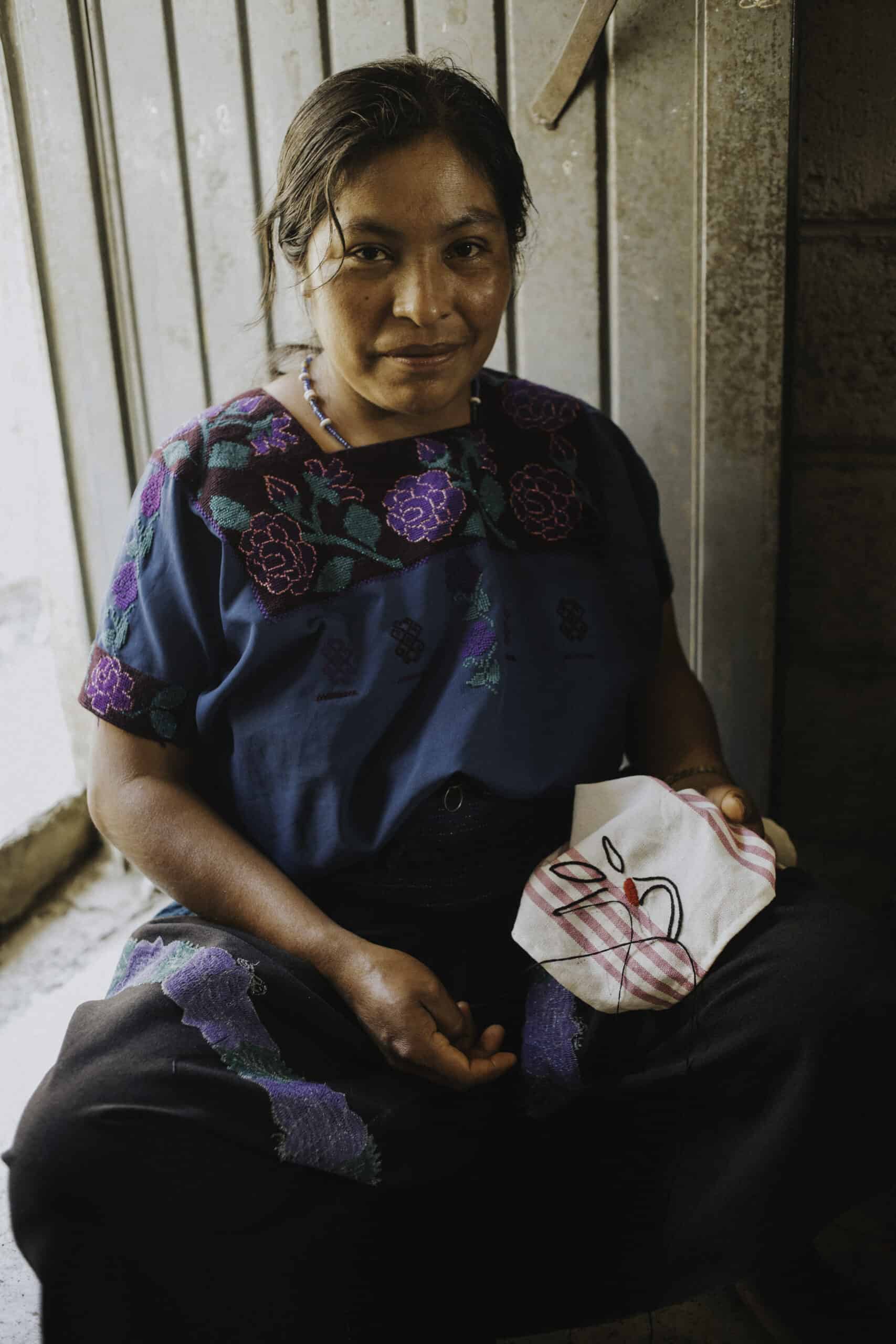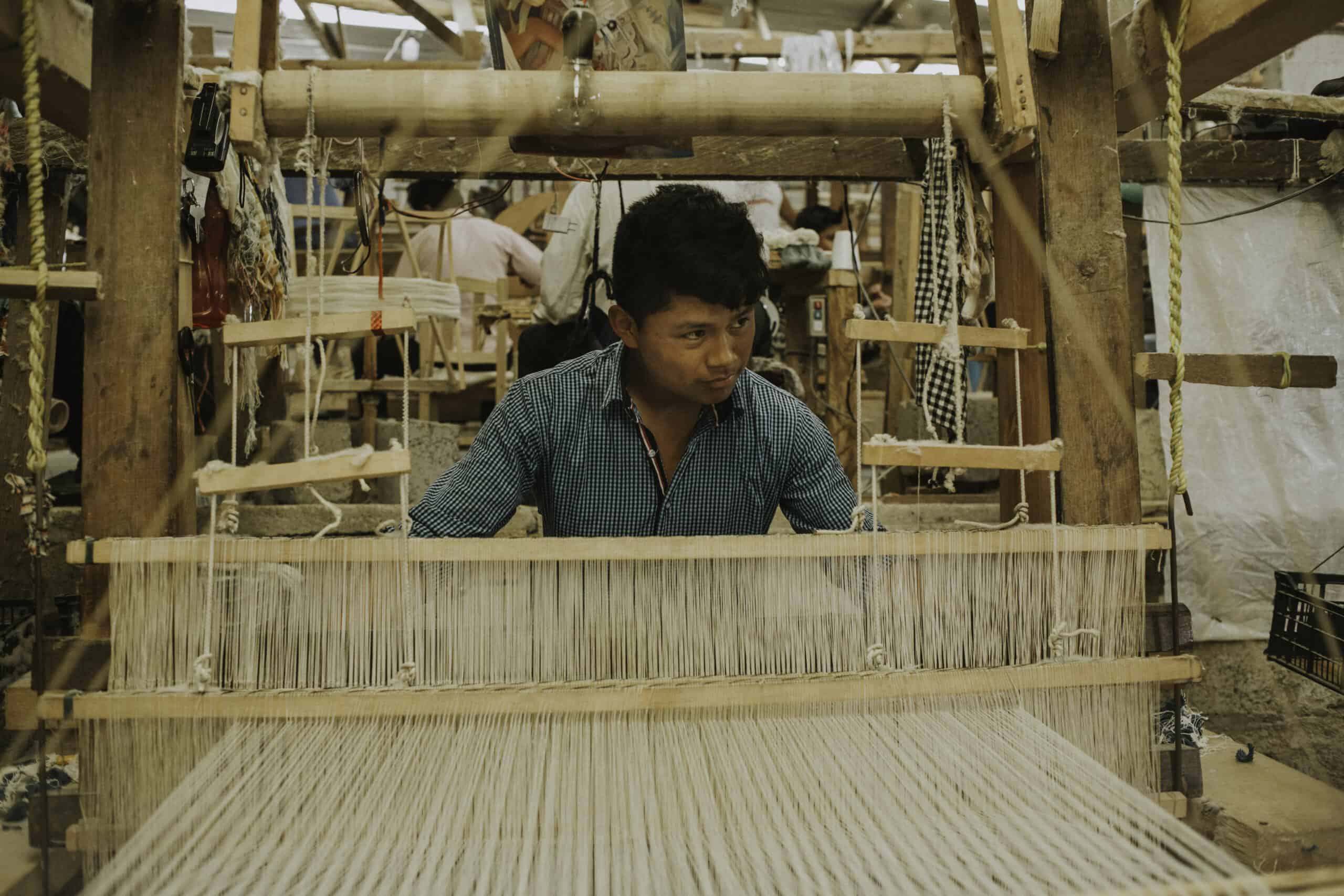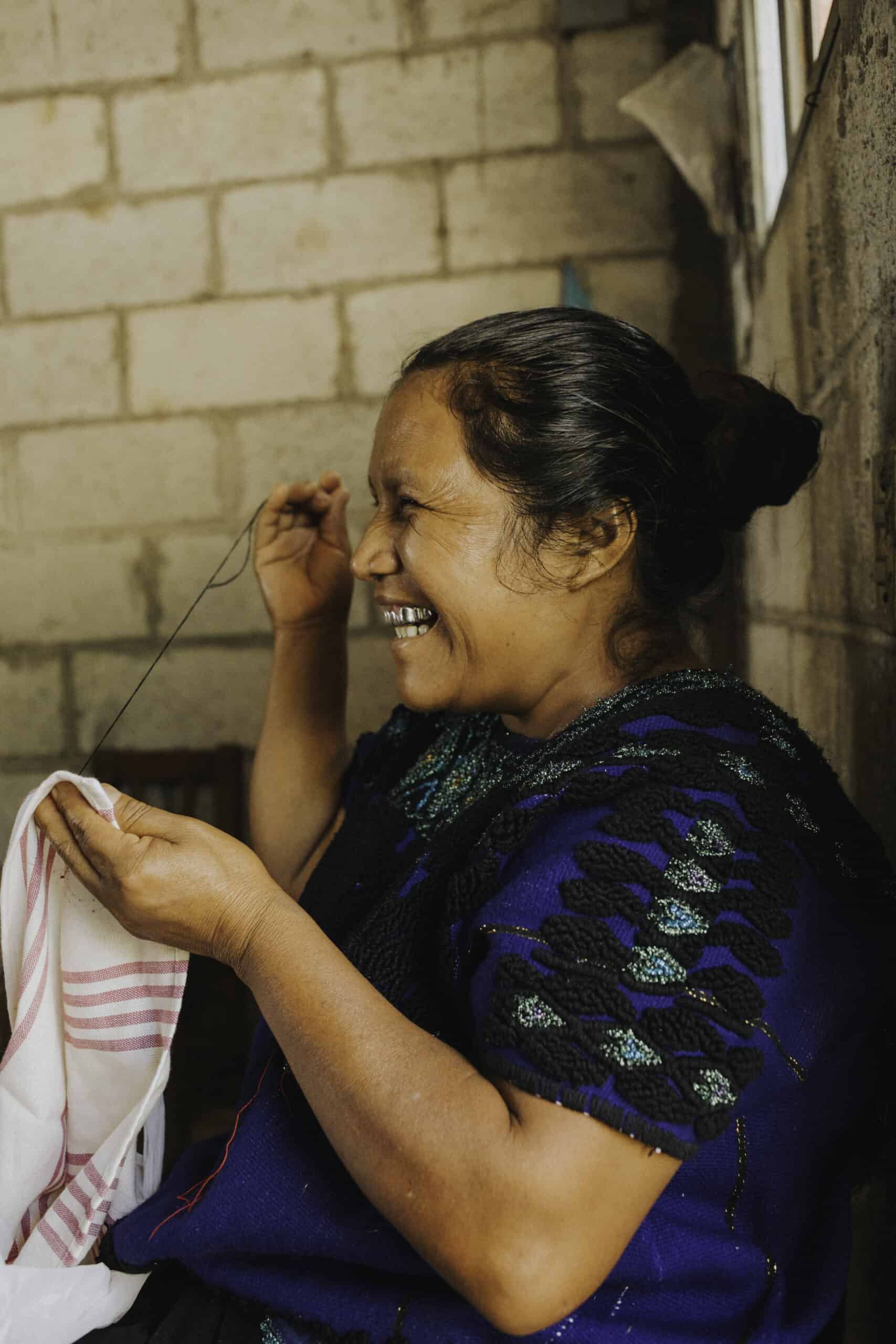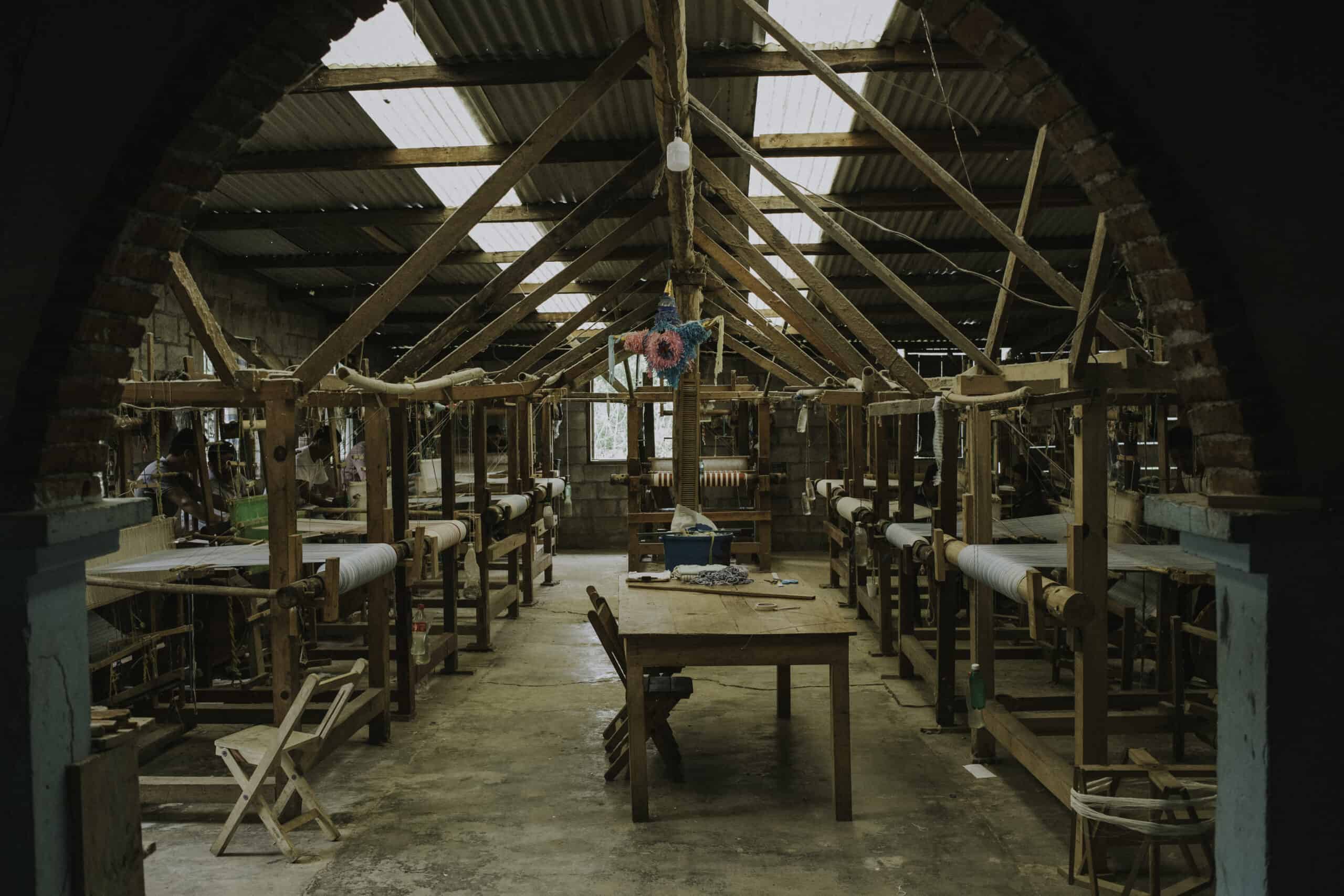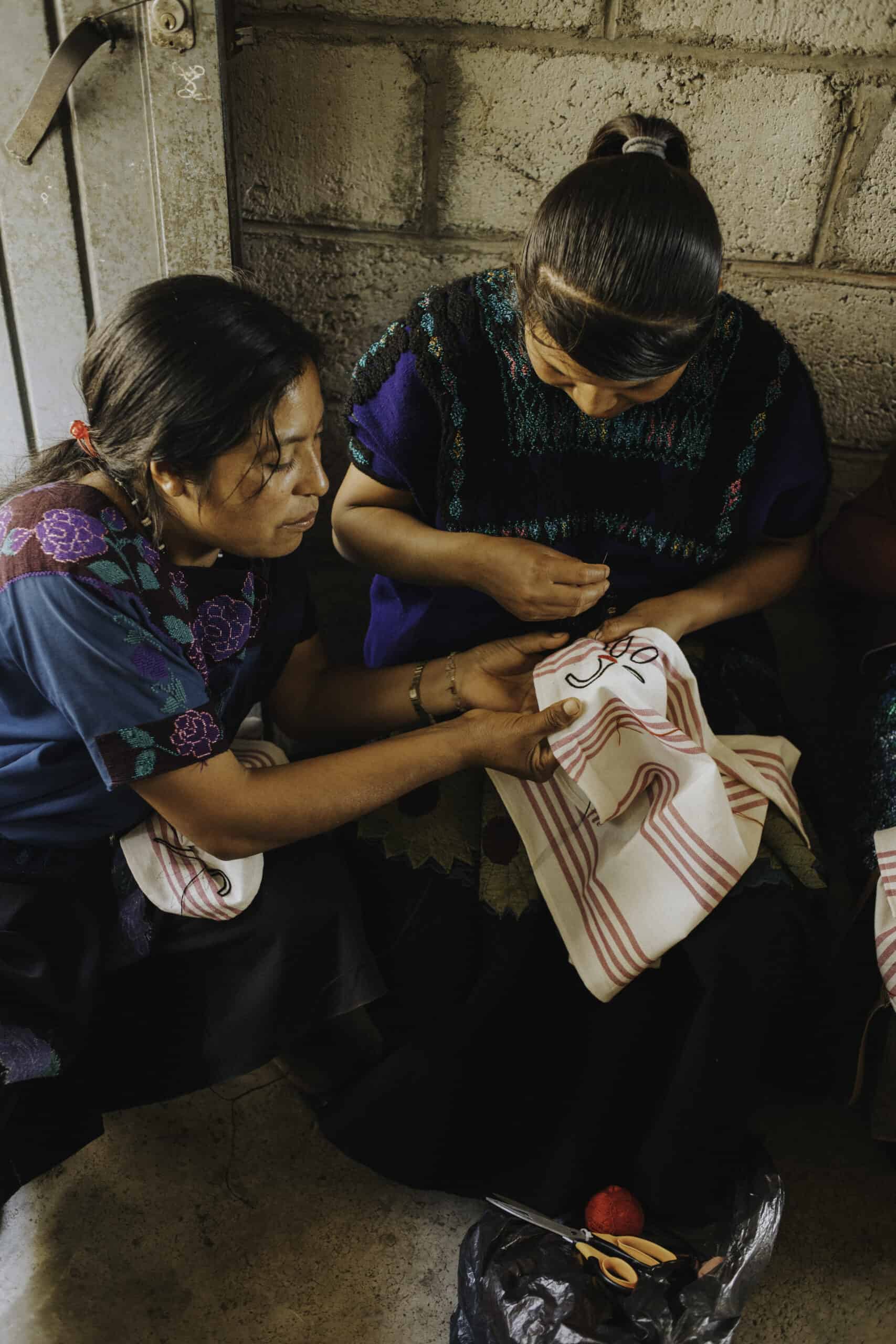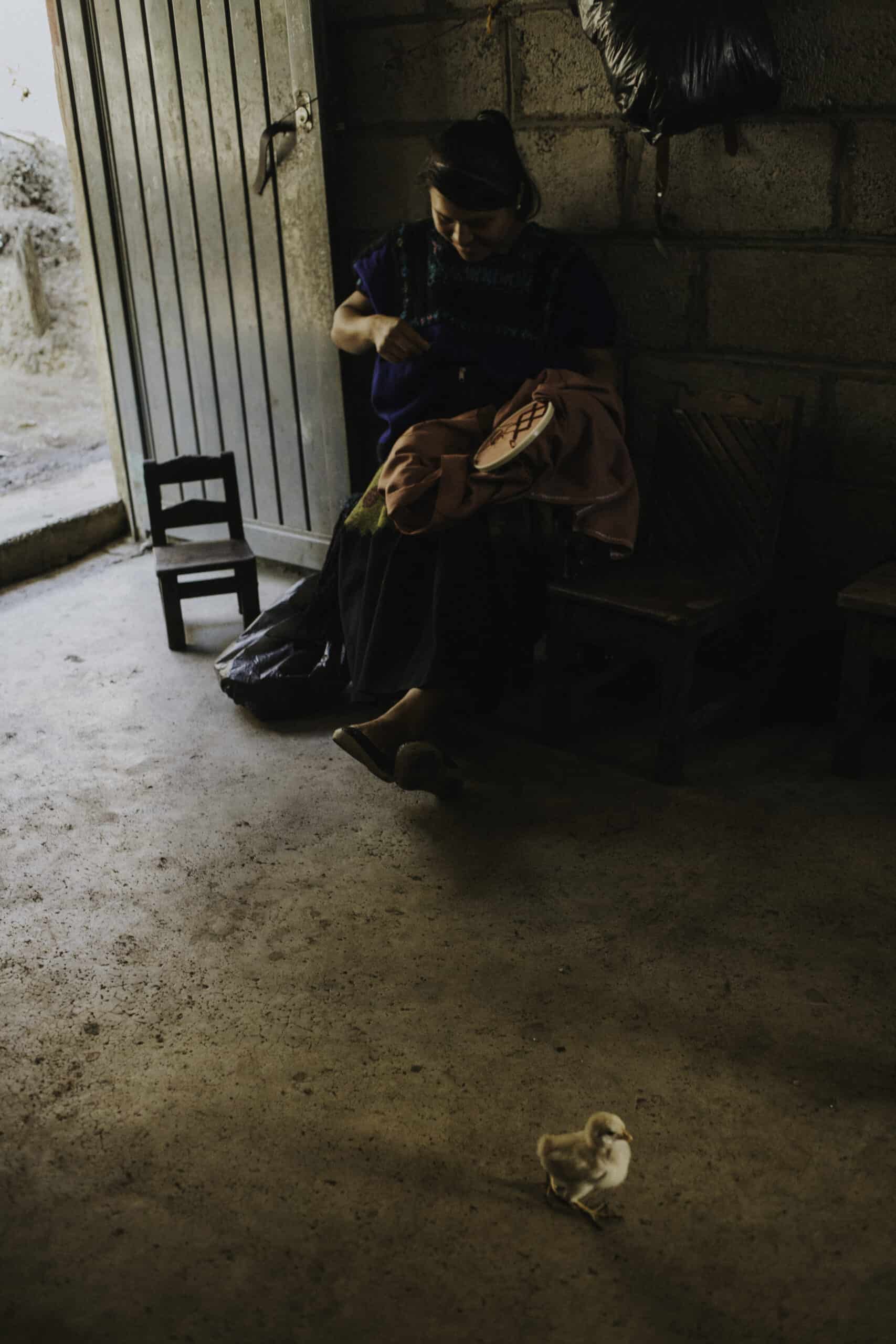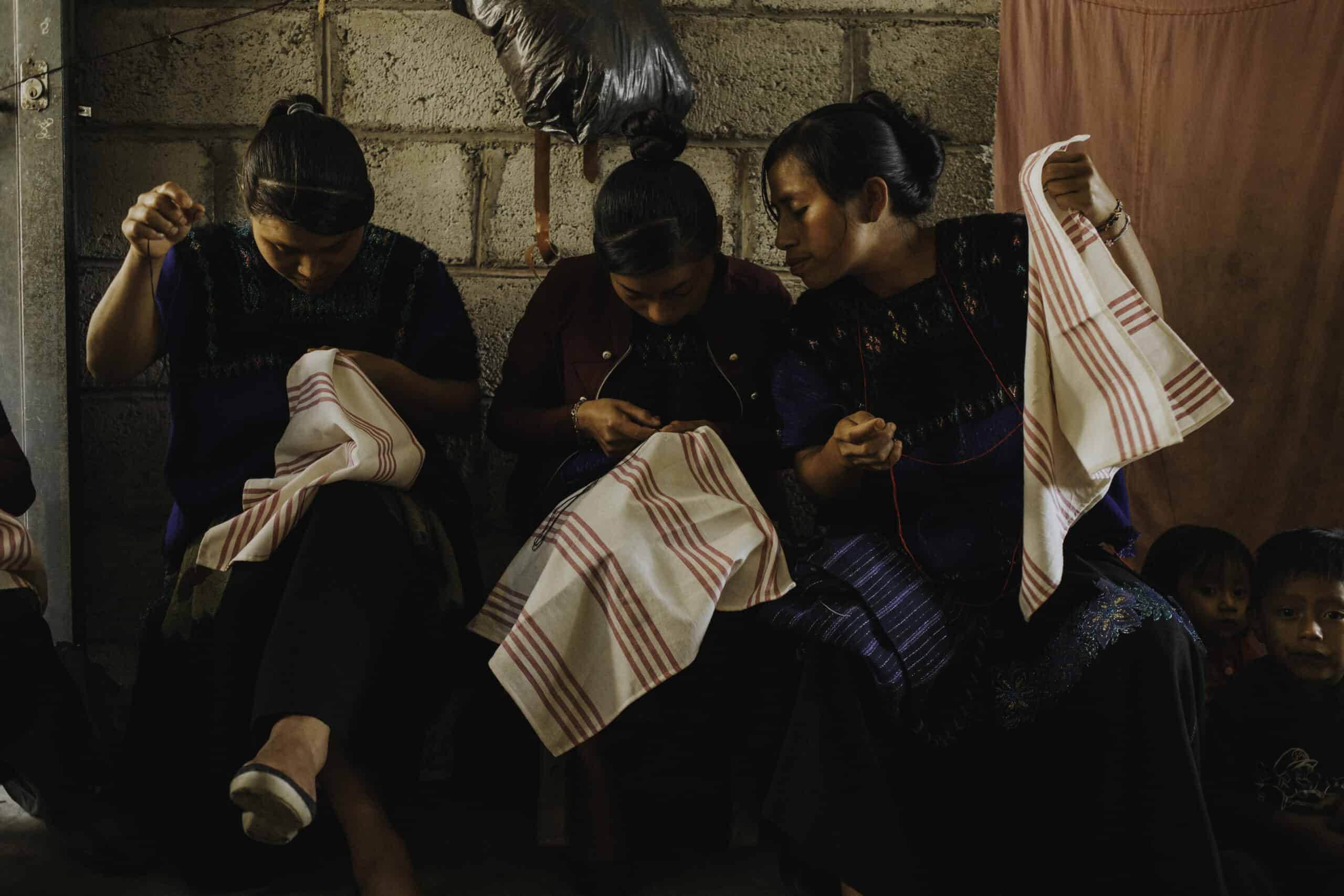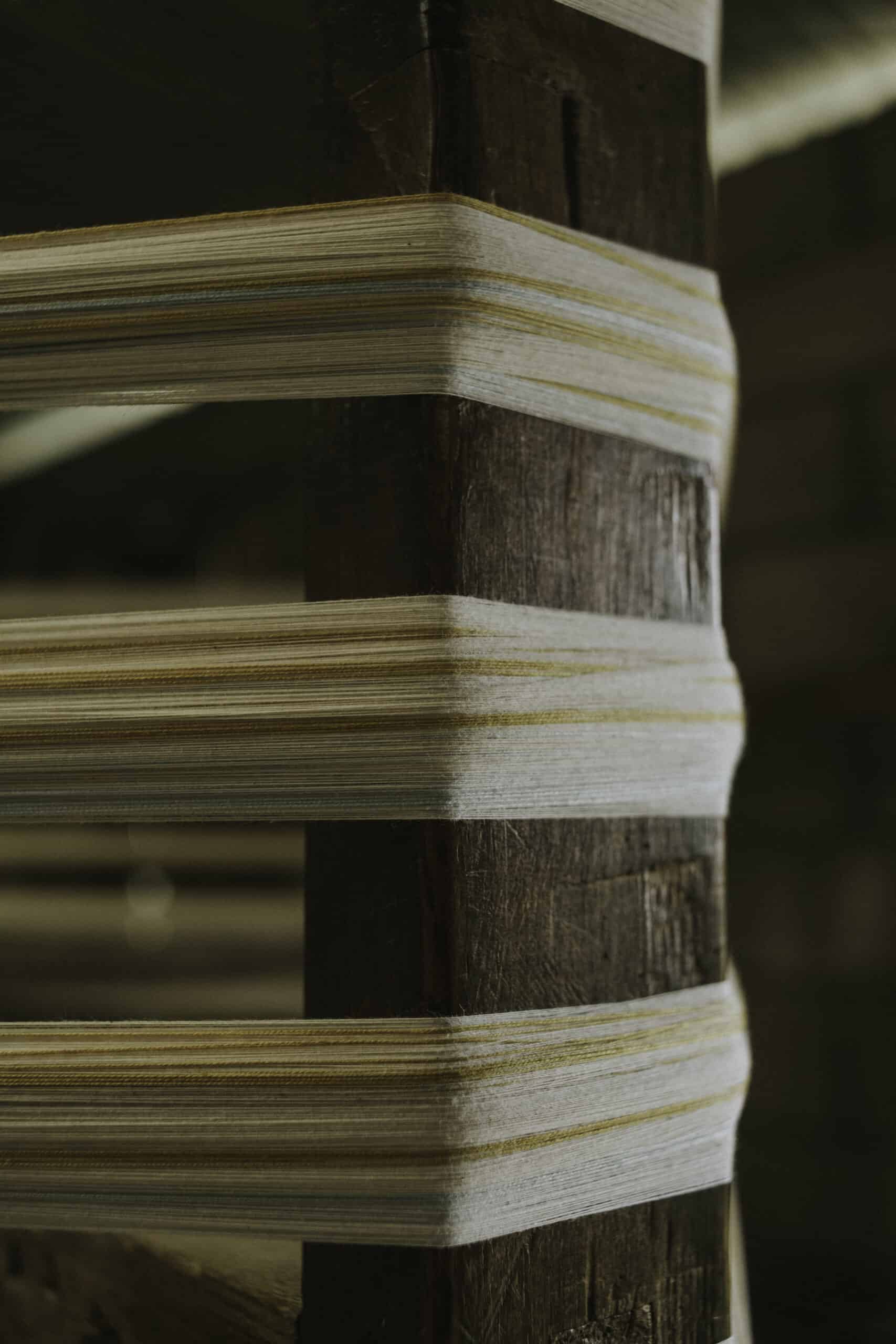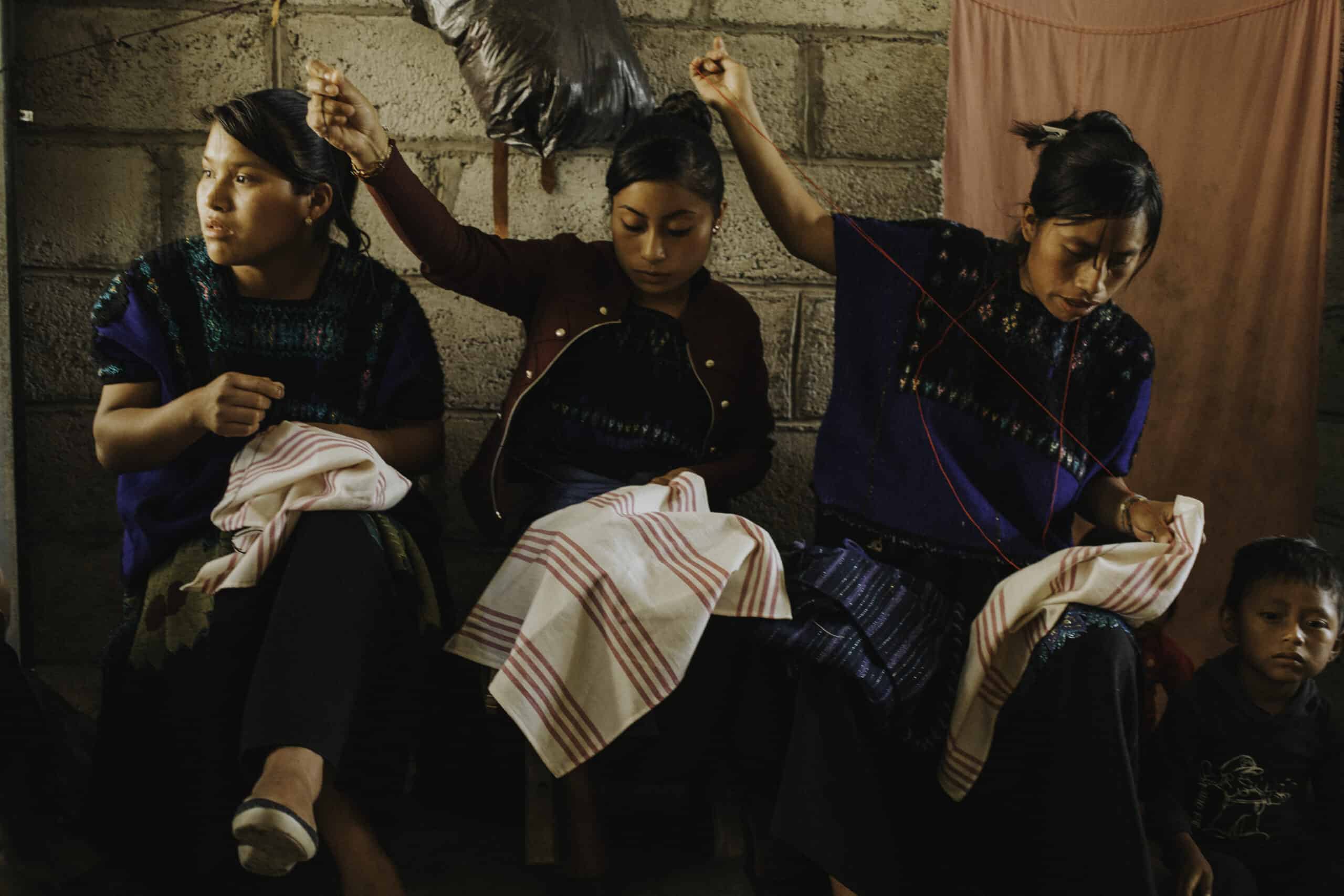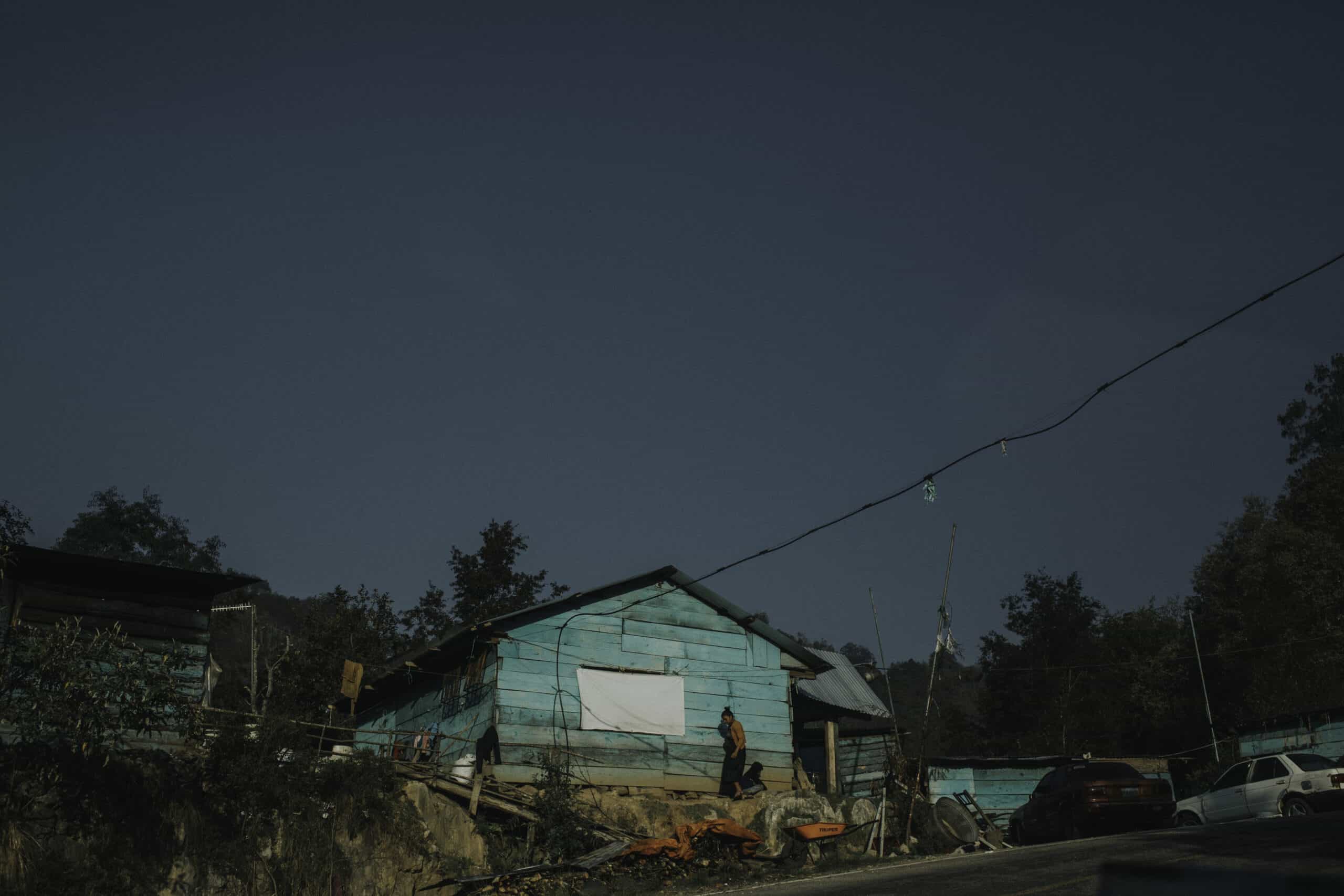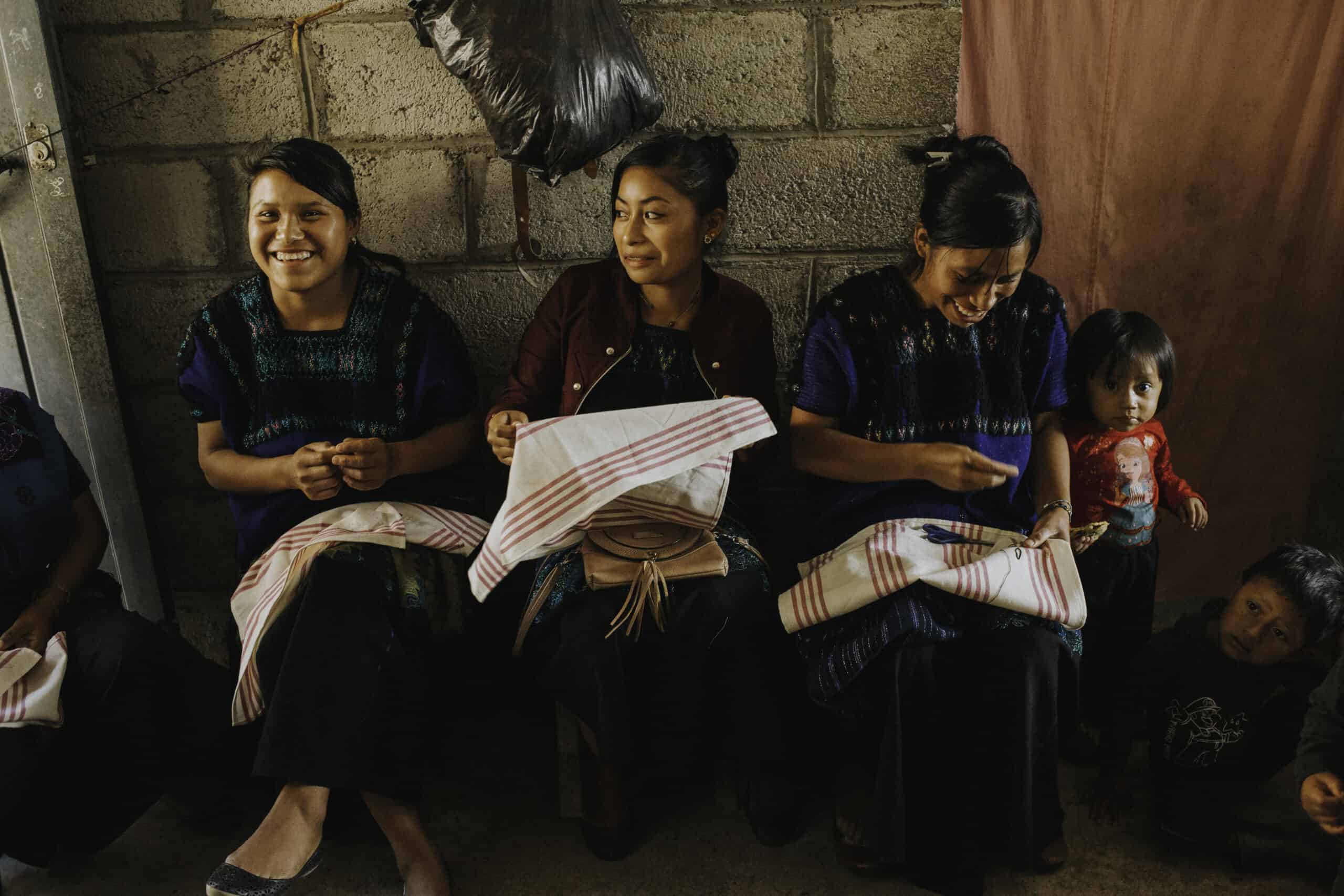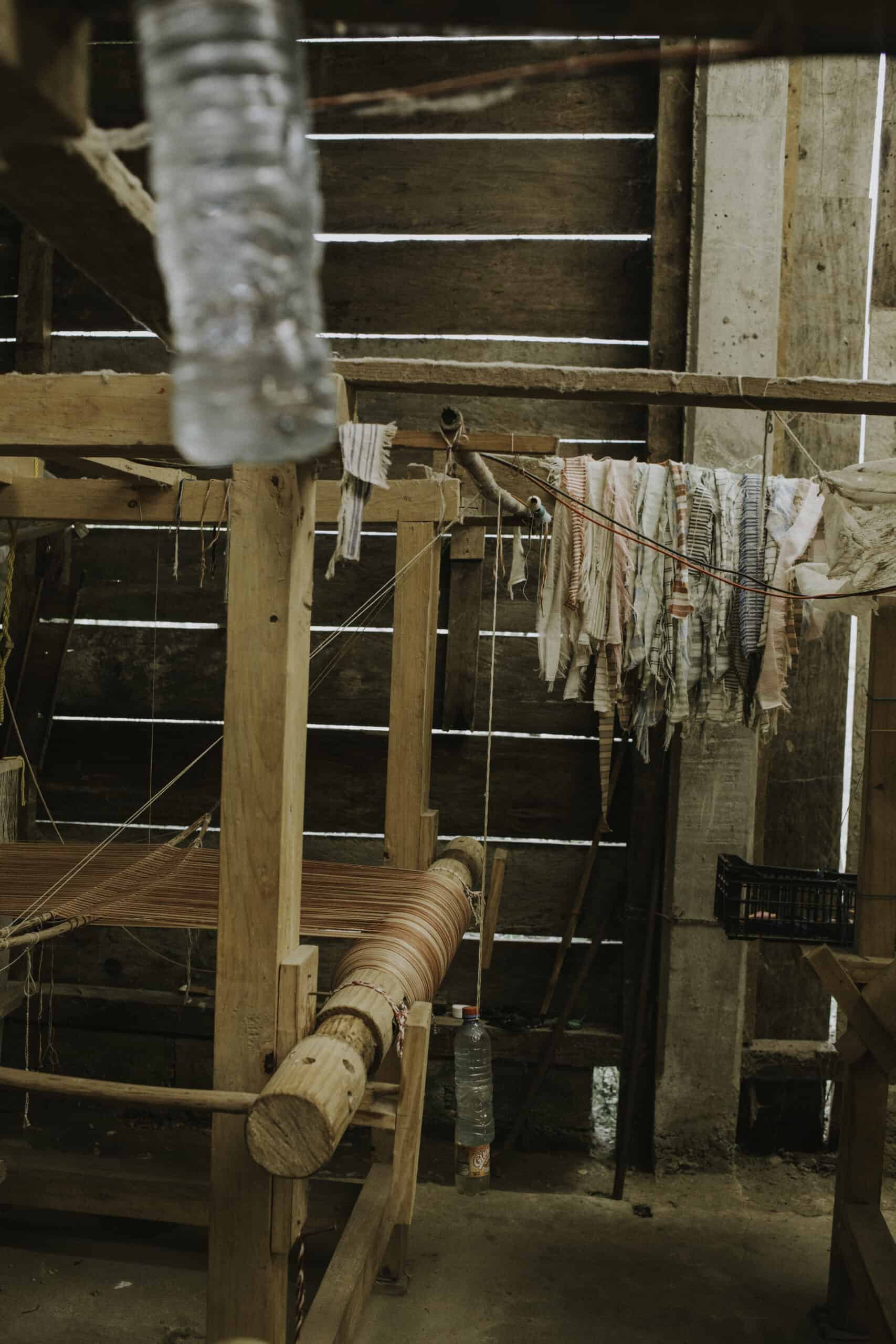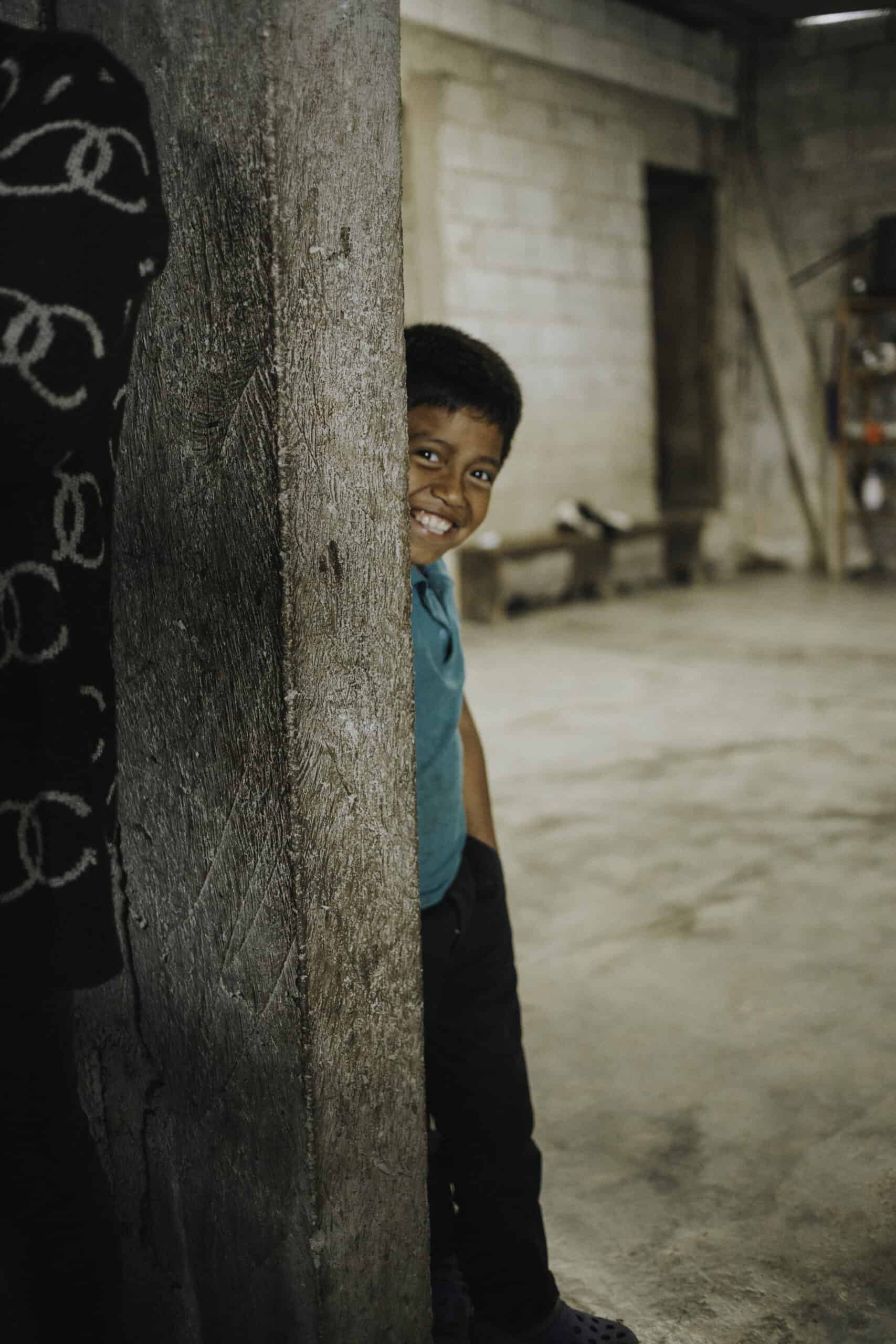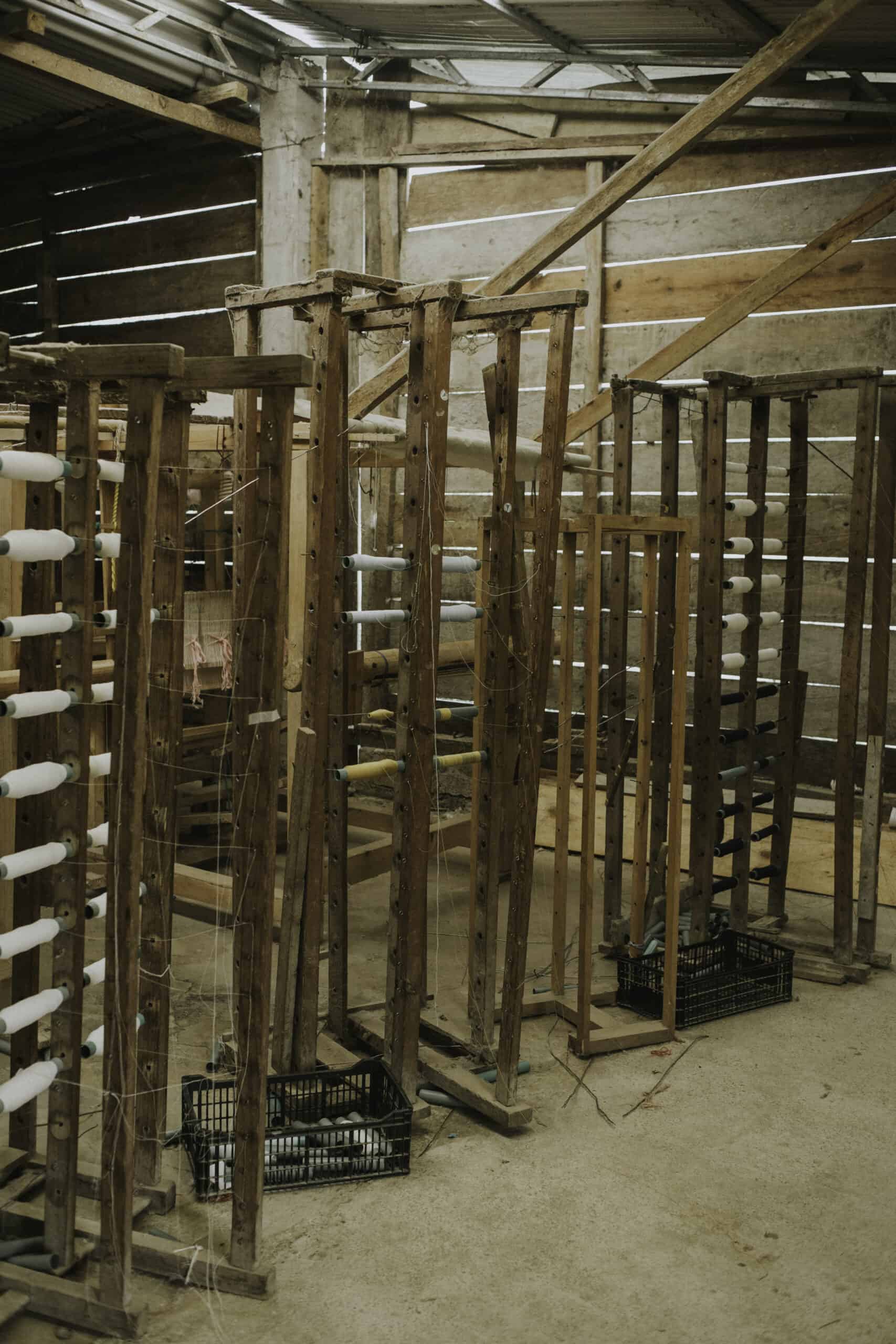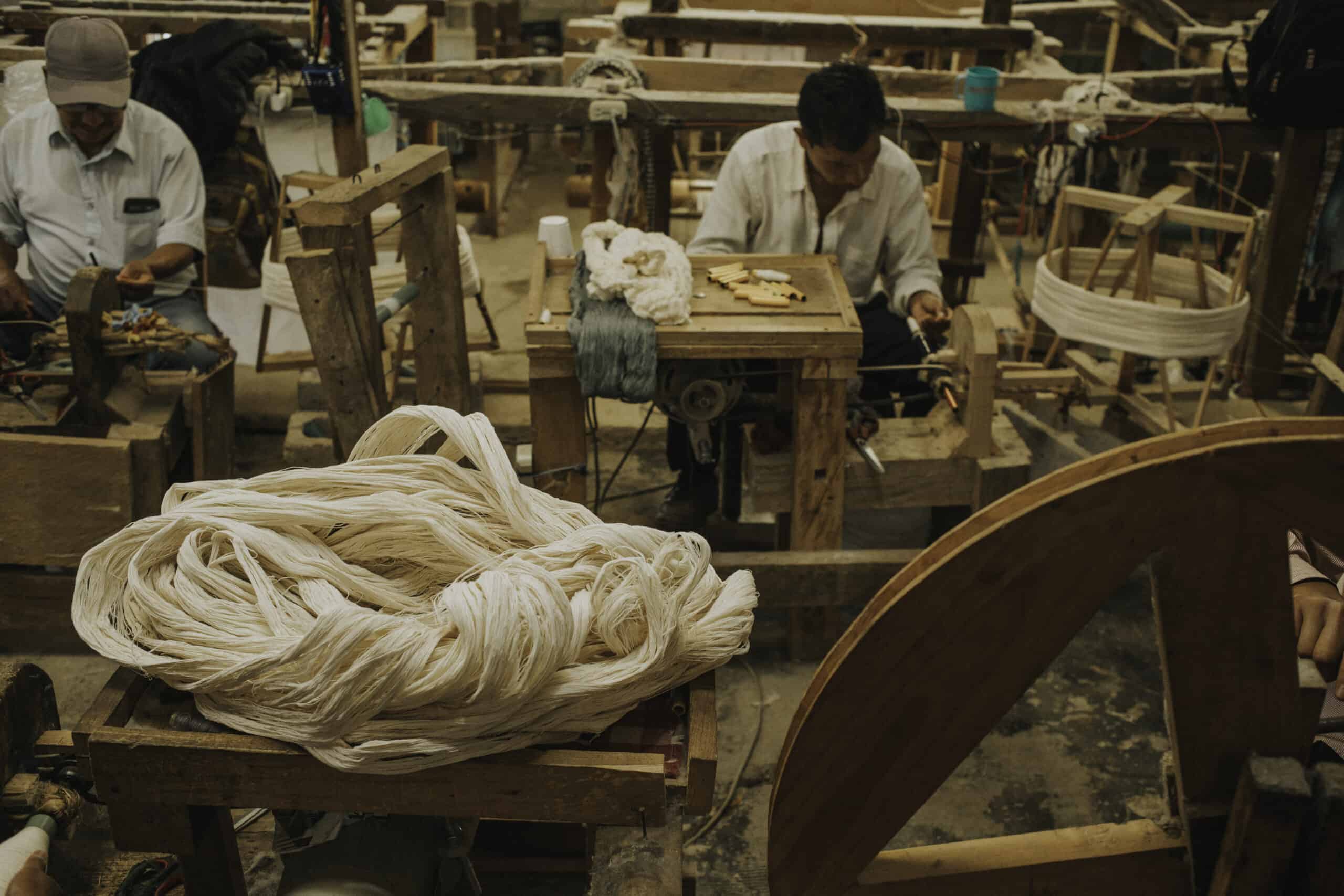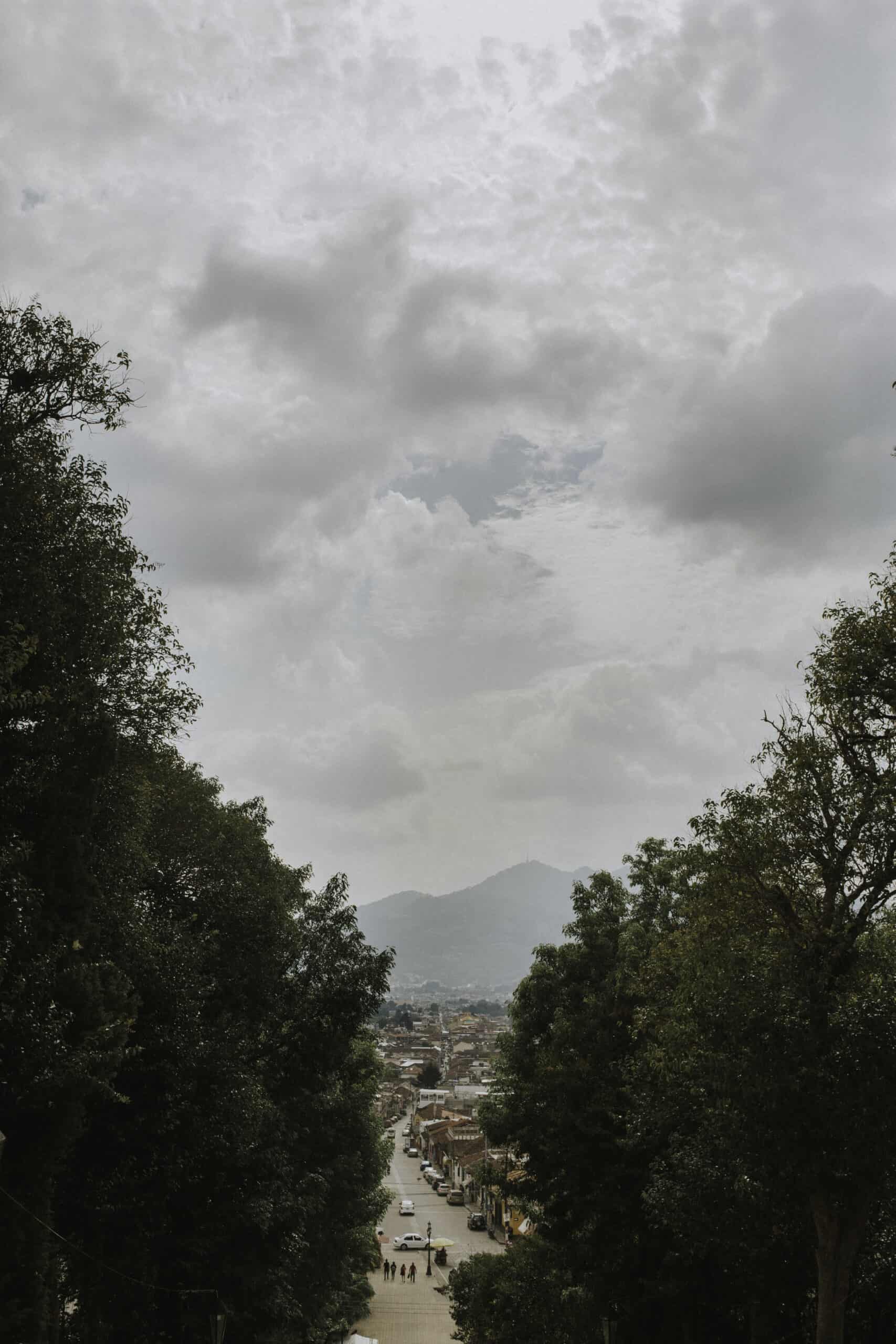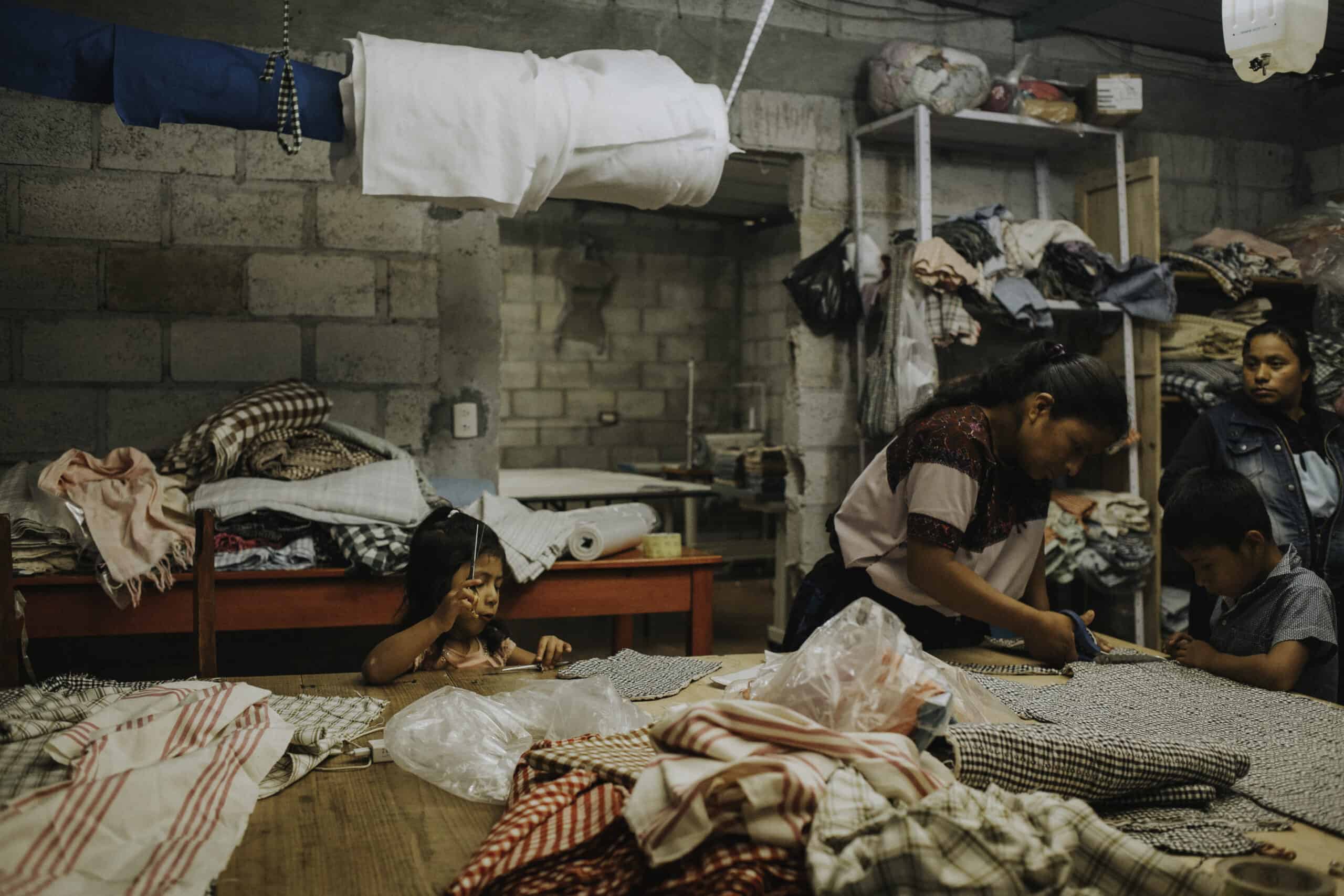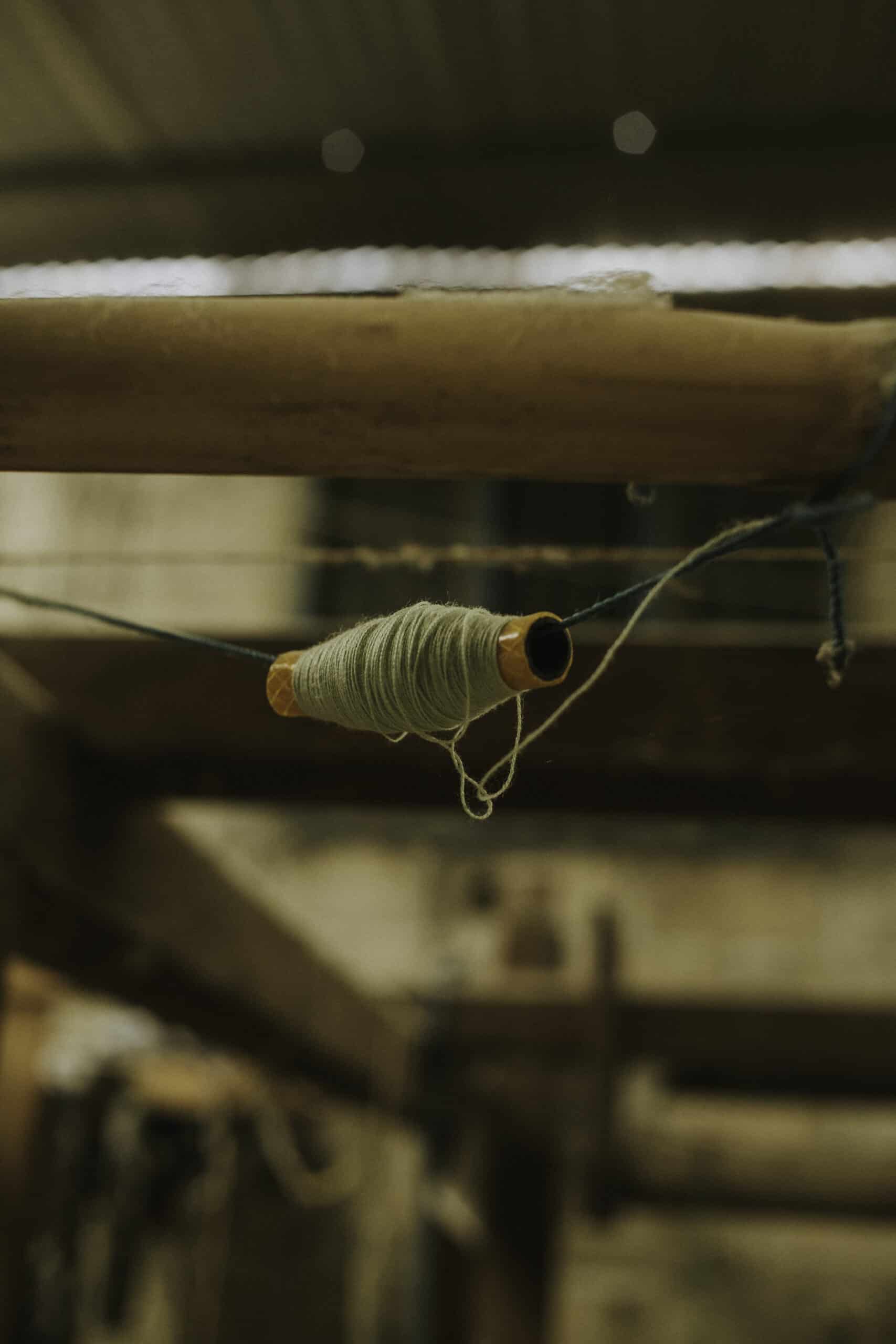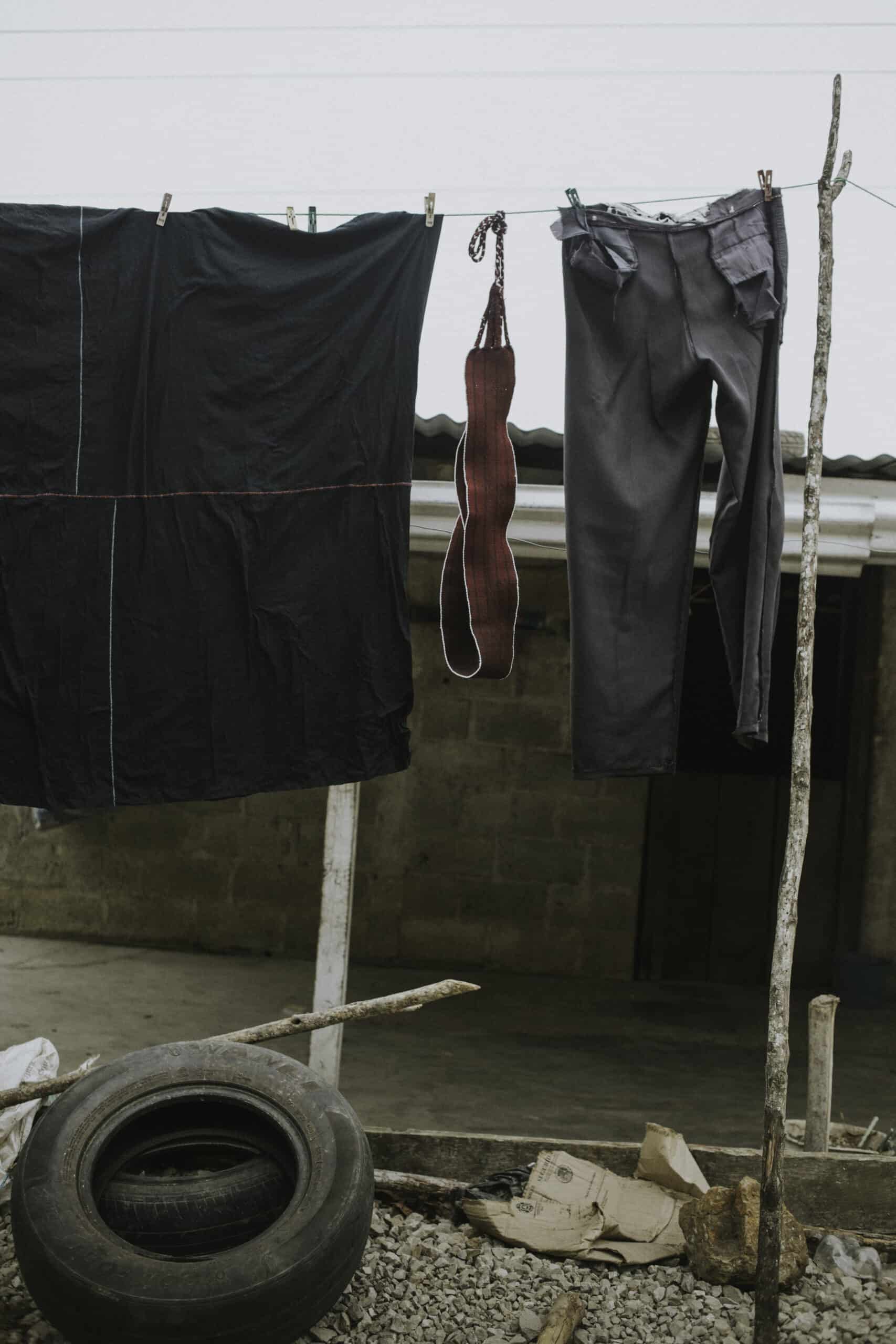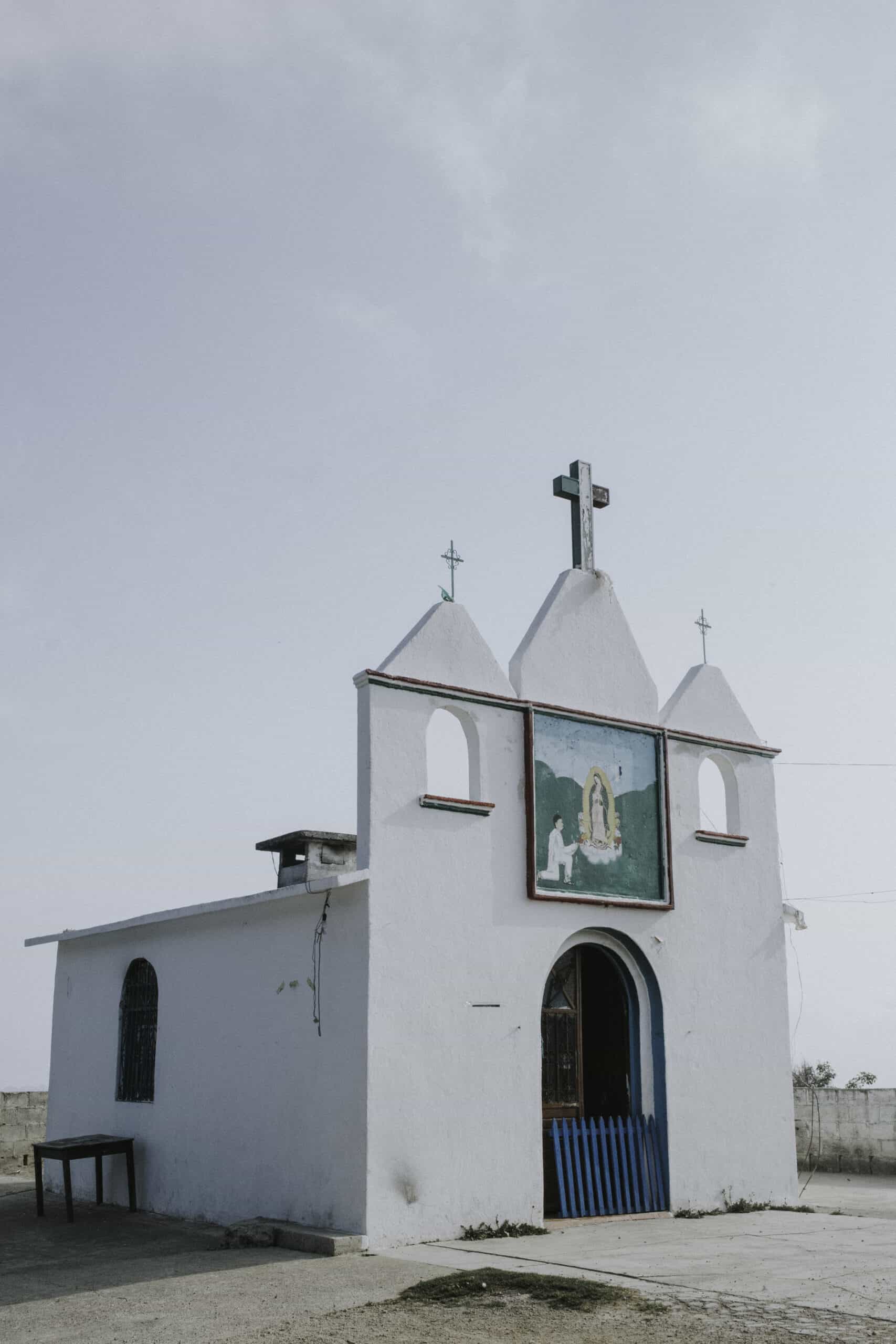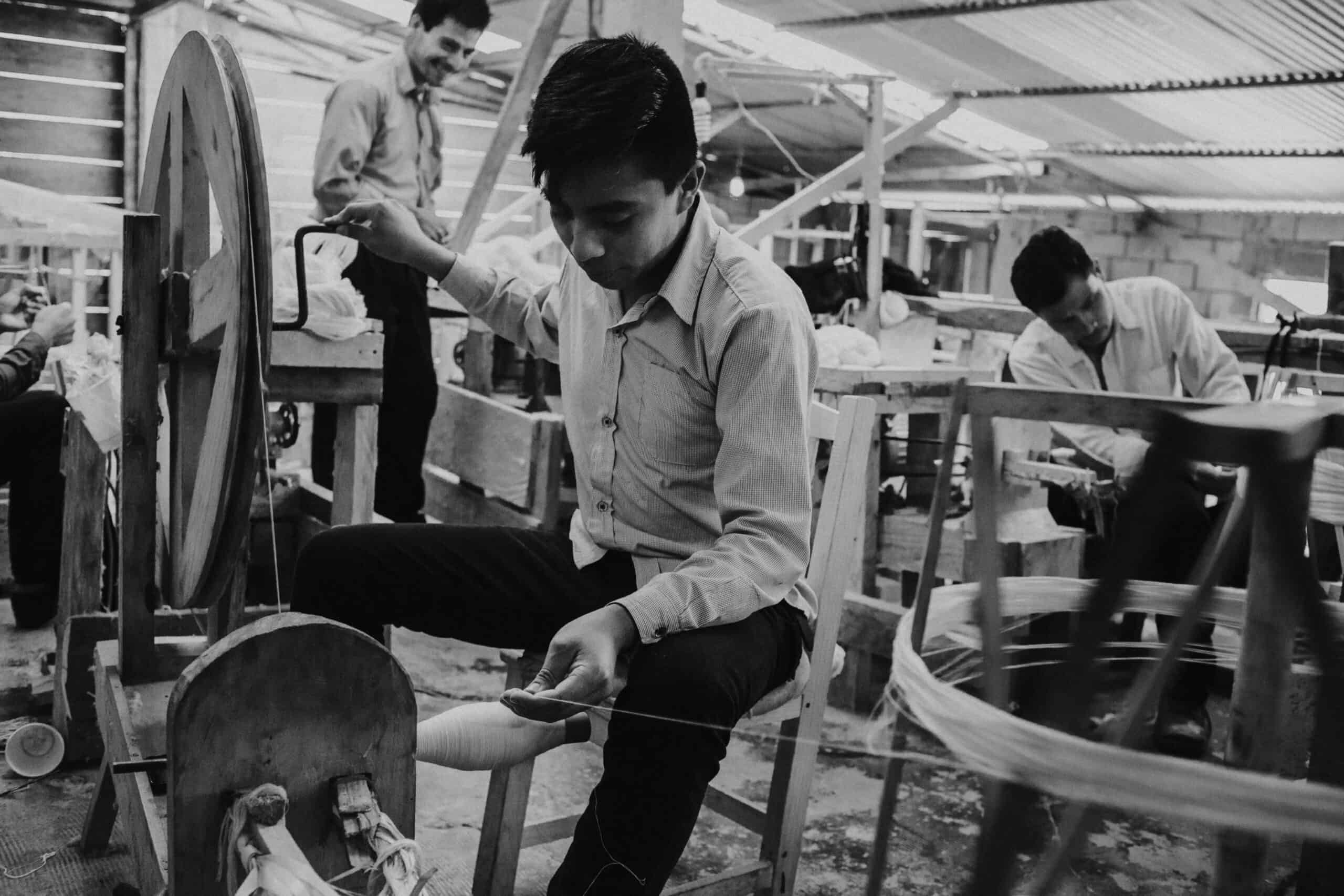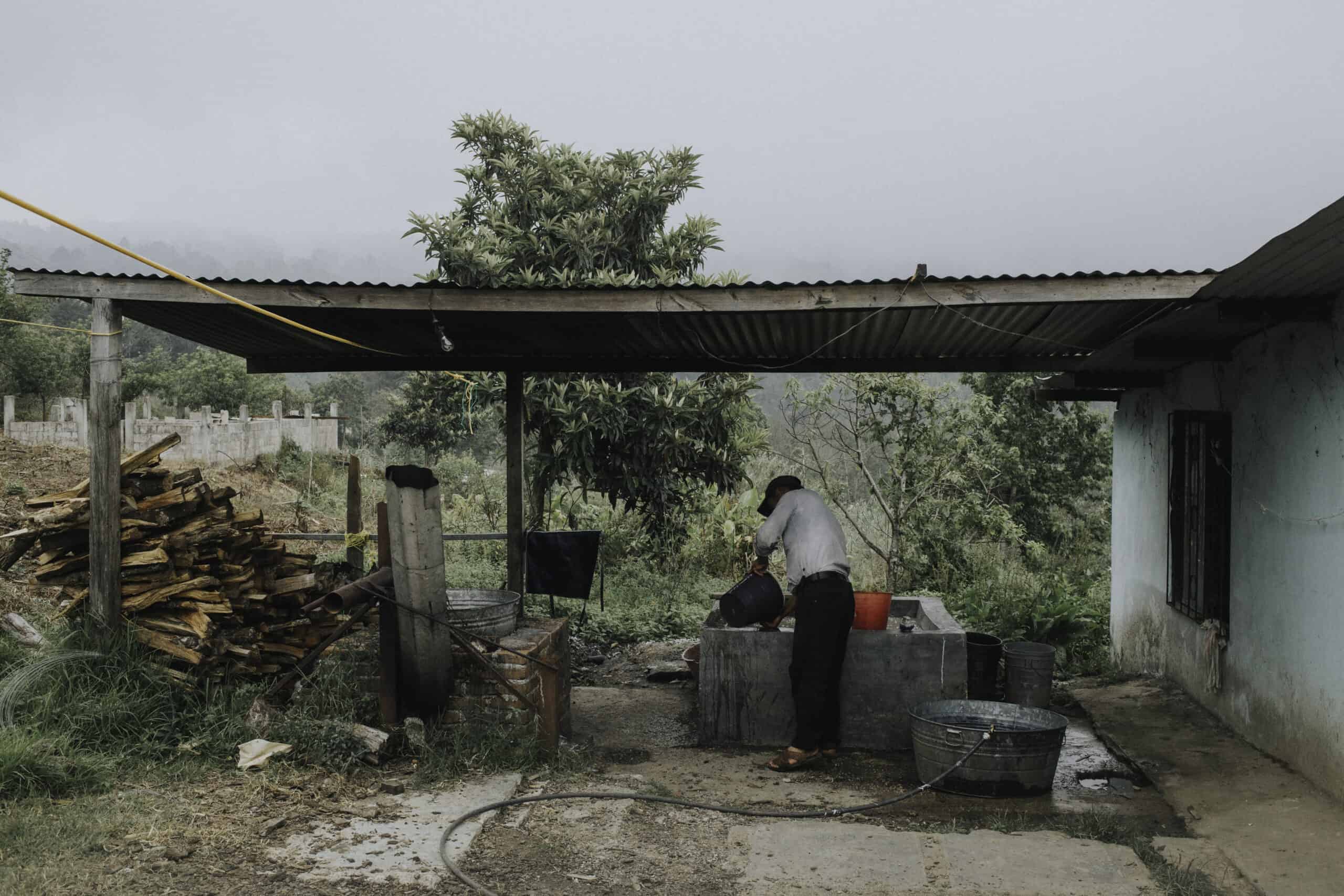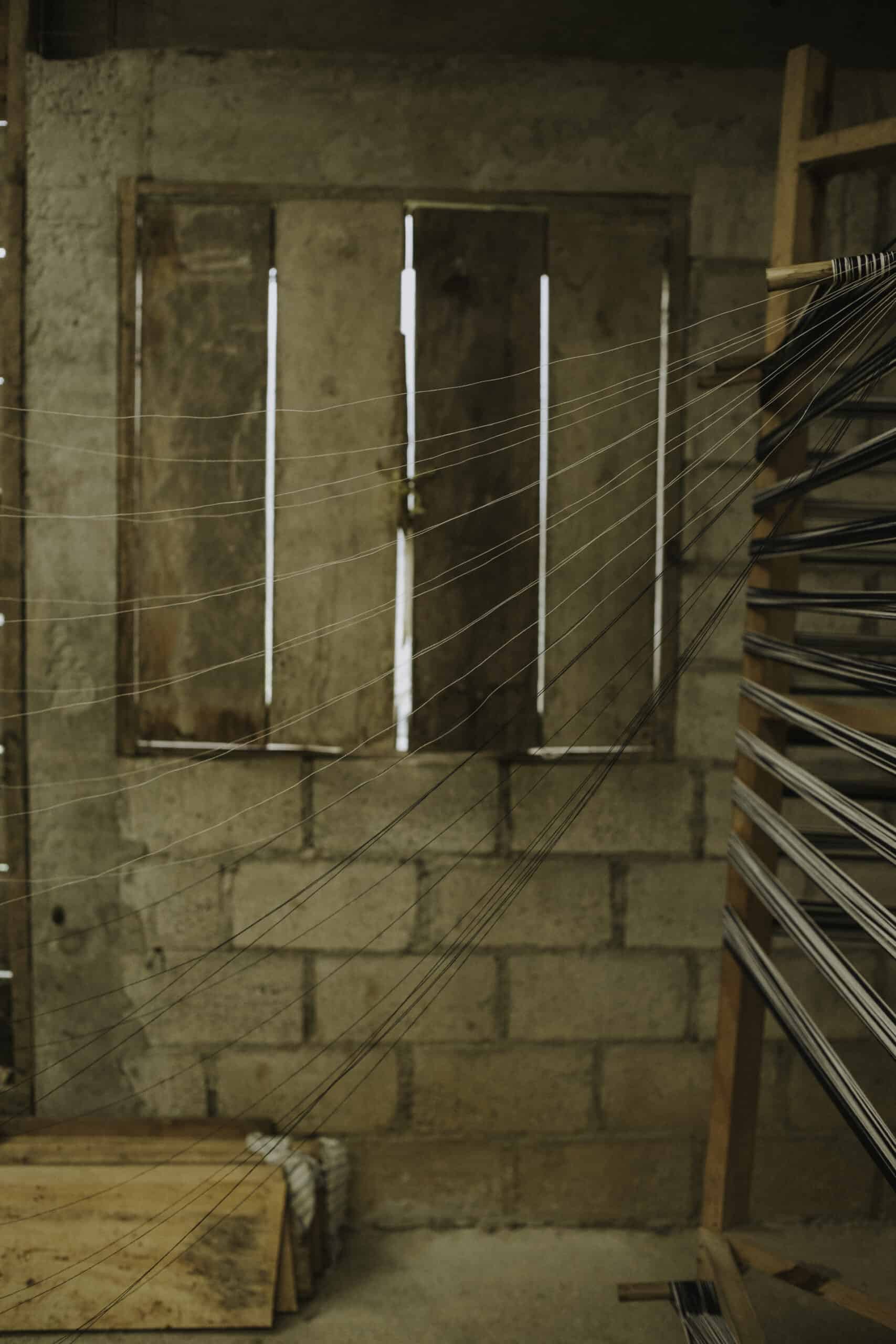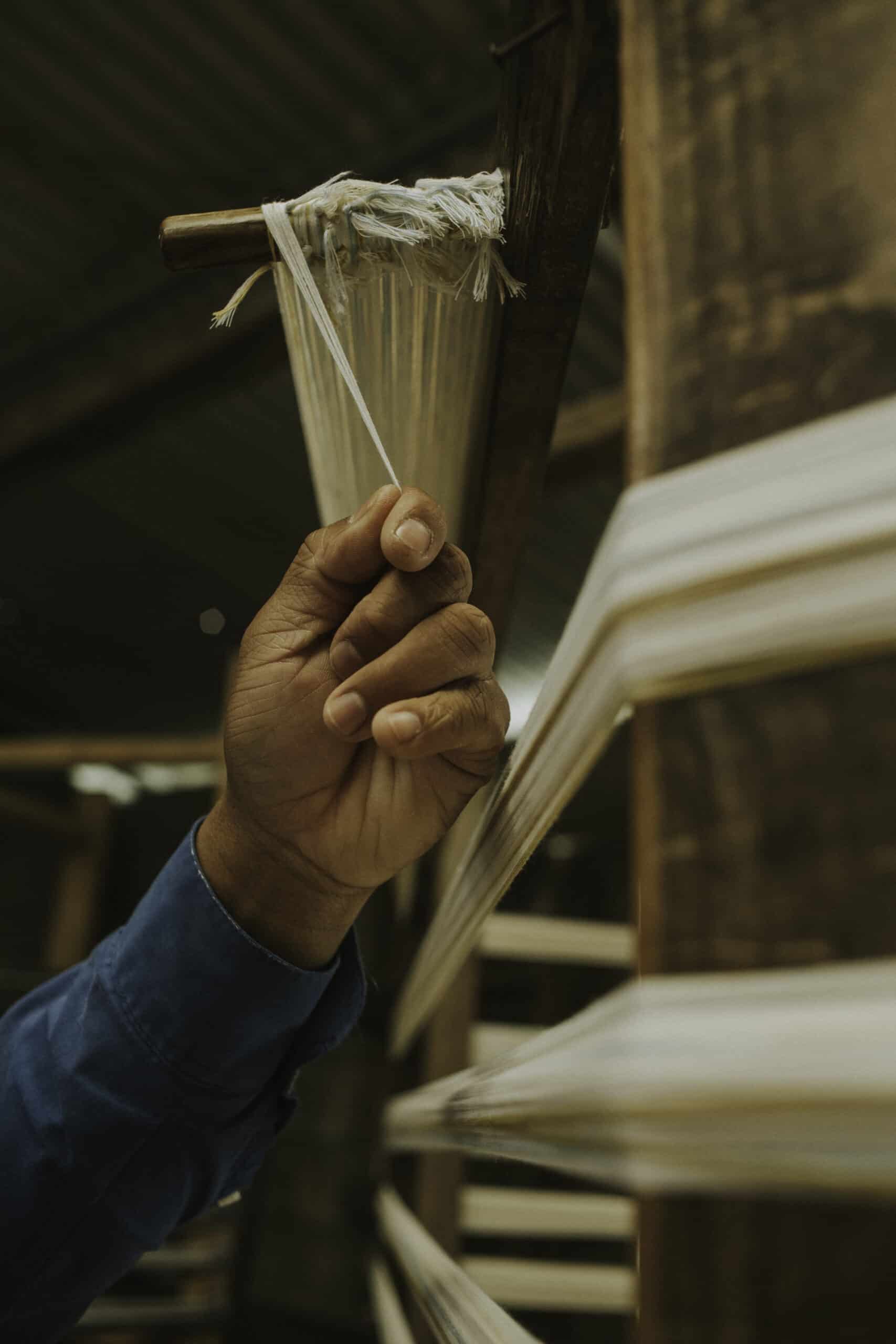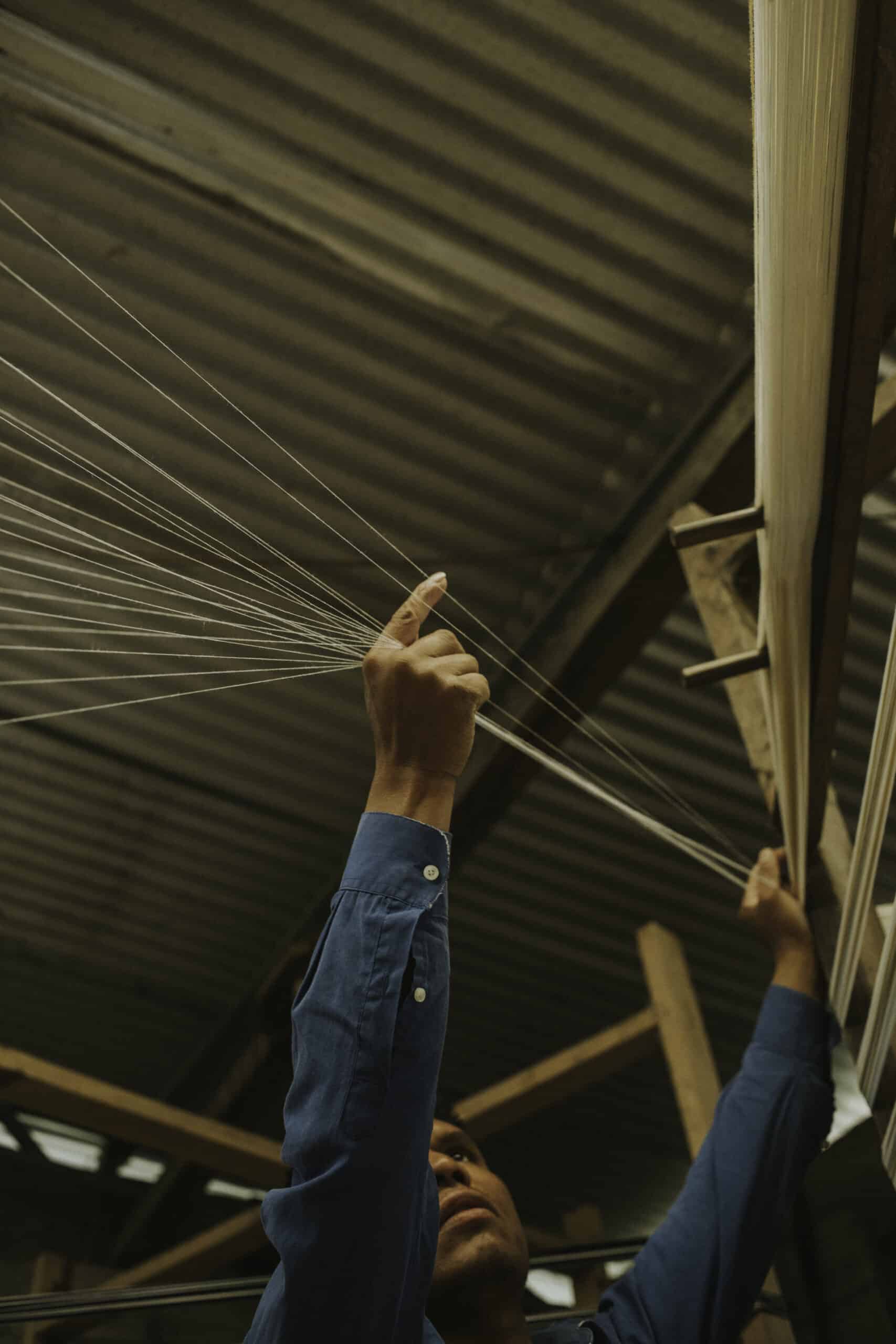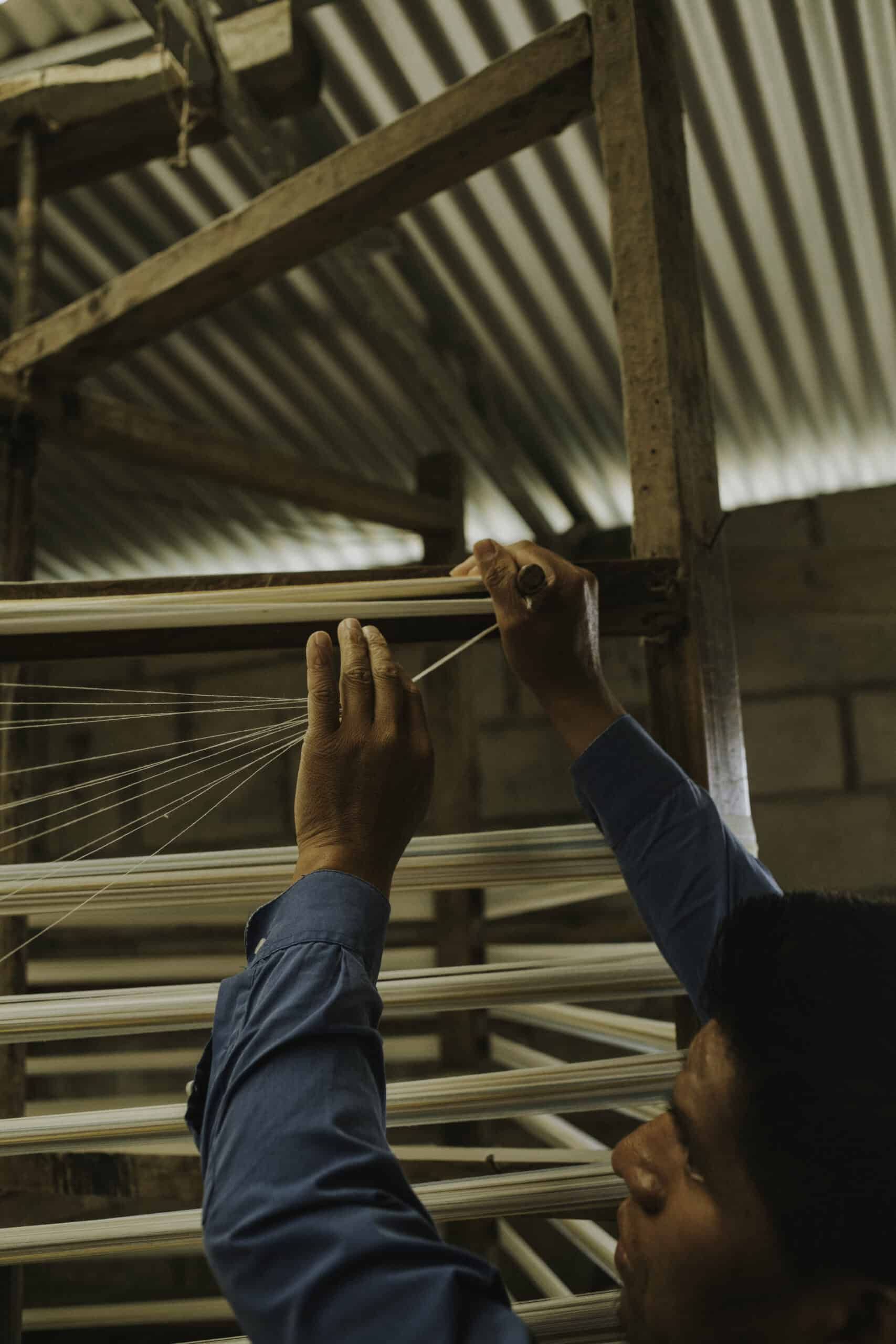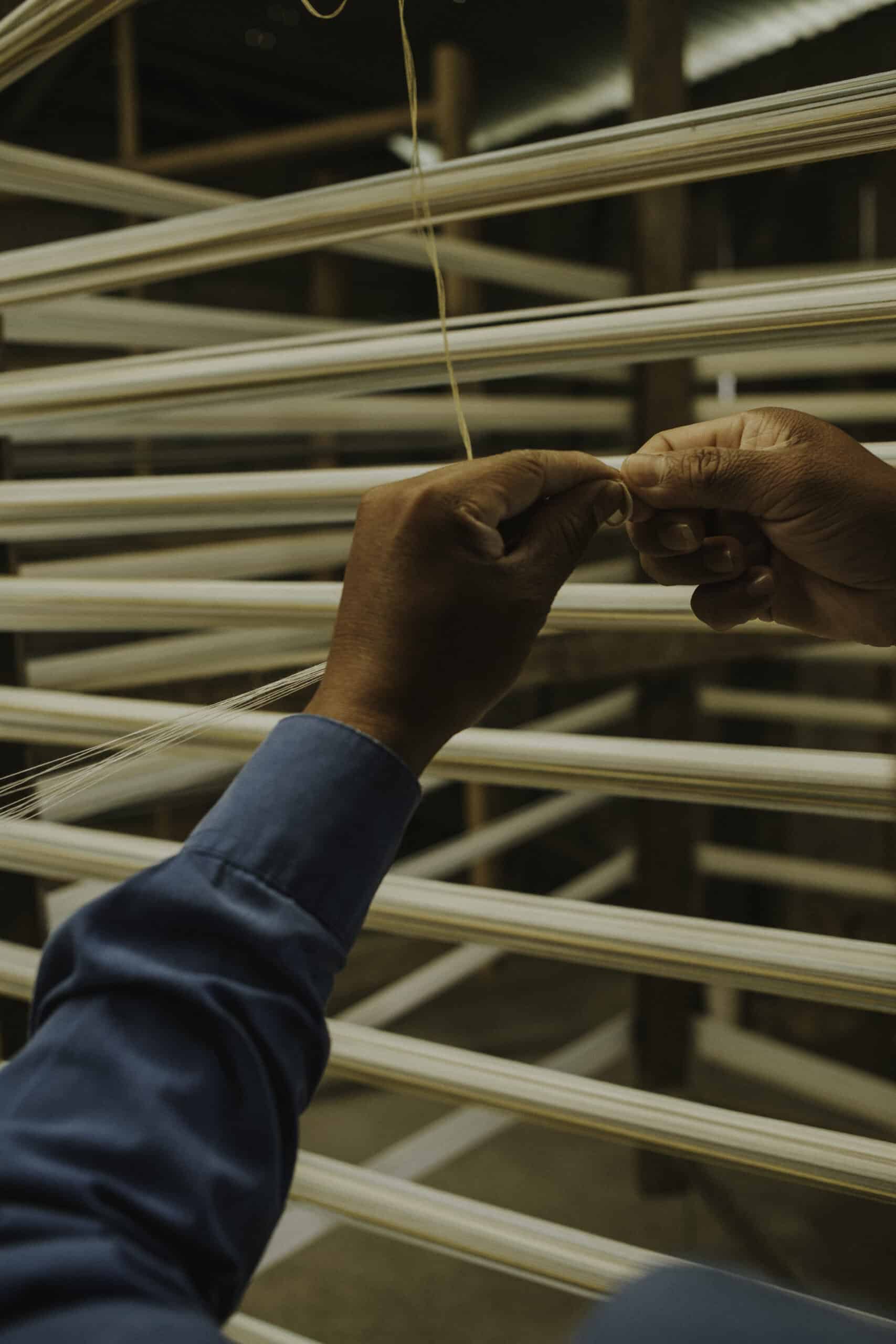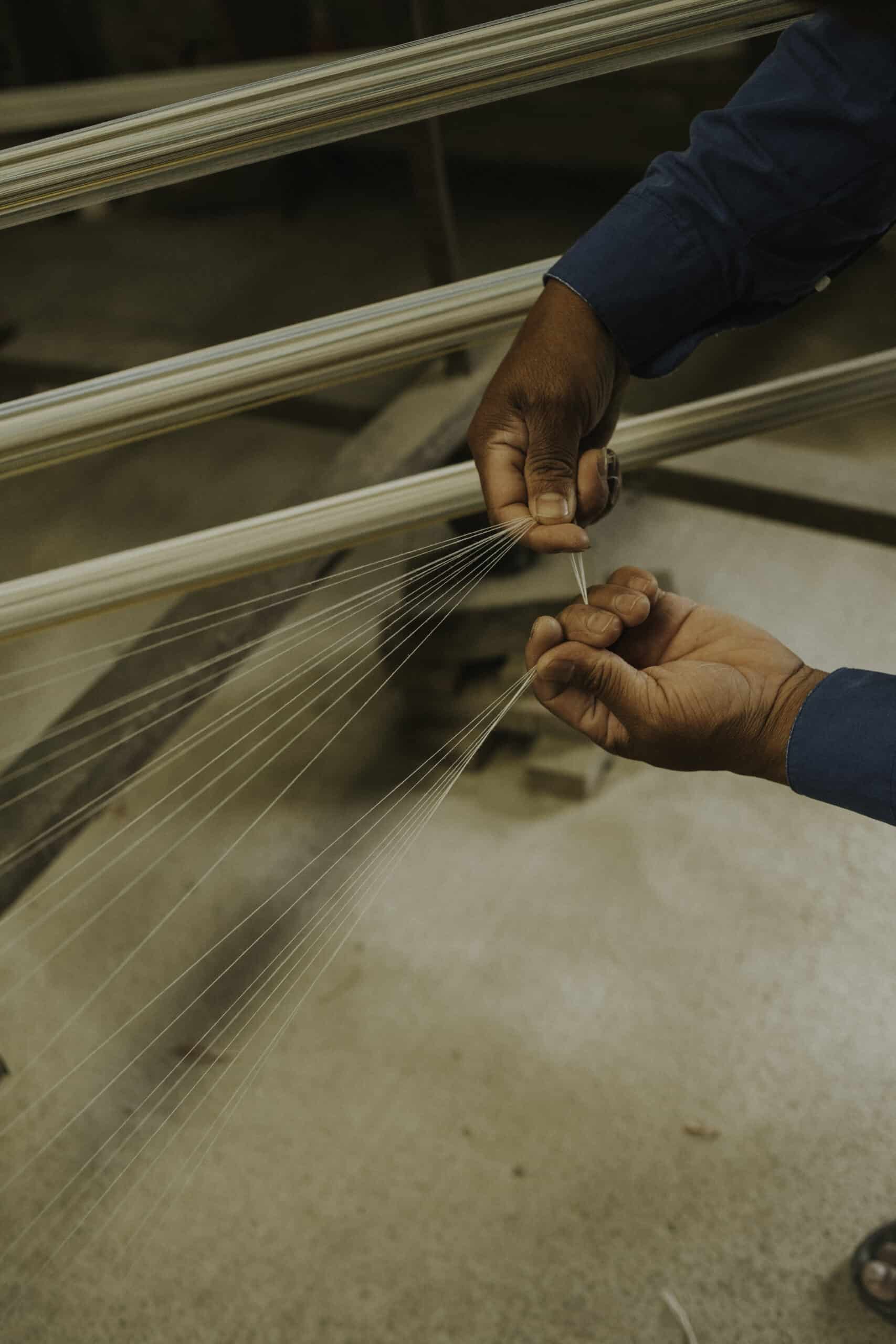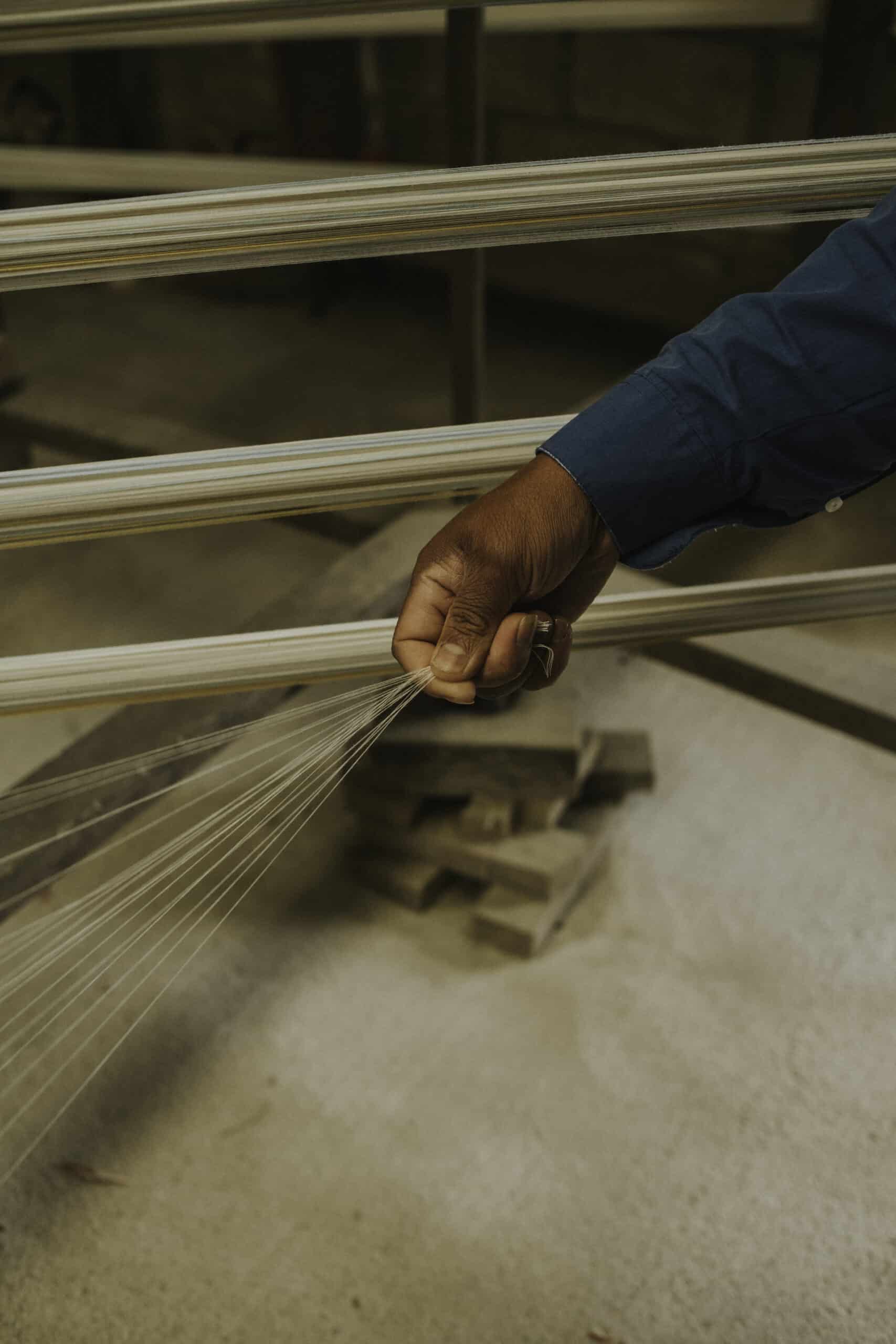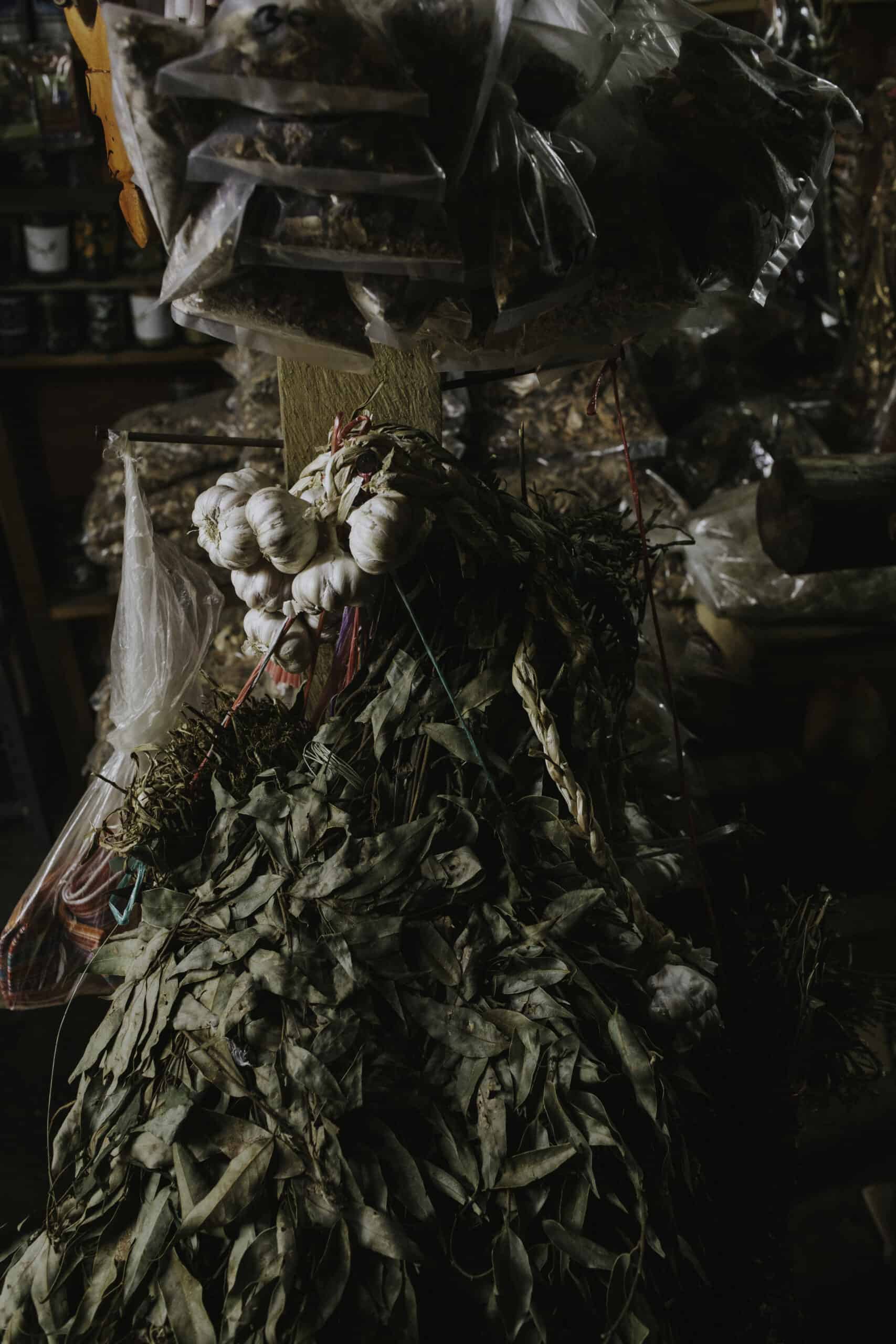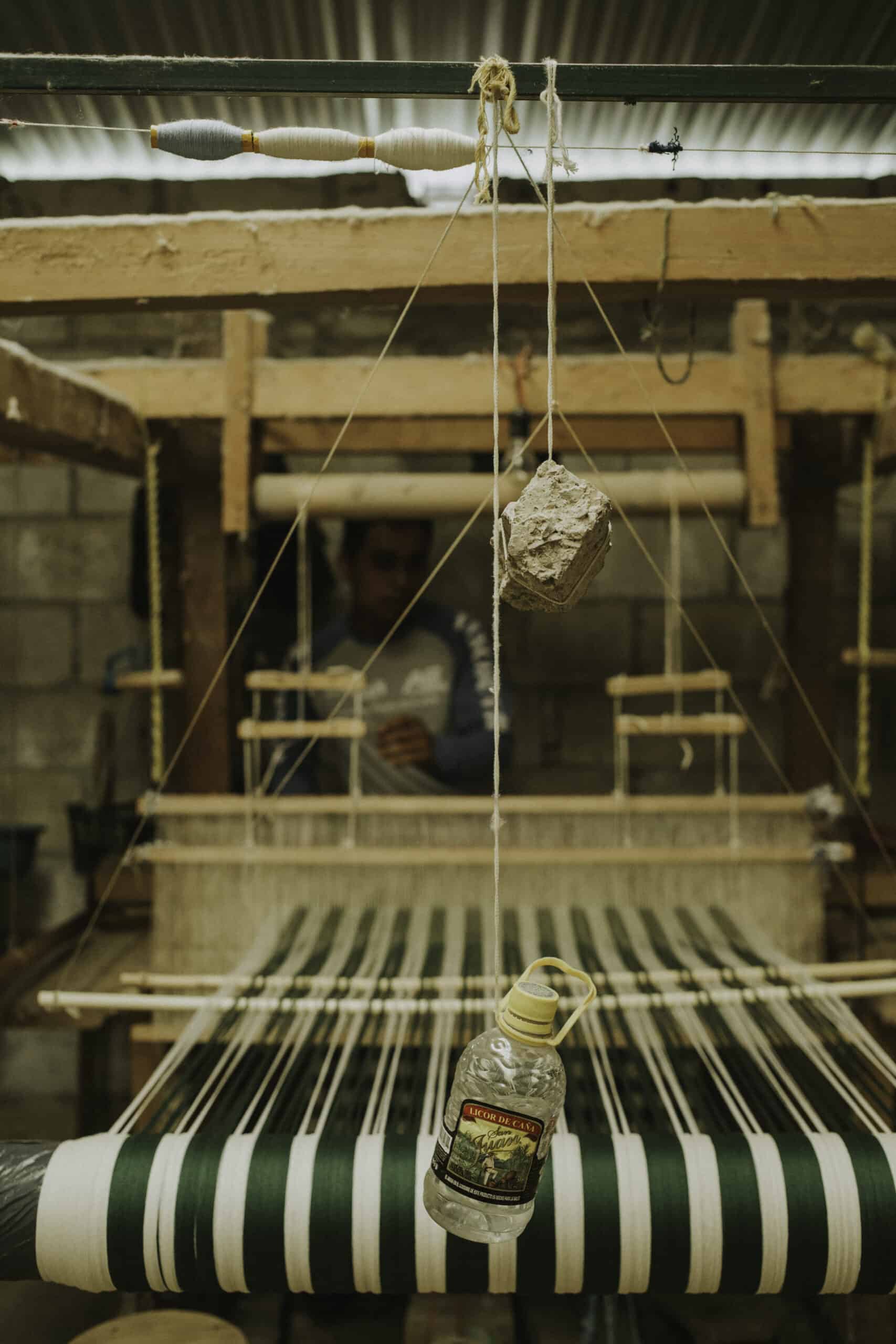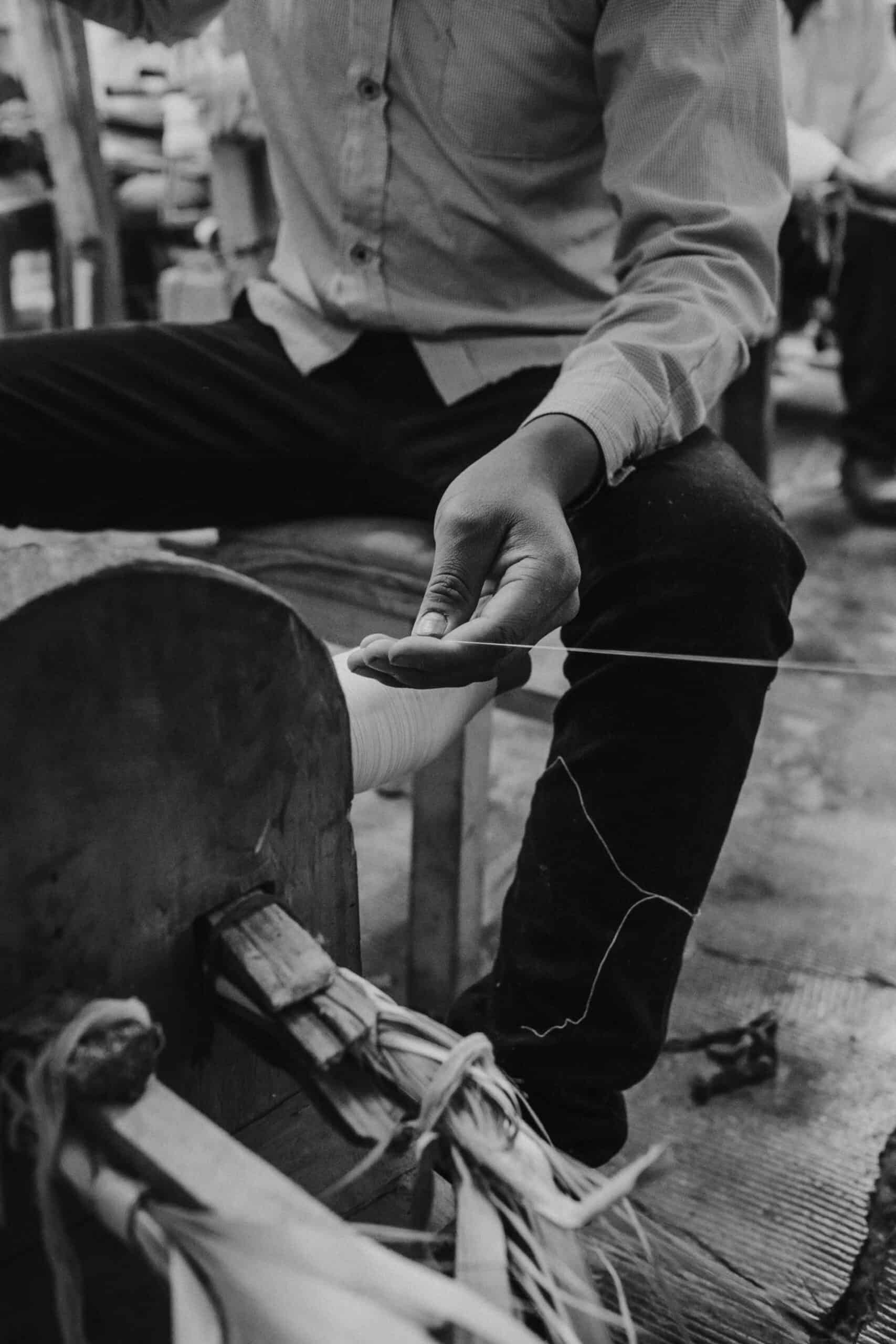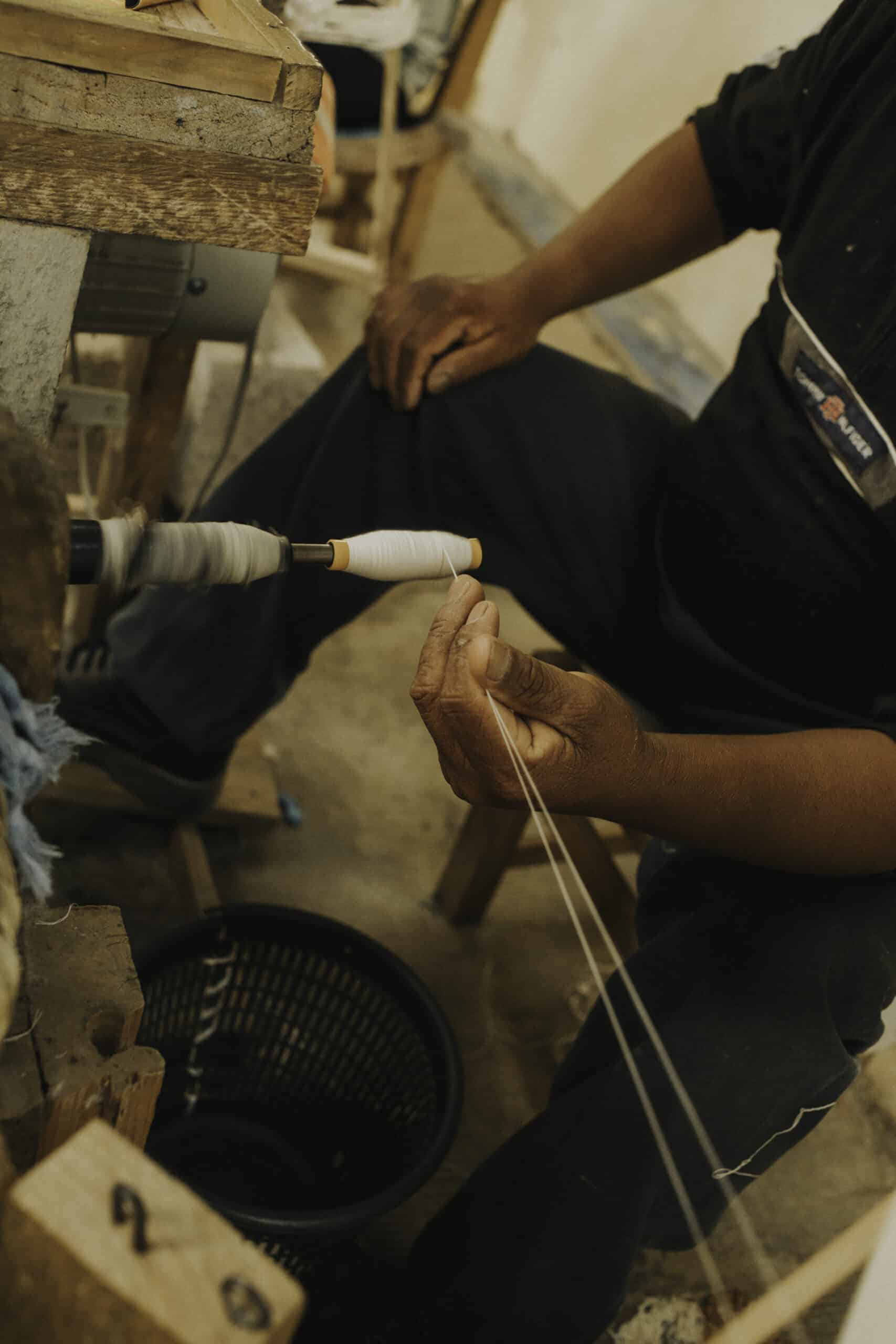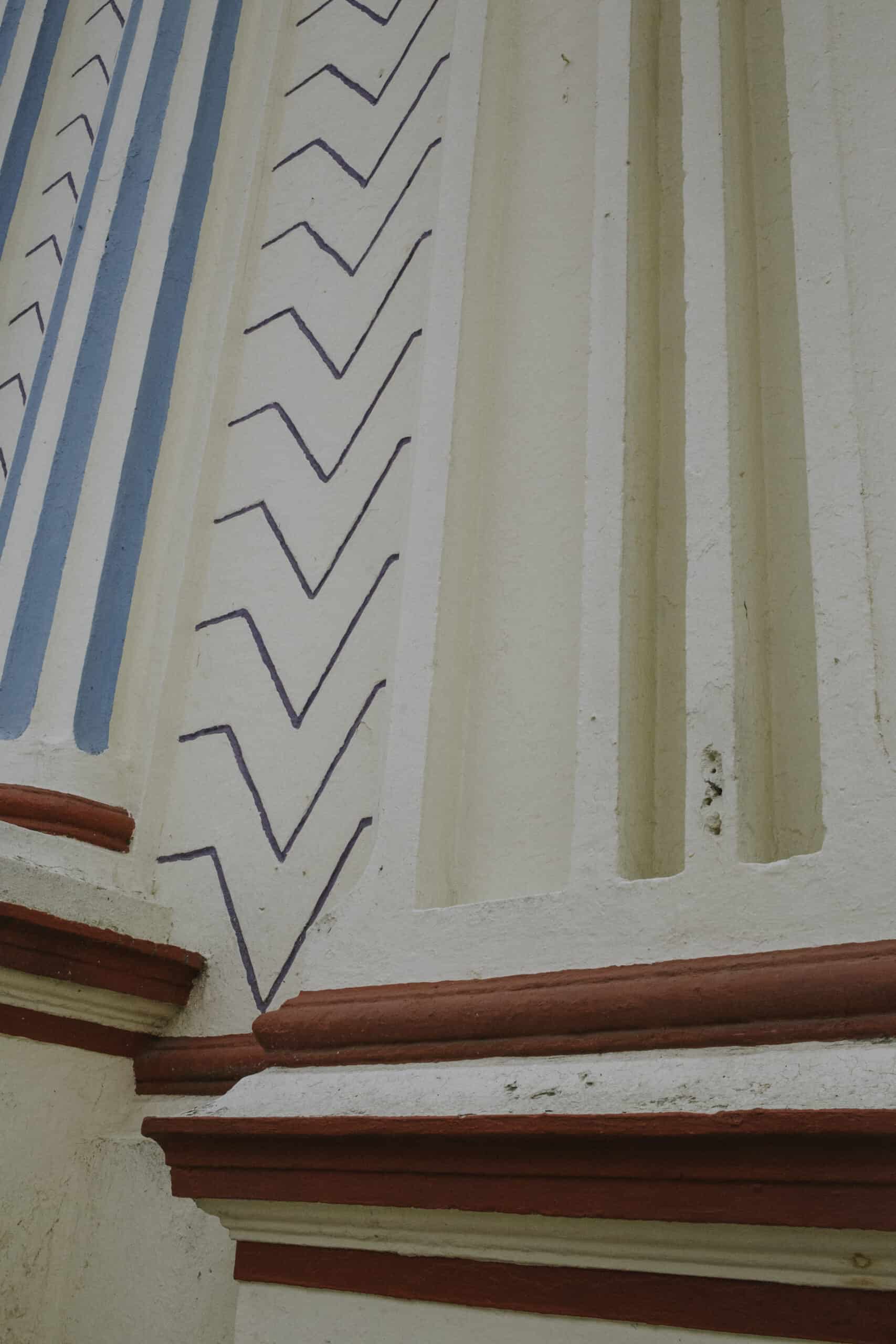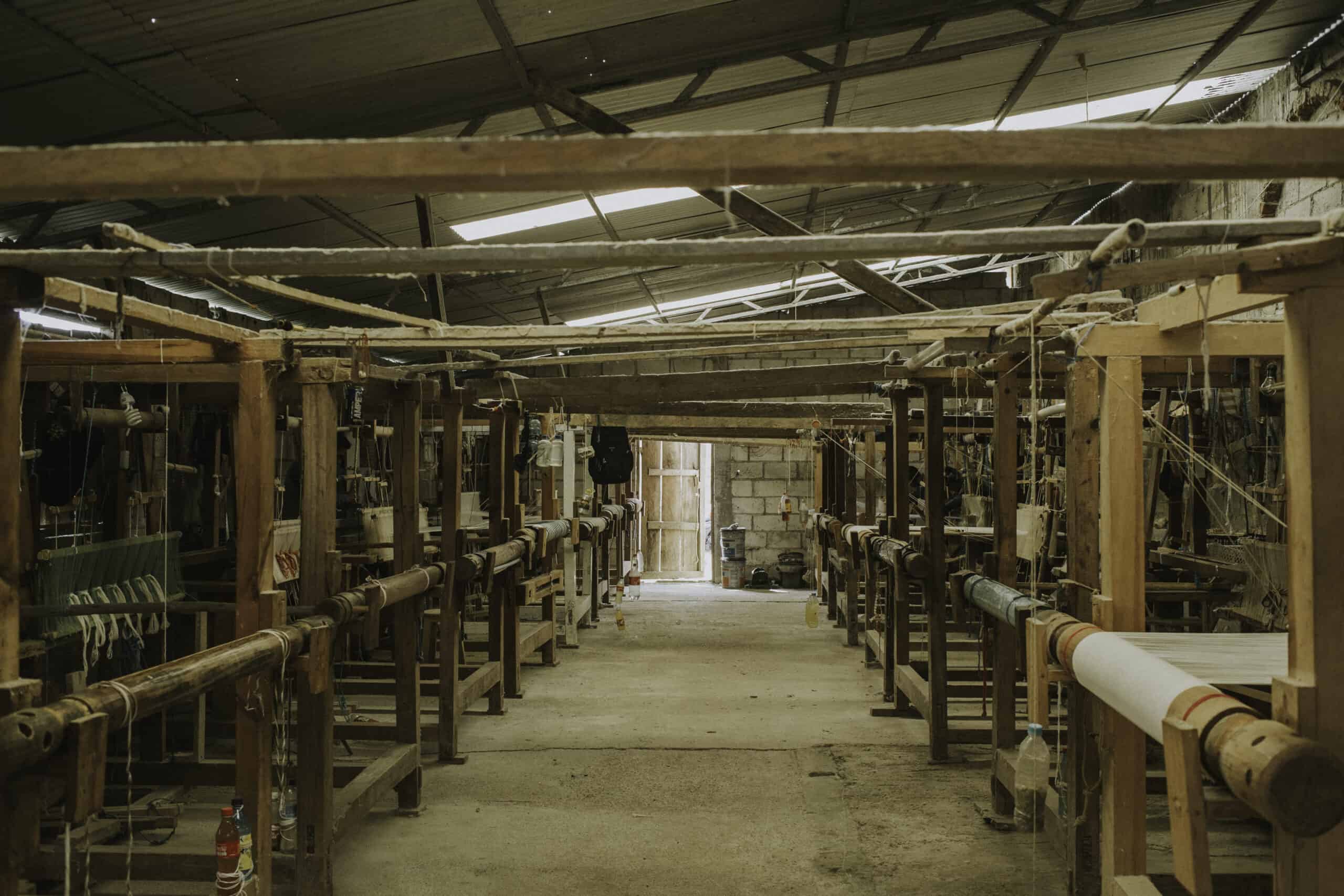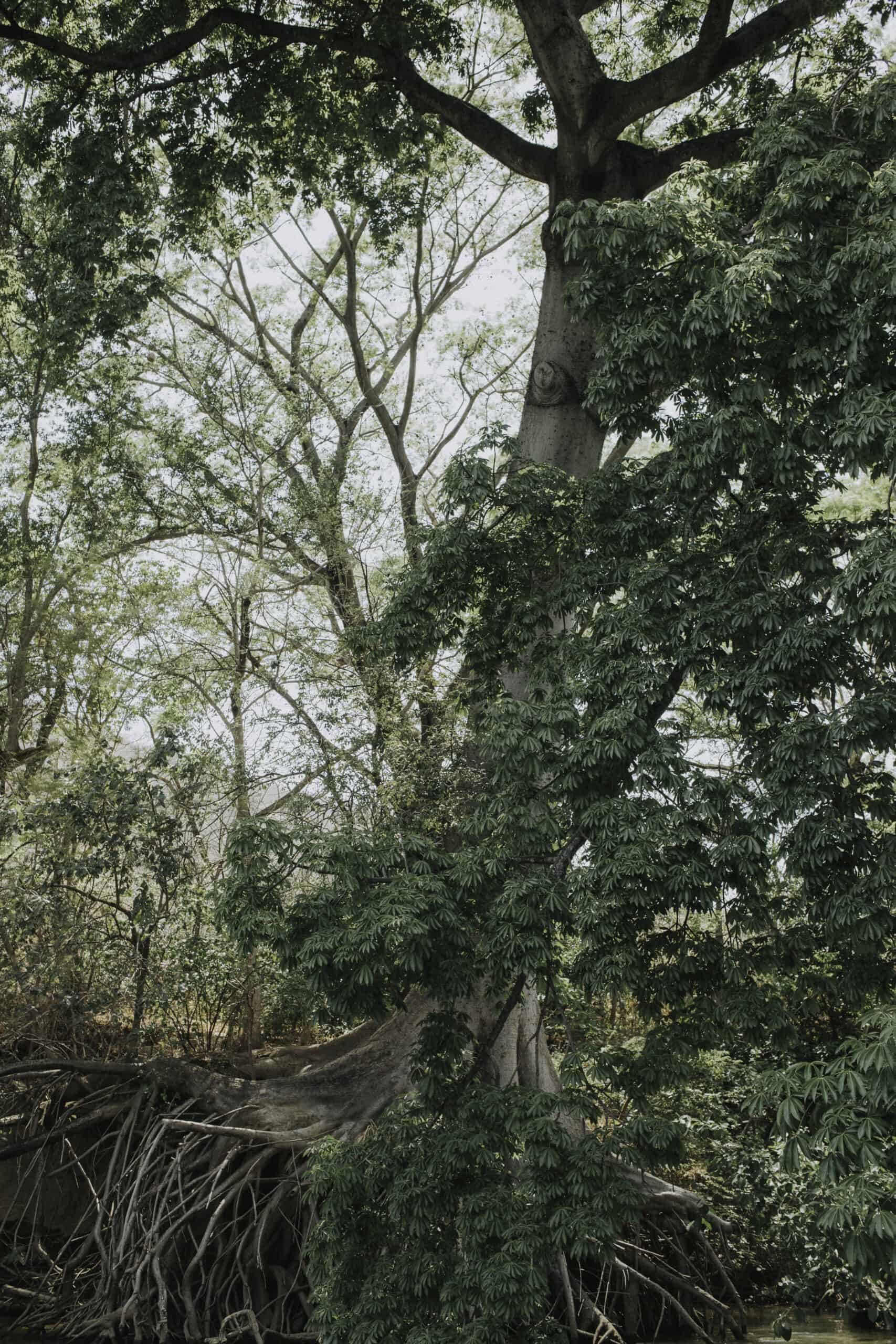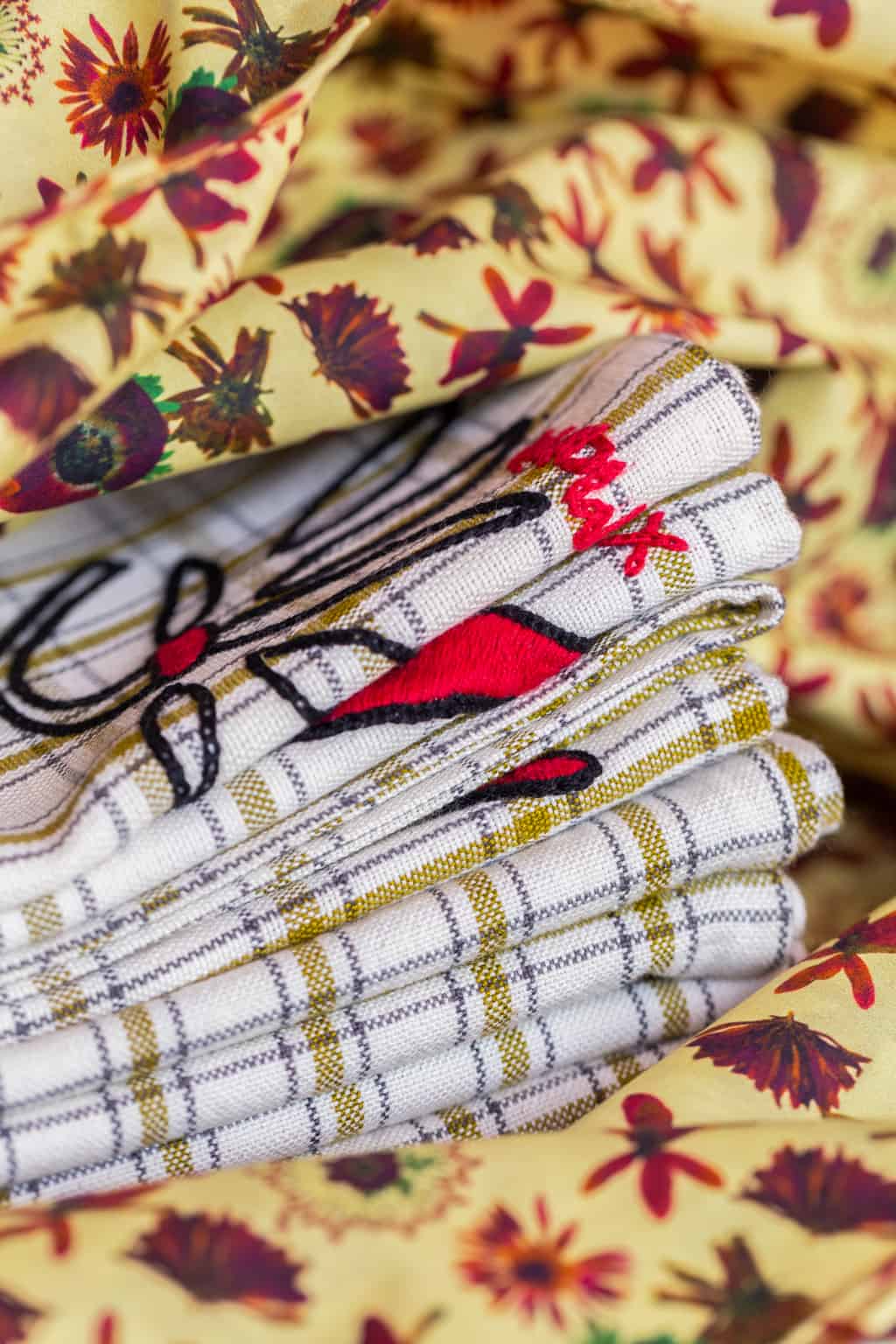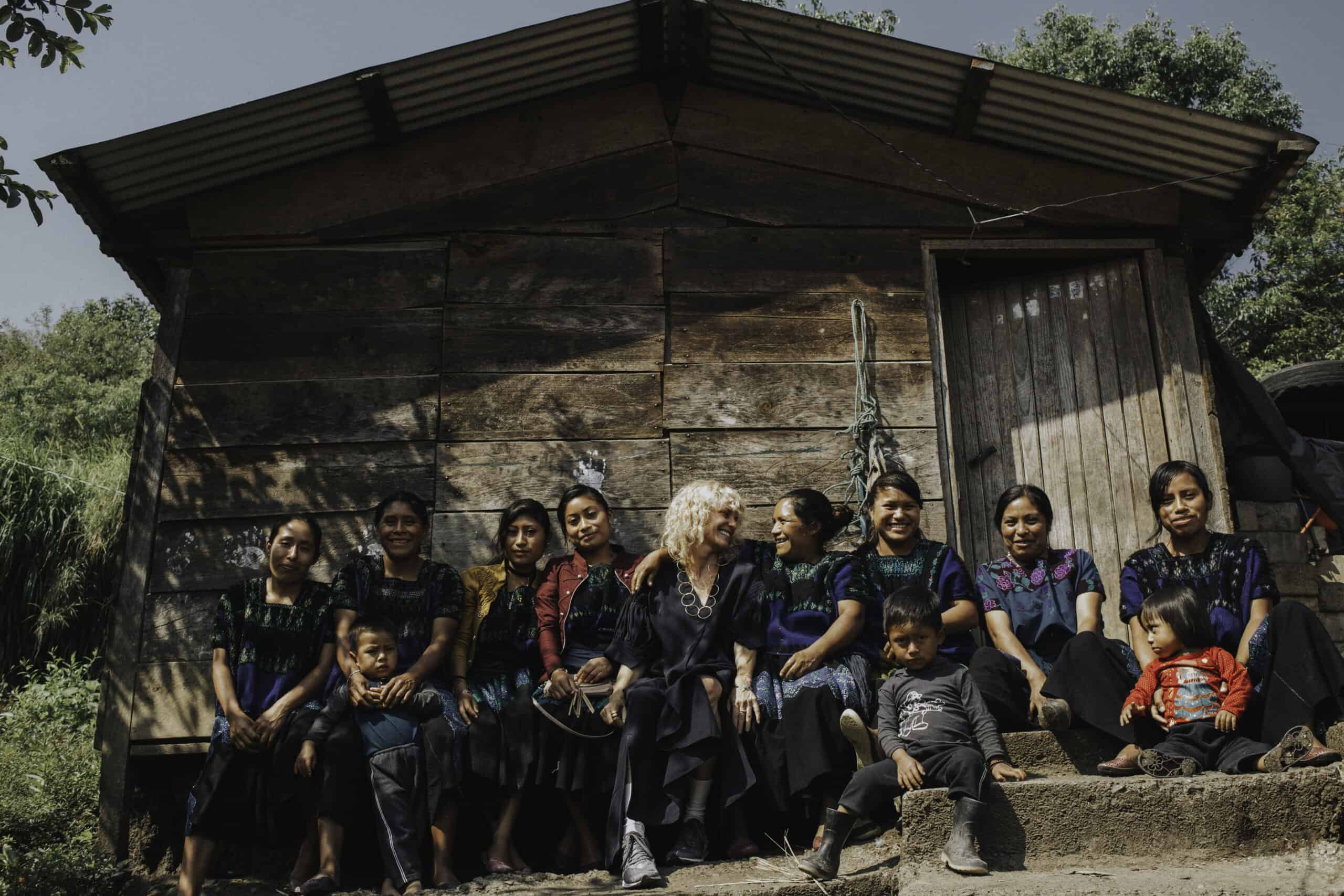
The Moon and the Jungle Weavers
I, Moon, want to tell you that I was born a weaver. Little by little, my words continue to form threads, and it is my wish that we keep working to develop a web of hope that helps us build a better place to live.
I am Moon, and the road that I’ve traveled has helped me to weave new paths along with you. Soon, those roads will have flowers and new stories. They will travel to your dinner table and it is there that you shall find new worlds.
I want to tell you that on my last journey I sat by the stove, and when I looked at the sky, I saw the warmth of the stars. I, Moon, went knitting with the women from Chiapas. I also visited places where the myth of my origin as a weaver is still remembered and transmitted as a fundamental part of life. In those mountains I encountered a black hue, so deep that it filled every soul with light and tranquility. In those jungles I listened and learned the way in which women, on pedal looms, create shapes that are as infinite as the colors of our planet.
On my journey, the weavers from San Andrés Larrainzar and Chenalhó greeted me with their light souls. Their hands spoke to me in a language I’d never heard before, but they had the brilliant color of a rainbow. Their words were as familiar to me as the flowers and the table where we sat down to eat.
I, Moon, them, Mayans, we know that we must weave beyond our homes. In our quest to find other dreamers, we discovered Jonathan Cohen, a flower lover. Another weaver of stories and adventures who found in the cotton, used by the women of the jungle, languages that had never been heard: ways to weave new paths.
Process
Nuestras flores
Sometimes a story has the most unexpected beginning. In the case of “Our Flowers”, Loona’s Collaboration Four, the story begins in San Diego, California, in 2020, during the months when we thought in our homes as a refuge from the pandemic.
It was on one of those days when the mother of American designer Jonathan Cohen received a flower arrangement on her doorstep that her family immediately sprayed with disinfectant. “It was ruined,” recalls the designer, in an interview from New York. “It got me thinking that flowers make people happy, and I started to draw flower arrangements for my friends. I noticed that they made a difference in their day. “
To many, his strokes would generate the same feeling. In fashion, Cohen is a designer that has generated a lot of enthusiasm in recent years. A few months ago the media focused on him, when Jill Biden, First Lady of the United States, wore one of his designs during the day before her husband’s inauguration.
He’s also a designer who cares about the planet, and his sustainable initiatives, such as using recycled textiles or the leftover fabrics from other seasons, have reached headlines. His efforts also include small but forceful actions, such as the fact that during the last years he has used only digital tools to make his sketches, thus saving thousands of sheets of paper.
The times we are going through have promoted a general reinvention, and Cohen has been no exception. Together with Sarah Leff, his partner in the eponymous fashion brand, he set up all the details that will allow him to open a flower shop.
It wouldn’t be, however, one like the ones we traditionally think of. It would be a virtual space with arrangements drawn by himself, that people could send in a more personal way, as he recalls: “During the pandemic we decided to pause our collections and to focus on this project. On traditional platforms, where you send a virtual detail, you usually get an email sent by the company itself —like a card— which you never open. Here, I write the dedications by hand, and then they are digitized so that each client can personally send them by email, with the flower arrangements, and the card.”
To date, Jonathan Cohen’s virtual flower shop displays more than twenty available designs that convey a message of joy and optimism to those who receive them. “The response has been very positive. During Mother’s Day week, for example, we received around 500 orders per day, so we decided to keep it on our page permanently.” In addition, part of the proceeds from these sales are donated to various foundations, such as the Bowery Mission that works with homeless people in New York.
Sharon Drijanski, Loona’s founder, and Cohen have known each other for a while, thanks to the former’s fashion project, The Feathered, a space in Mexico City where avant-garde fashion was presented until 2020. As expected, it was a showcase in Mexico of the designer’s work. In Loona, Sharon didn’t hesitate to invite him again to create a joint project.
“We thought it would be a good idea to use the designs we had in our virtual flower shop,” says Cohen of Collaboration Four. “We’re spending more time outdoors, so we decided that we wanted versatile pieces. We made some napkins, which can even work for a picnic.”
A collaboration is made up of several elements. And, for this project, Sharon thought that the ideal half would have to come from Chiapas, specifically from its textile artisans.
In 2020, Sharon visited this Mexican state. The trip changed her completely: she discovered the enthusiasm of women, she saw their textile techniques and the unique work they did in some communities in the region.
In order to seek a fair way of working, she contacted ATA (Aid to Artisans), a non-profit organization that, since 1976, has been working on creating economic opportunities for groups of artisans from different parts of the world. In Mexico, ATA has been present for nine years and collaborates with artisan communities in Mérida and Chiapas.
In an interview, Guillermo Jester, the organization’s Sales and Marketing director, explains the way in which they carry out their work: “We have a comprehensive vision. We include topics ranging from product training that allow artisans to create their own collections (such as experimenting with materials, composing embroidery, or making new designs), to human development, empowerment, and financial inclusion issues..”
For Collaboration Four, ATA invited artisans from two communities in Chiapas: weavers from San Andrés Larrainzar, who created the napkin textiles on pedal loom, and embroiderers from San Pedro Chenalhó, who translated the designs of Cohen’s flower arrangements into the final pieces.
For his virtual flower shop, one of the designer’s main concerns was that each delivery was personalized. In a way, the same happens in Collaboration Four: each piece shows the name of the woman who was the author of the embroidery, a simple detail that makes them even more special and personal.
Cohen describes this Collaboration as a unique one. “There is magic happening when you send a drawing and see how it is interpreted. That is the beauty of collaborating: suddenly you have something new that has never been seen before.”
Such is the magic of “Nuestras flores”.
Collaborators
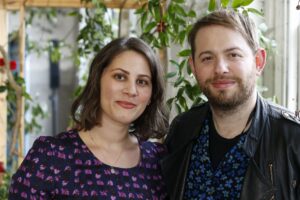
Jonathan Cohen
With parents from Mexico and a San Diego upbringing, Jonathan Cohen was a product of the cultural heritage he was exposed to growing up. He studied in Parsons School of Design, in Manhattan, where he met business partner Sarah Leff. Together, they formally launched Jonathan Cohen in 2011: a women’s ready to wear brand based in New York City where sustainability weaves through all elements of the brand, a Flower Shop and a Studio, a space to present innovative and upcycled products.
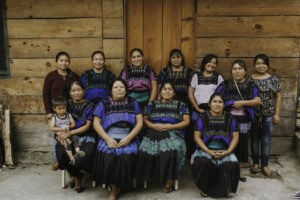
ATA Mexico (Aid to Artisans)
Aid to Artisans is a non-profit organization founded in 1976 with the objective of creating economic opportunities for groups of artisans from different parts of the world. In 2012, they began to work in Mexico. Currently they work with communities in Chiapas and Yucatán. Through a methodology based on ecological practices, empowerment and financial inclusion, they foster the creation of businesses that are profitable for artisans and that promote the value of textile traditions.

Nuria Lagarde
Her photographs are presented as short stories: tales that never tell everything they expose and that always leave elements open to interpretation. She grew up among whales and salt, in Baja California Sur, Mexico and studied Art History at Casa Lamm. Currently she works between Mexico and Paris. In addition to her personal projects, she collaborates for different magazines. In 2020, she captured the images from the book “The Food of Oaxaca”, published by Alfred A. Knopf.
Shop the Collection
Jonathan Cohen + ATA México
Set of 4 placemats and 4 napkins, made on pedal loom by the Jolob community in Bayalemho in San Andrés Larrainzar, Chiapas.
Embroidered with flower motifs, designed by Jonathan Cohen by the “Tepeyac” communities in Tepeyac, Chenalhó, “Arcoíris“ and “Flor de Margarita” in Chenalhó, Chenalhó, Chiapas.
The packaging is a bag made from scraps of fabric from a previous collection with flower motifs designed by Jonathan Cohen.
Measures:
Placemats 19.8” inches x 17.5” inches.
Napkins 17.8” inches x 17.8” inches.
AboutShopCurrent collaborationTerms and conditions
© Loona 2021 | All rights reserved | [email protected]


